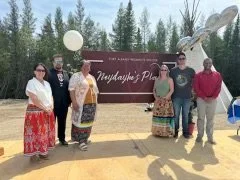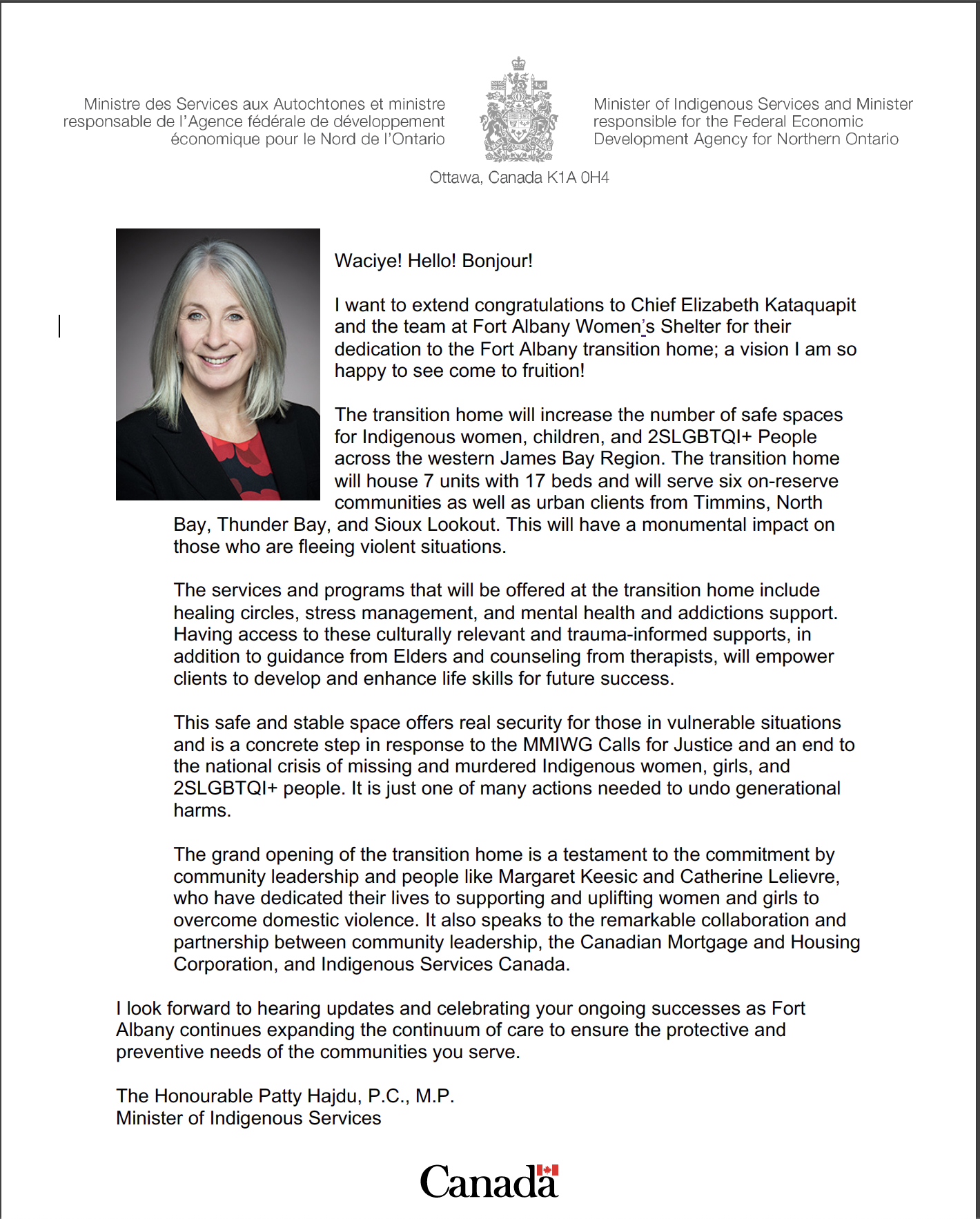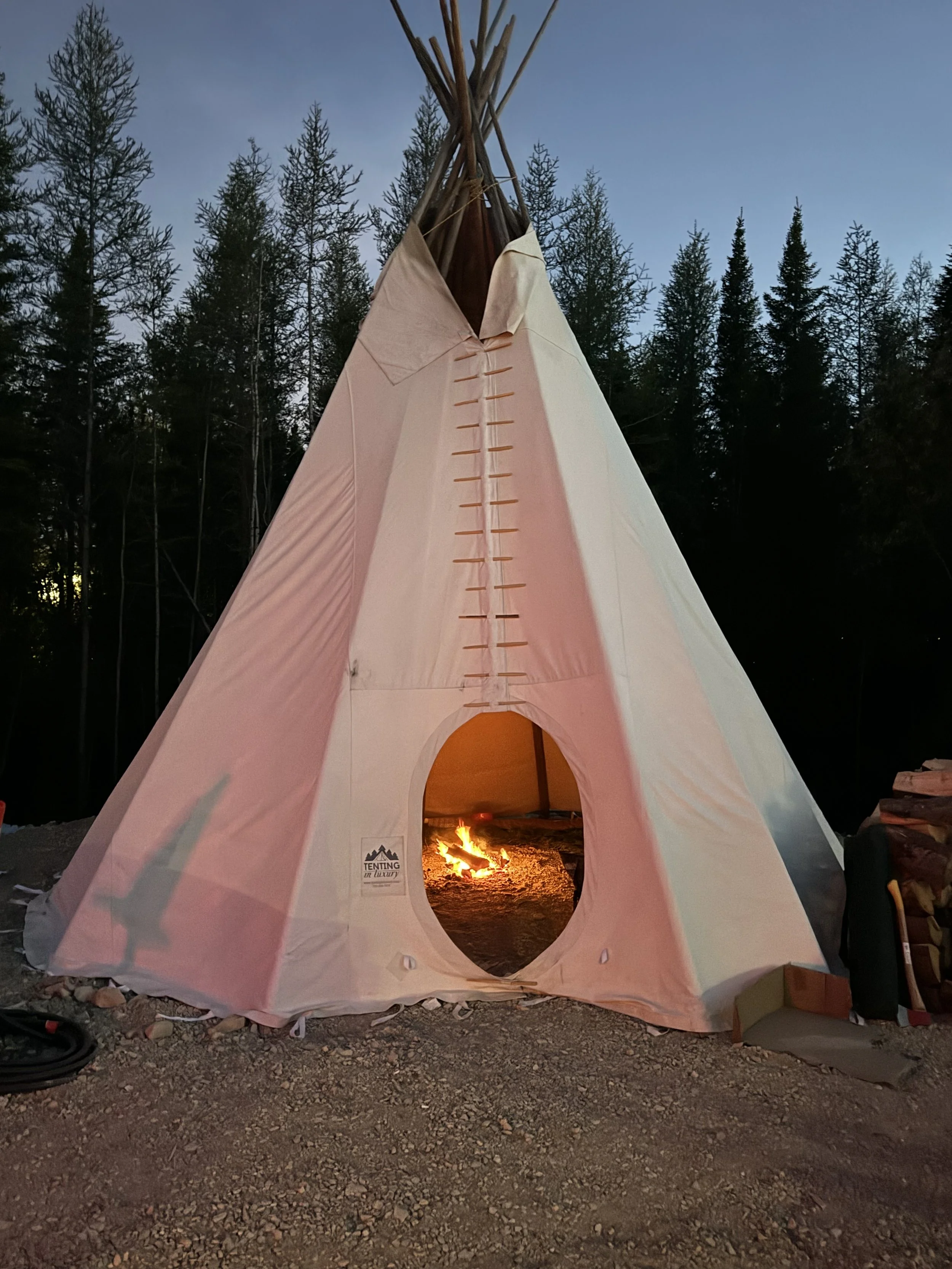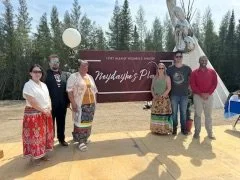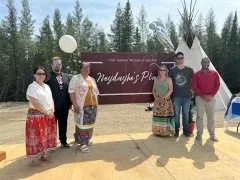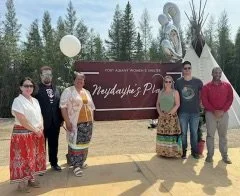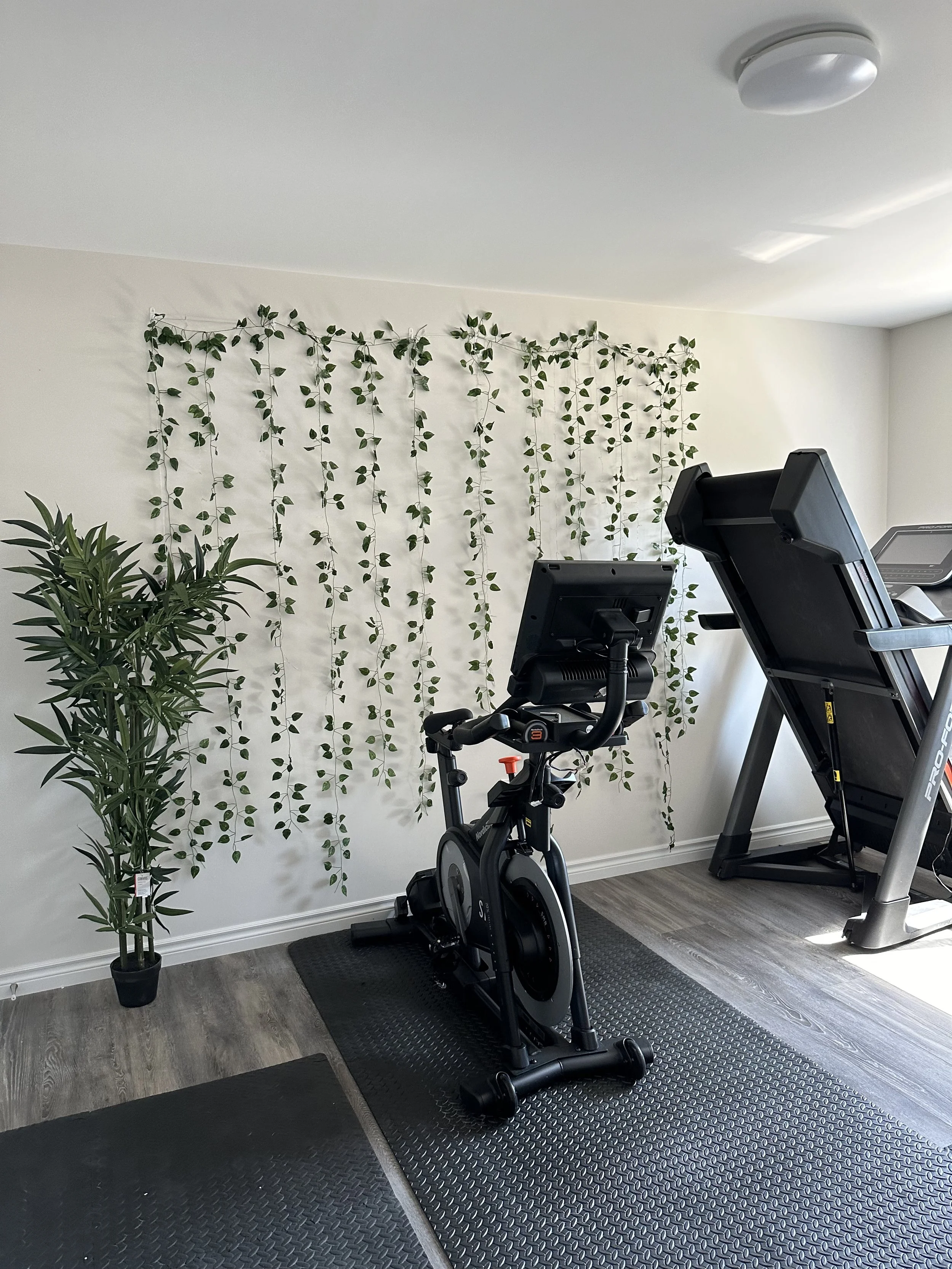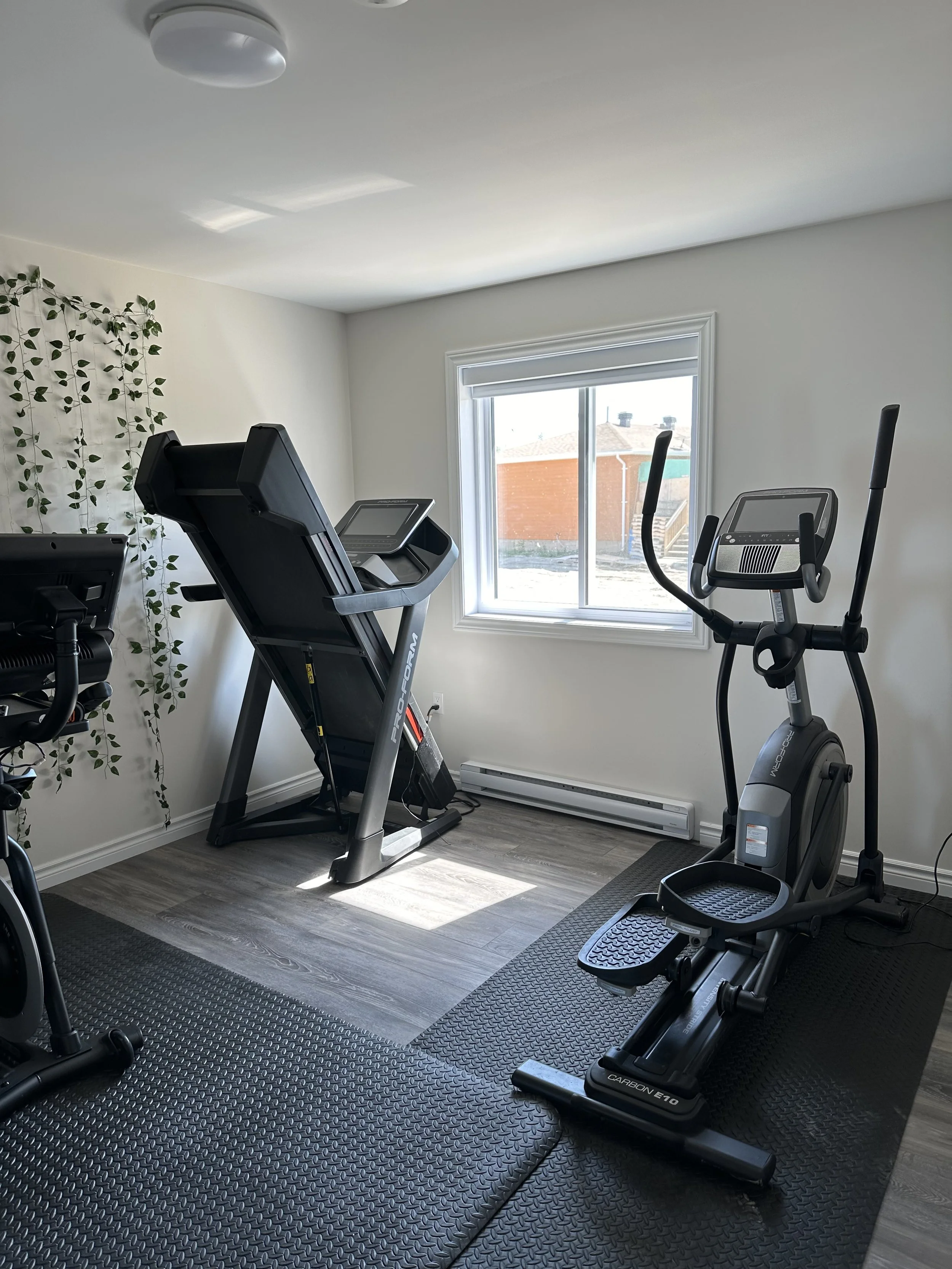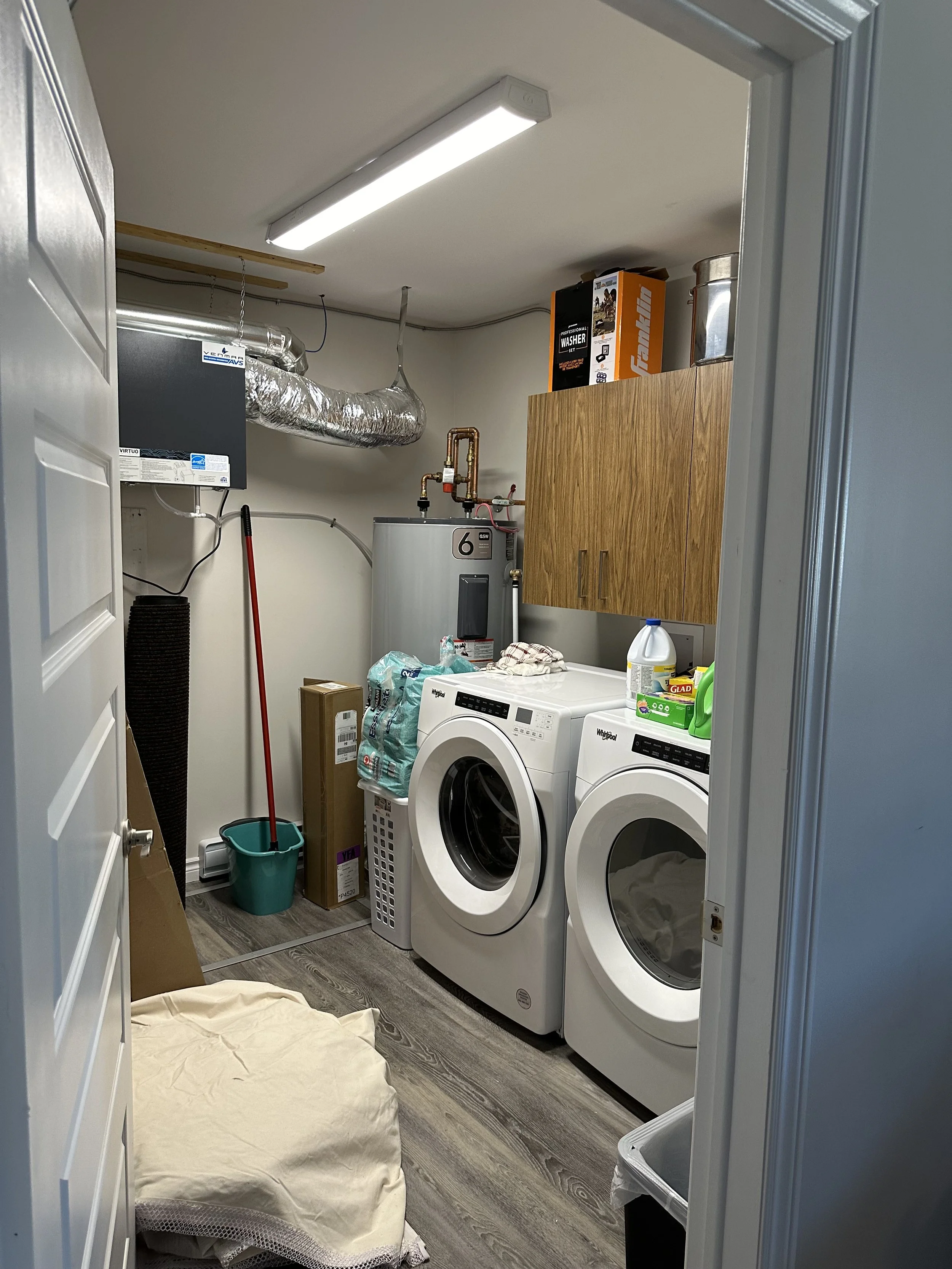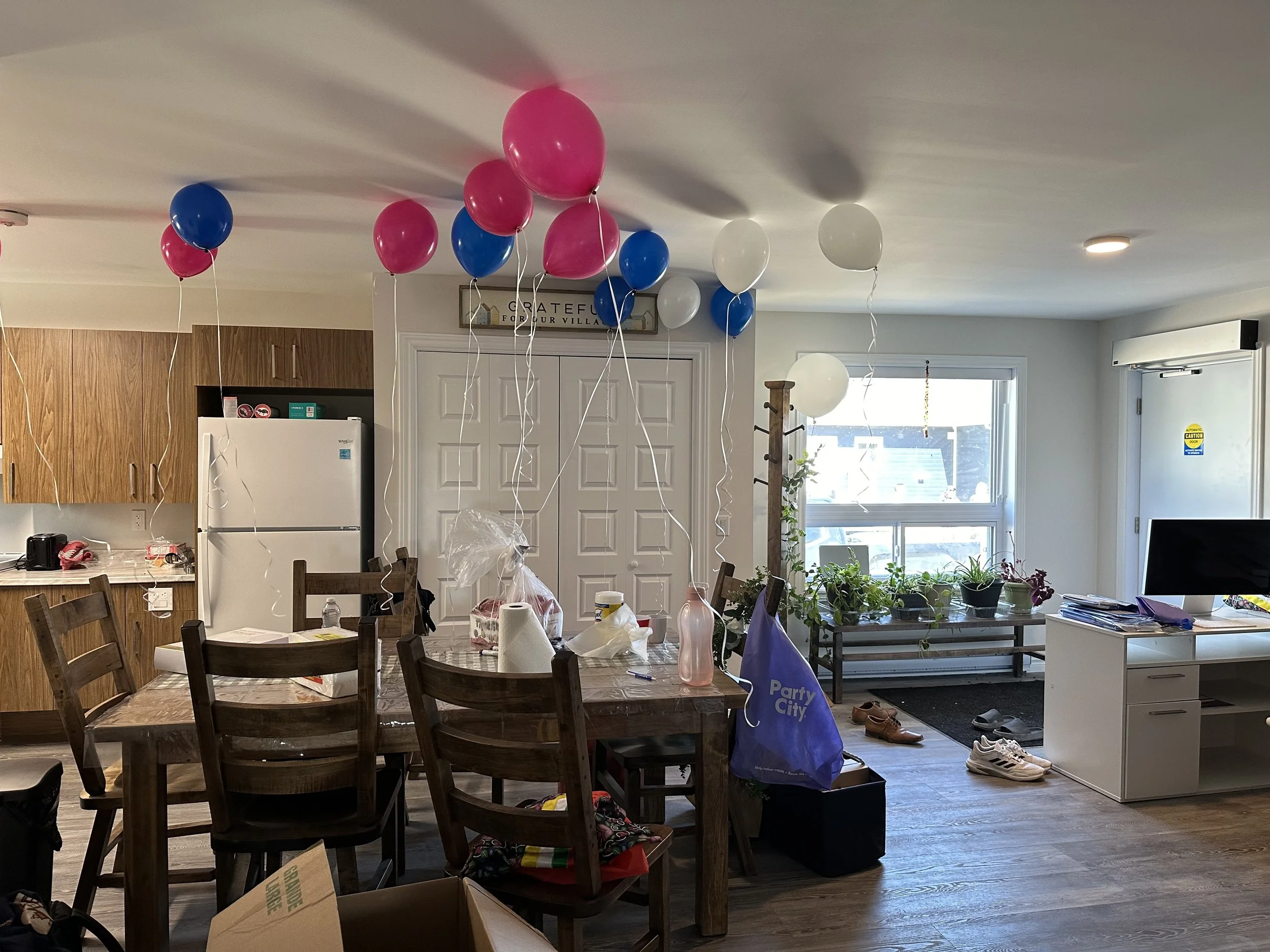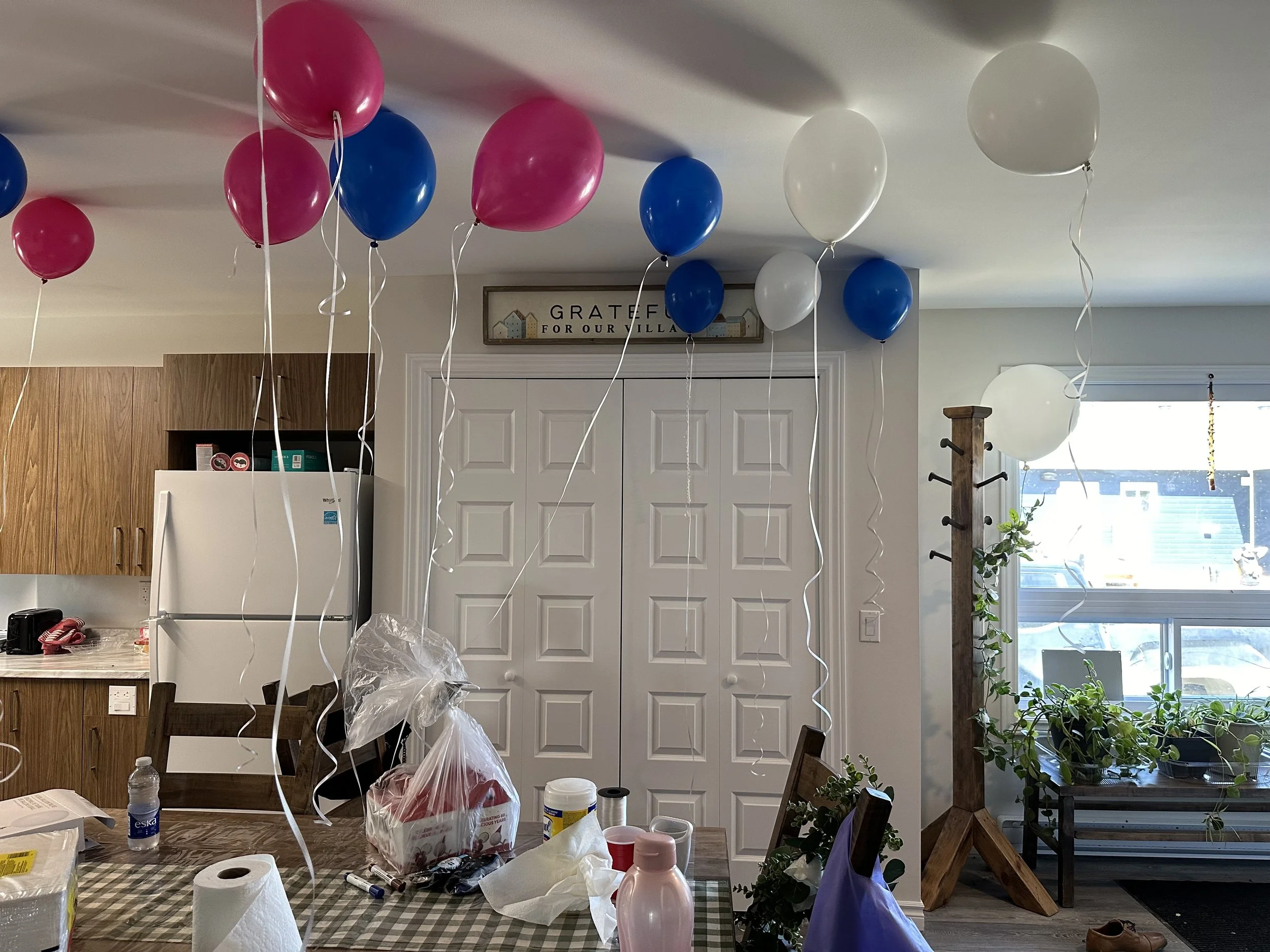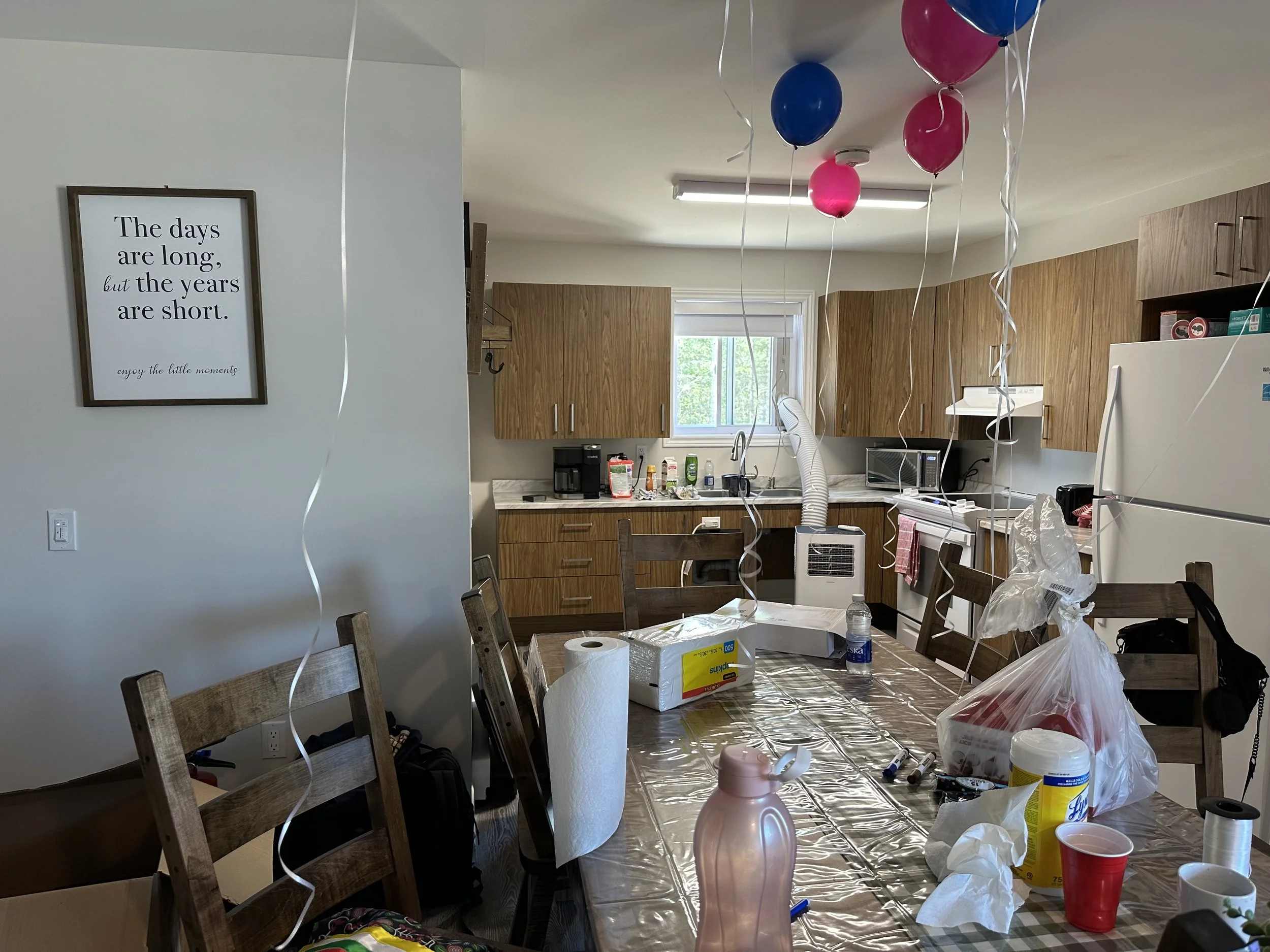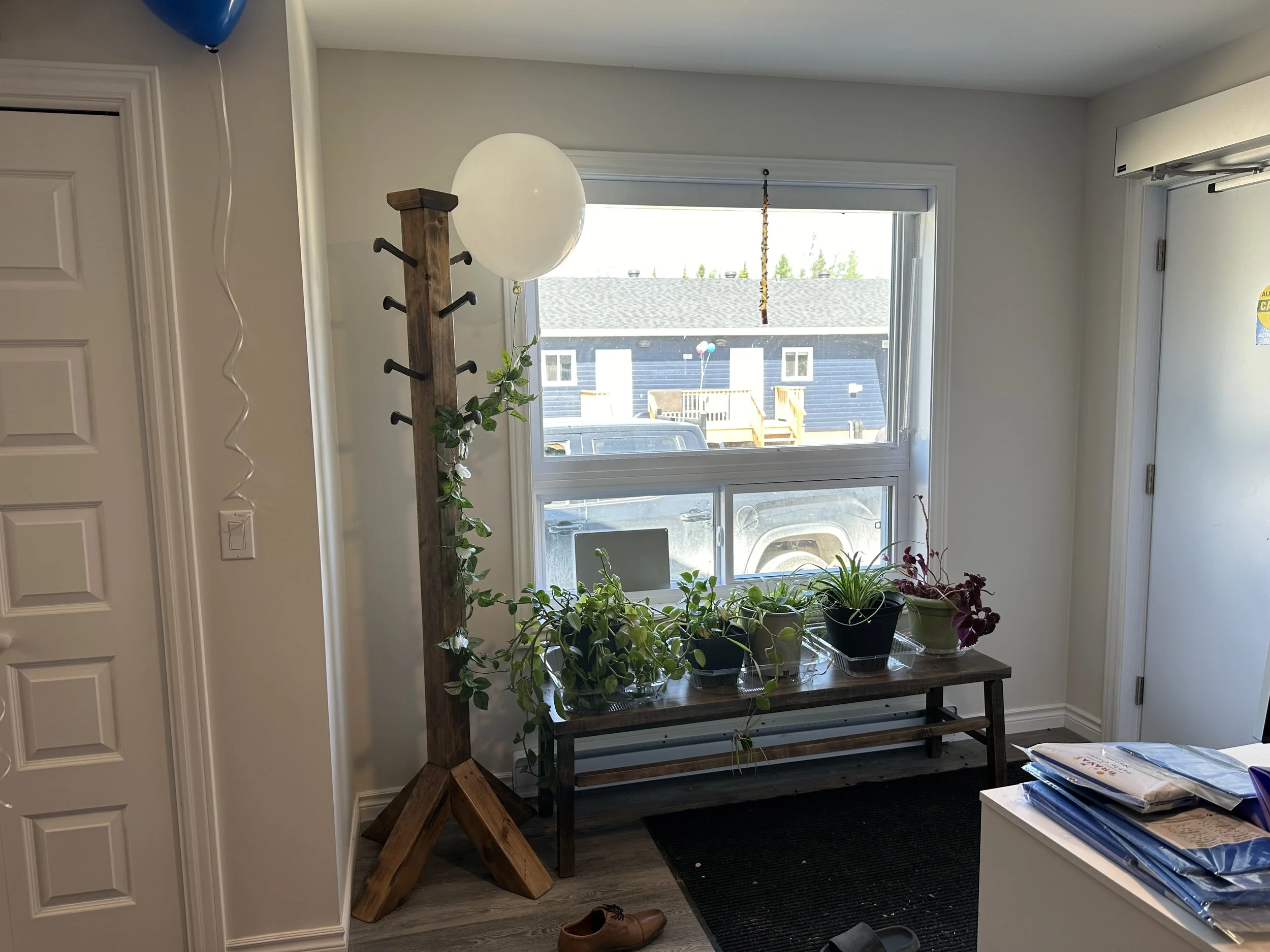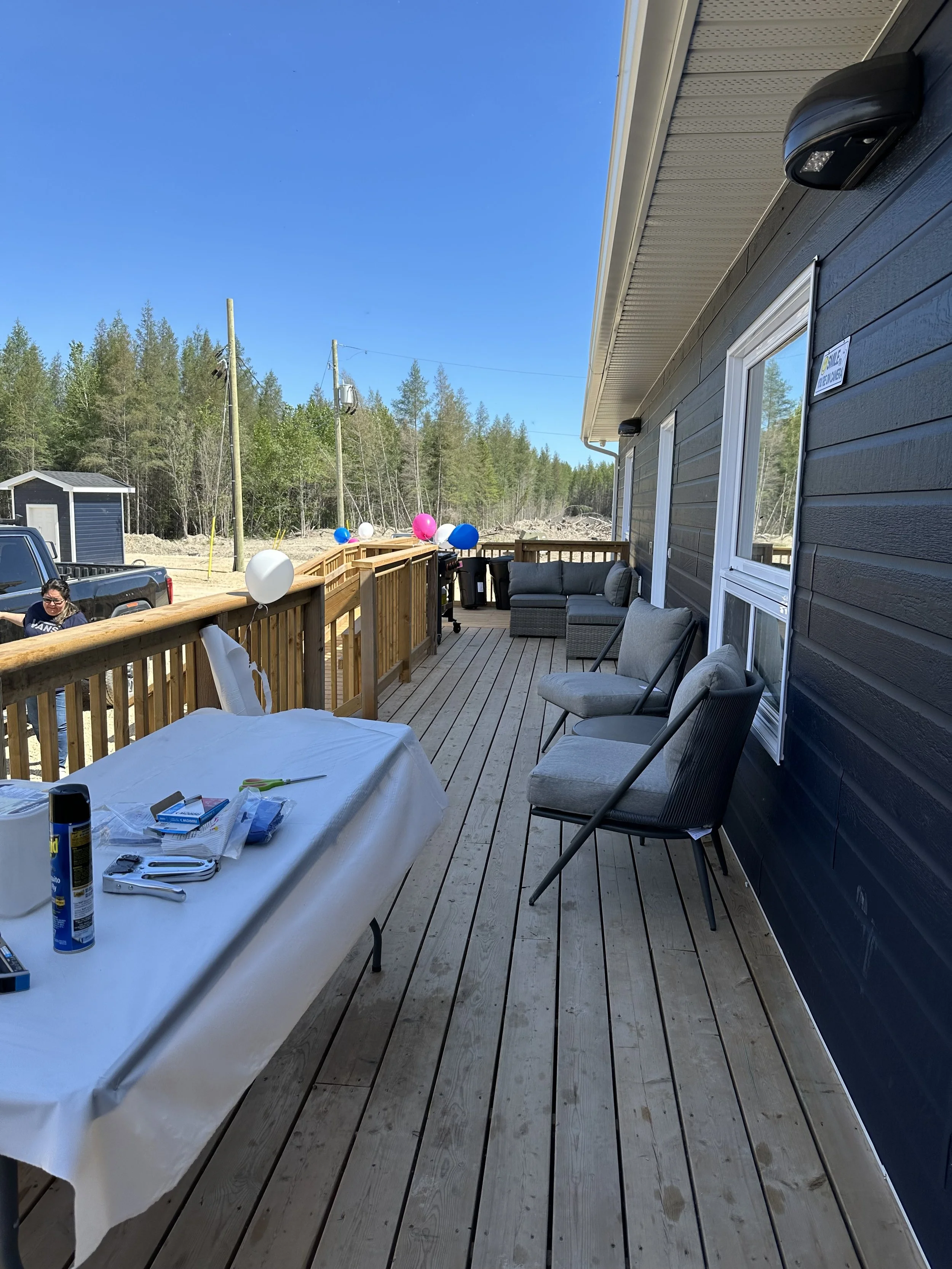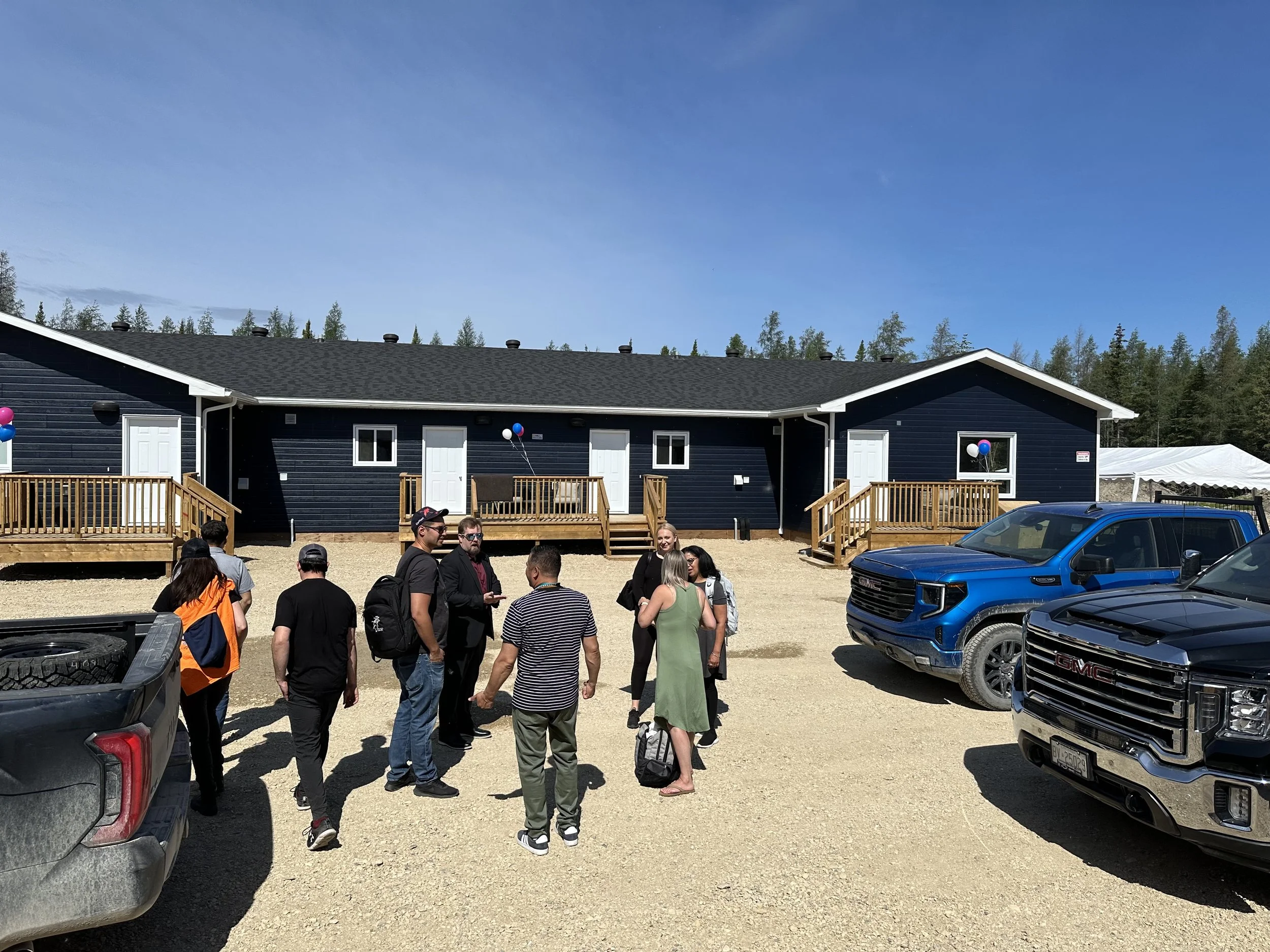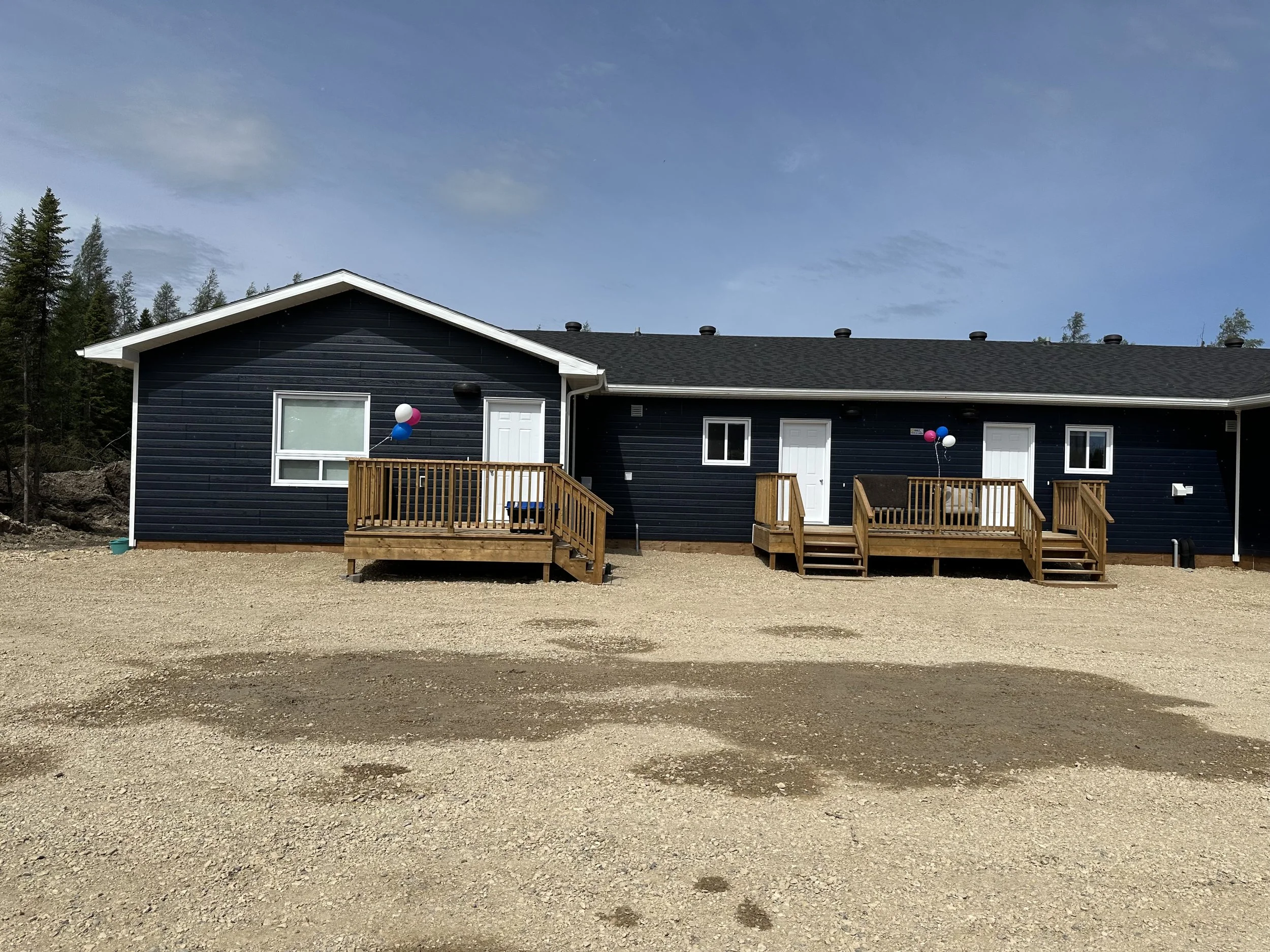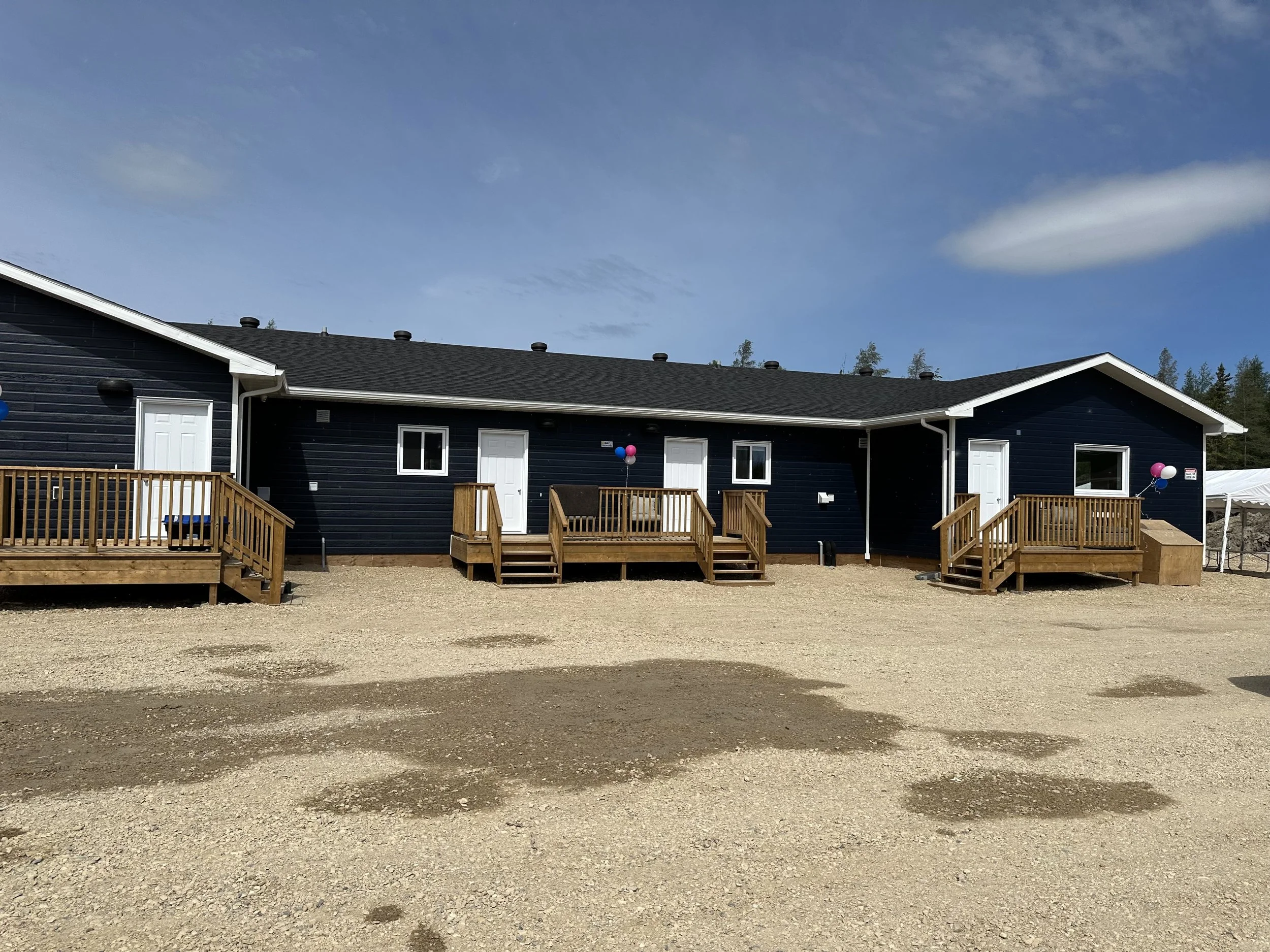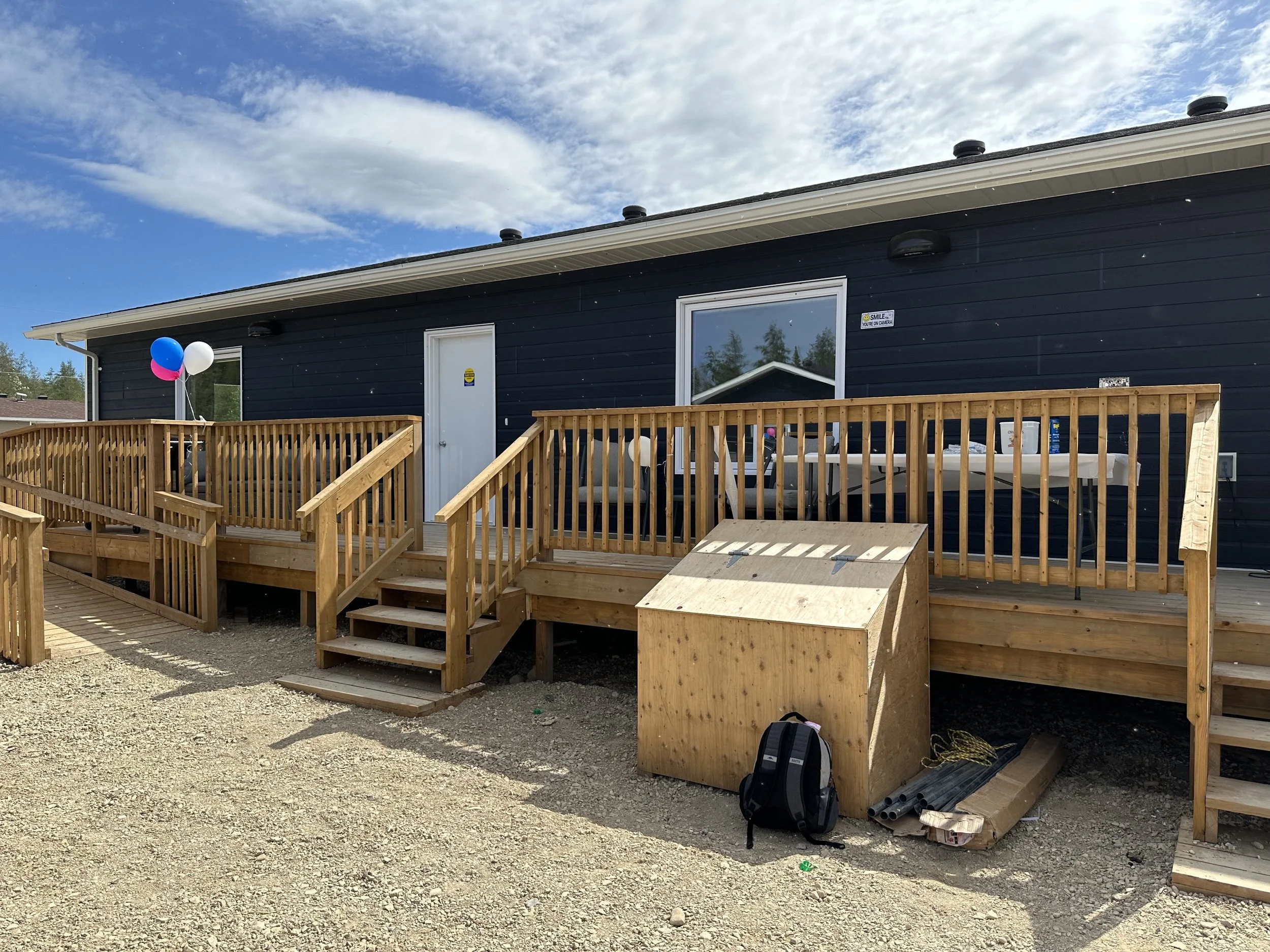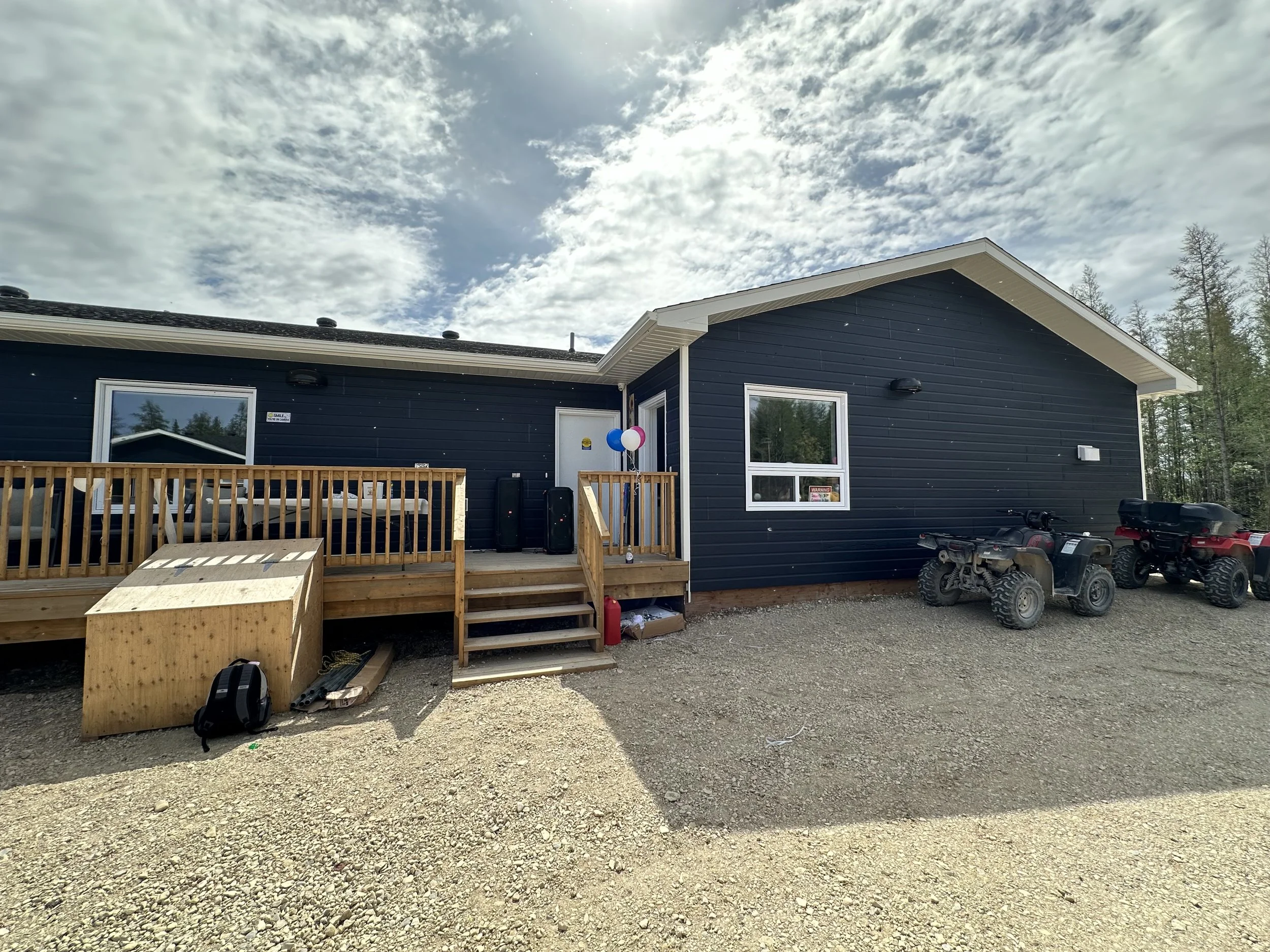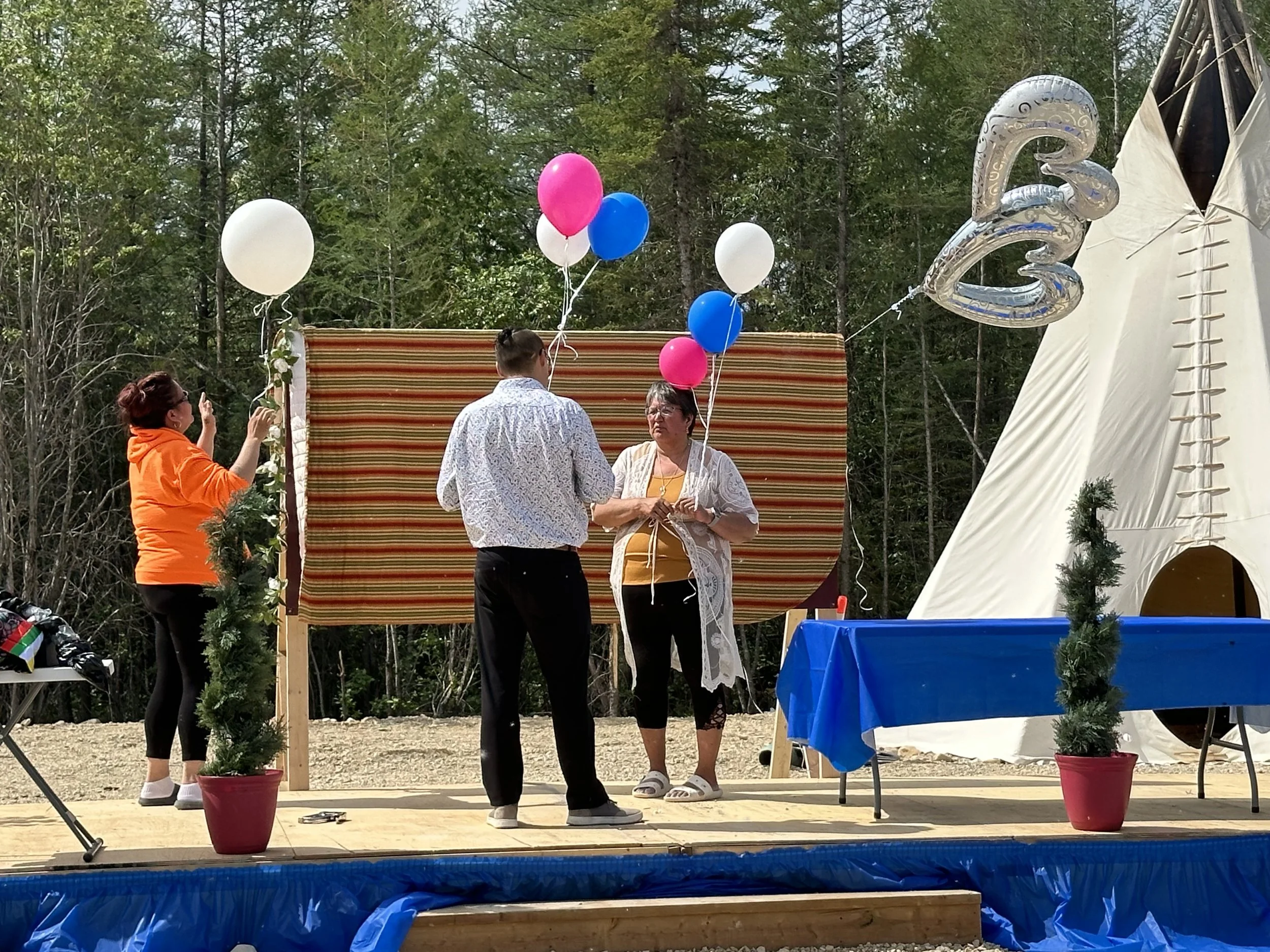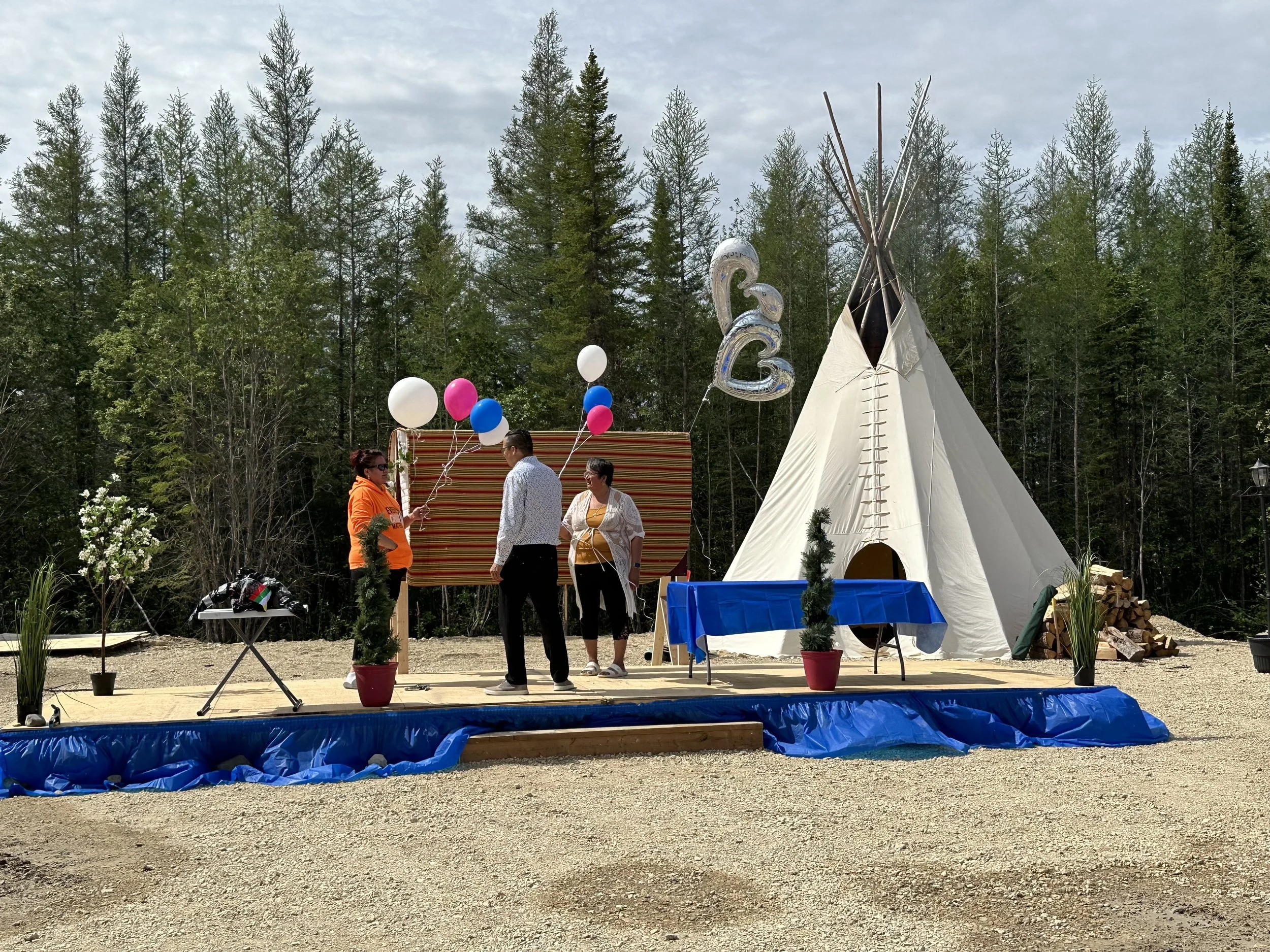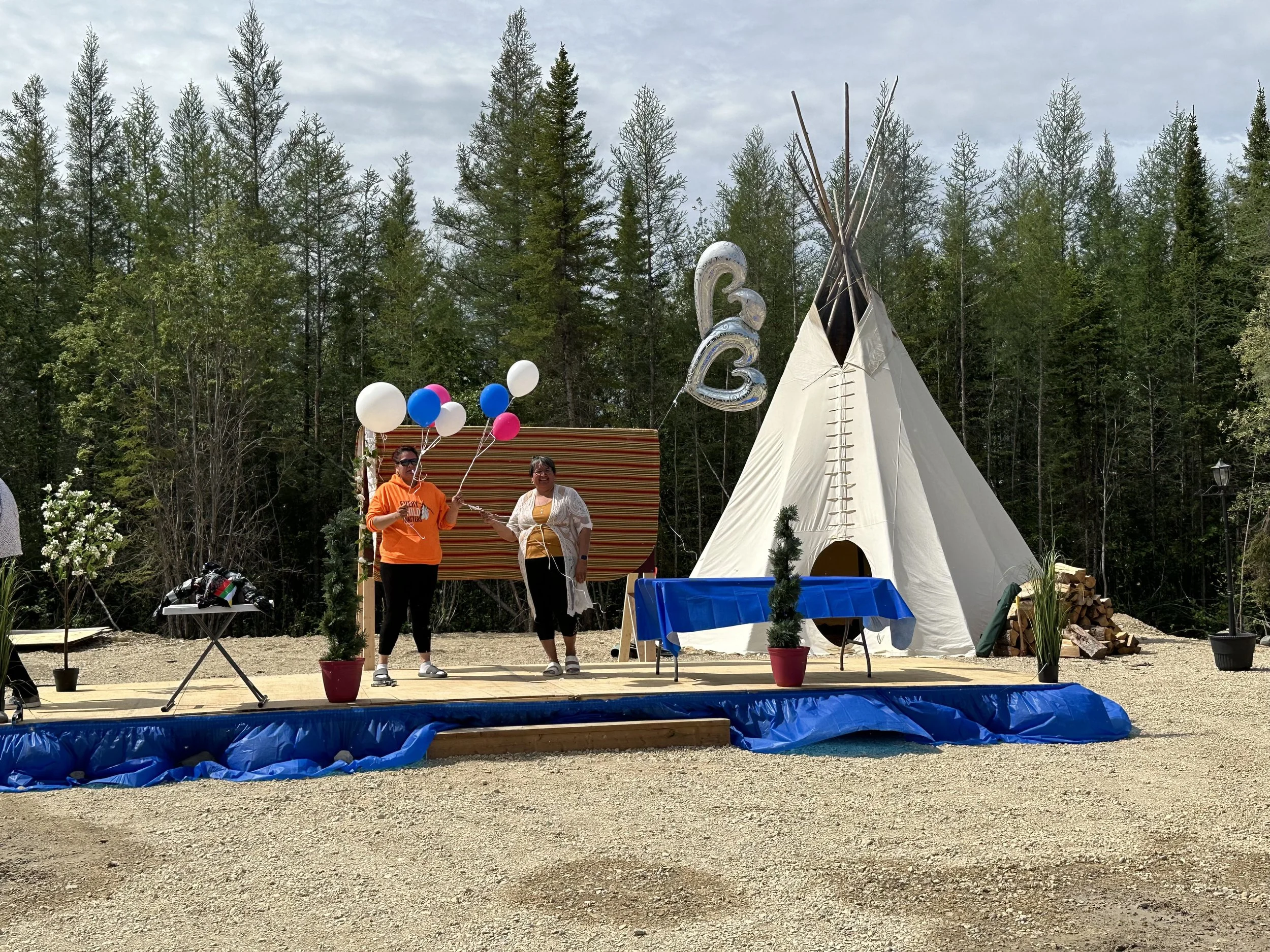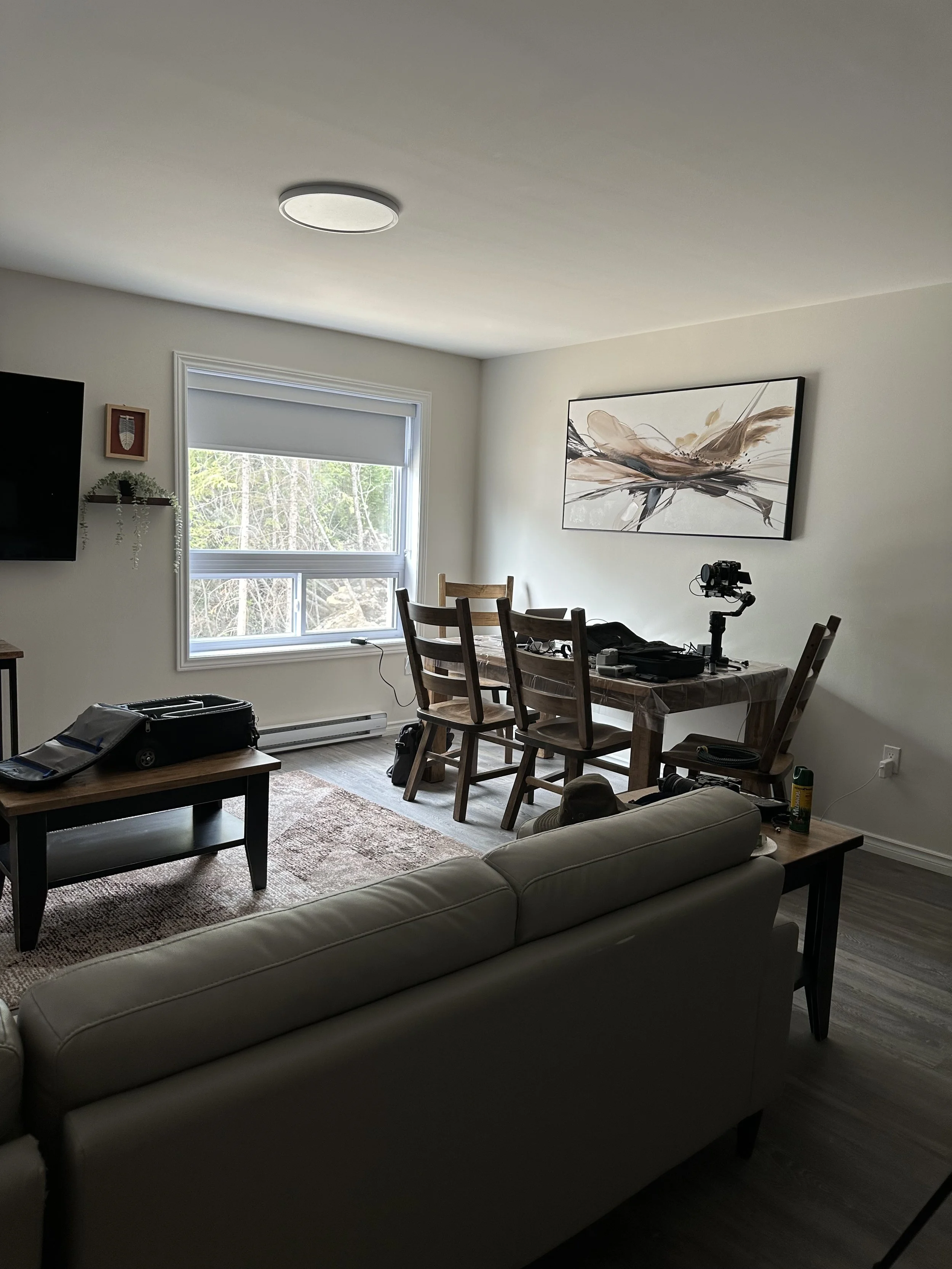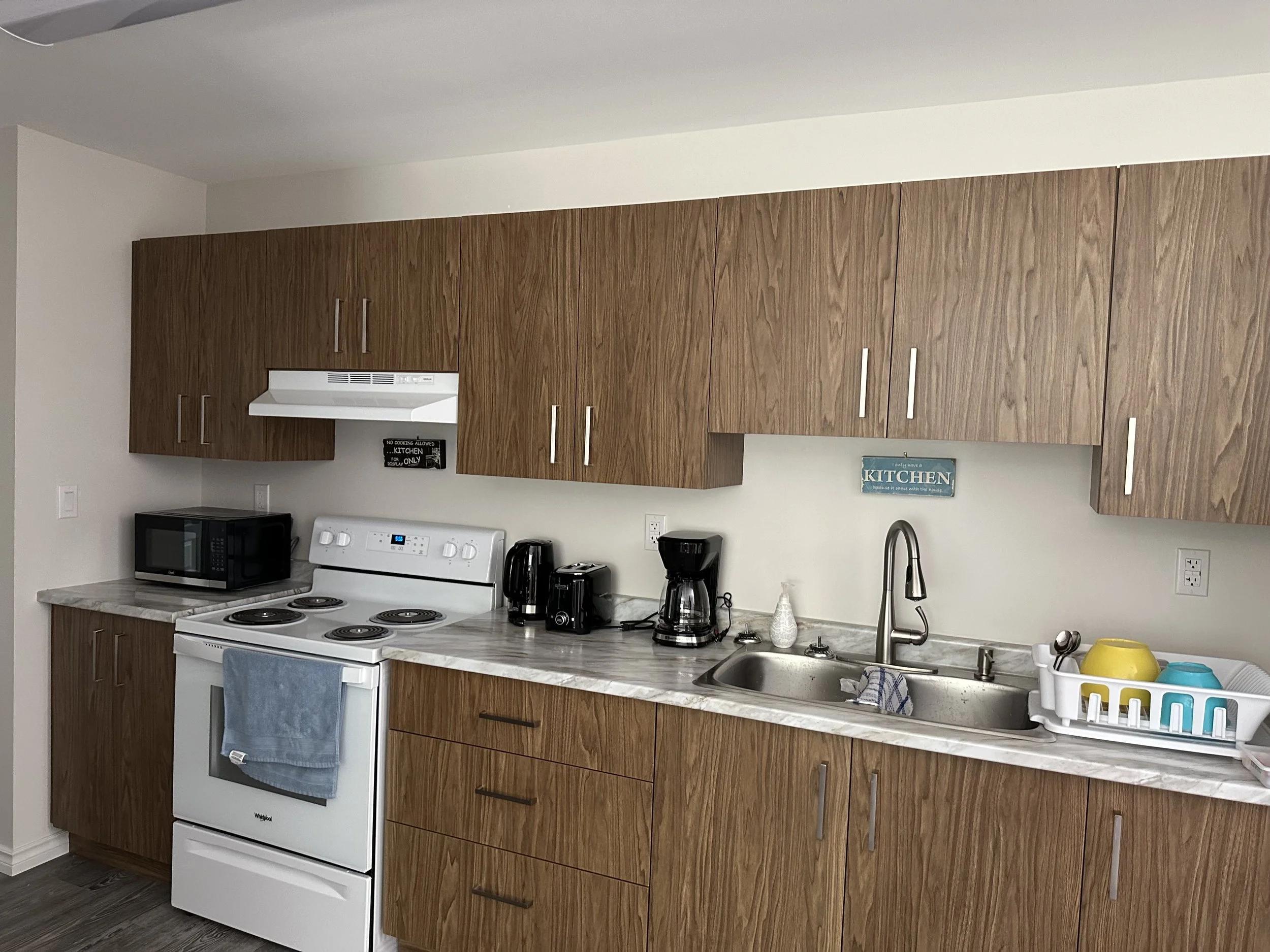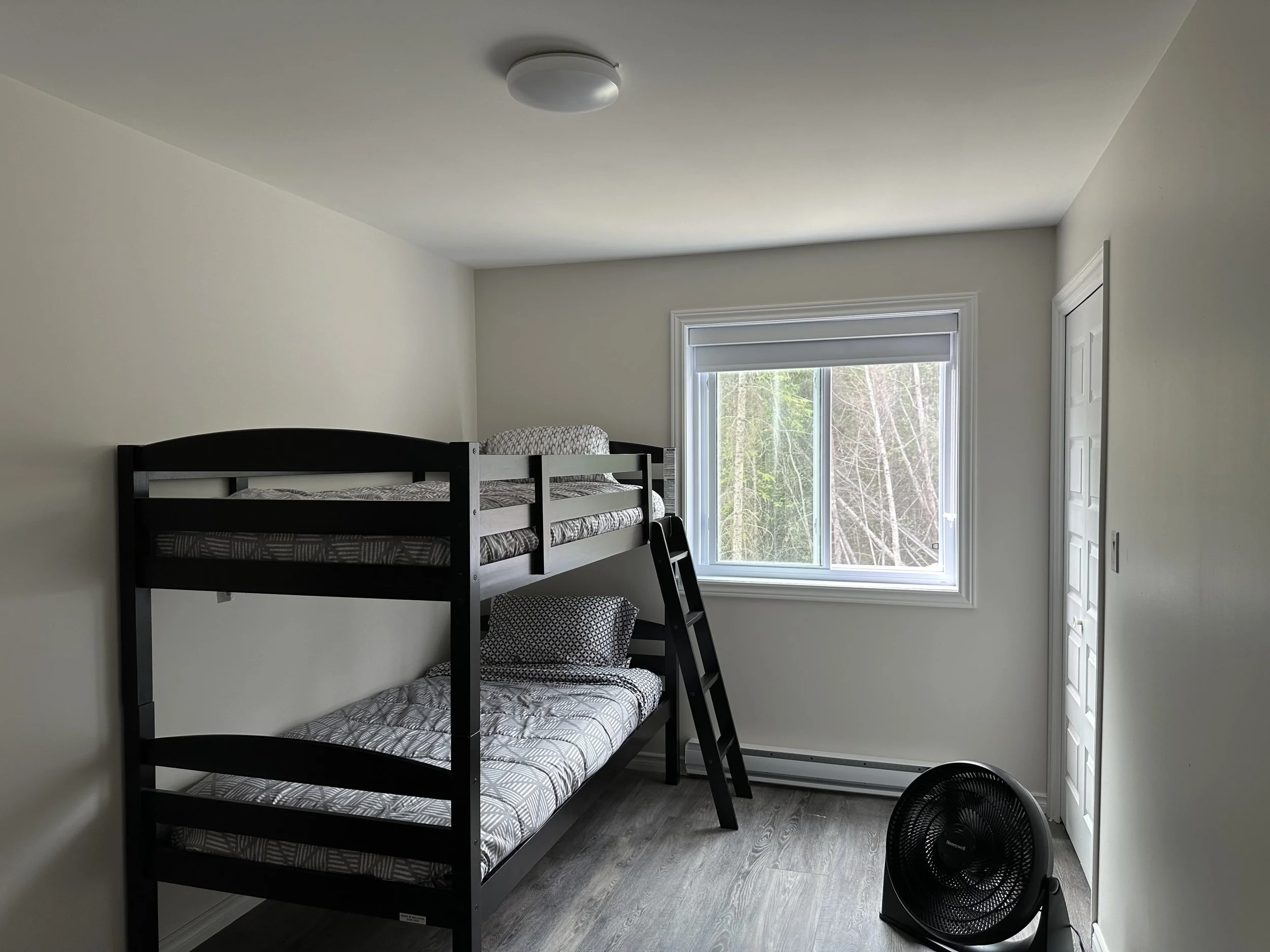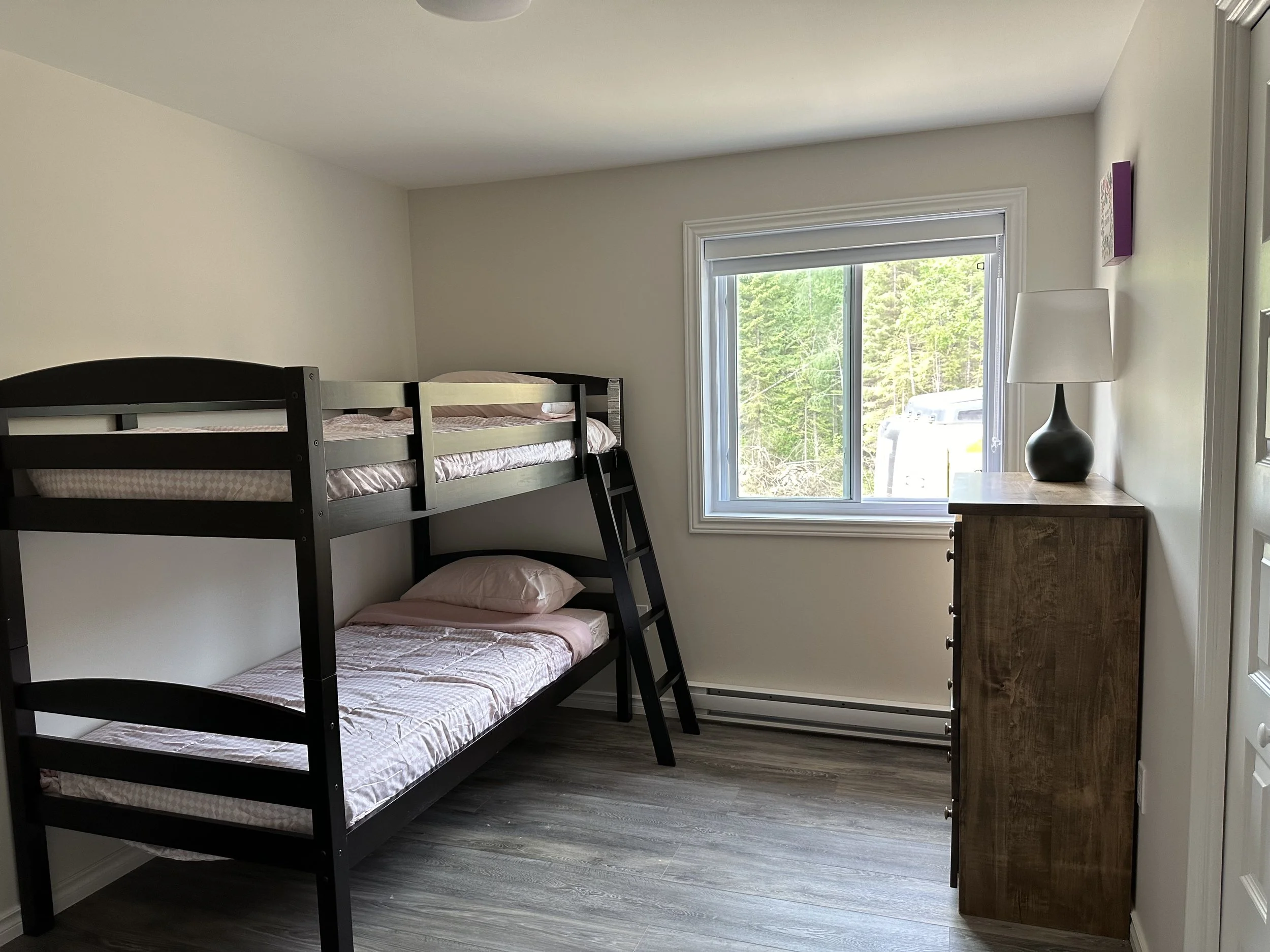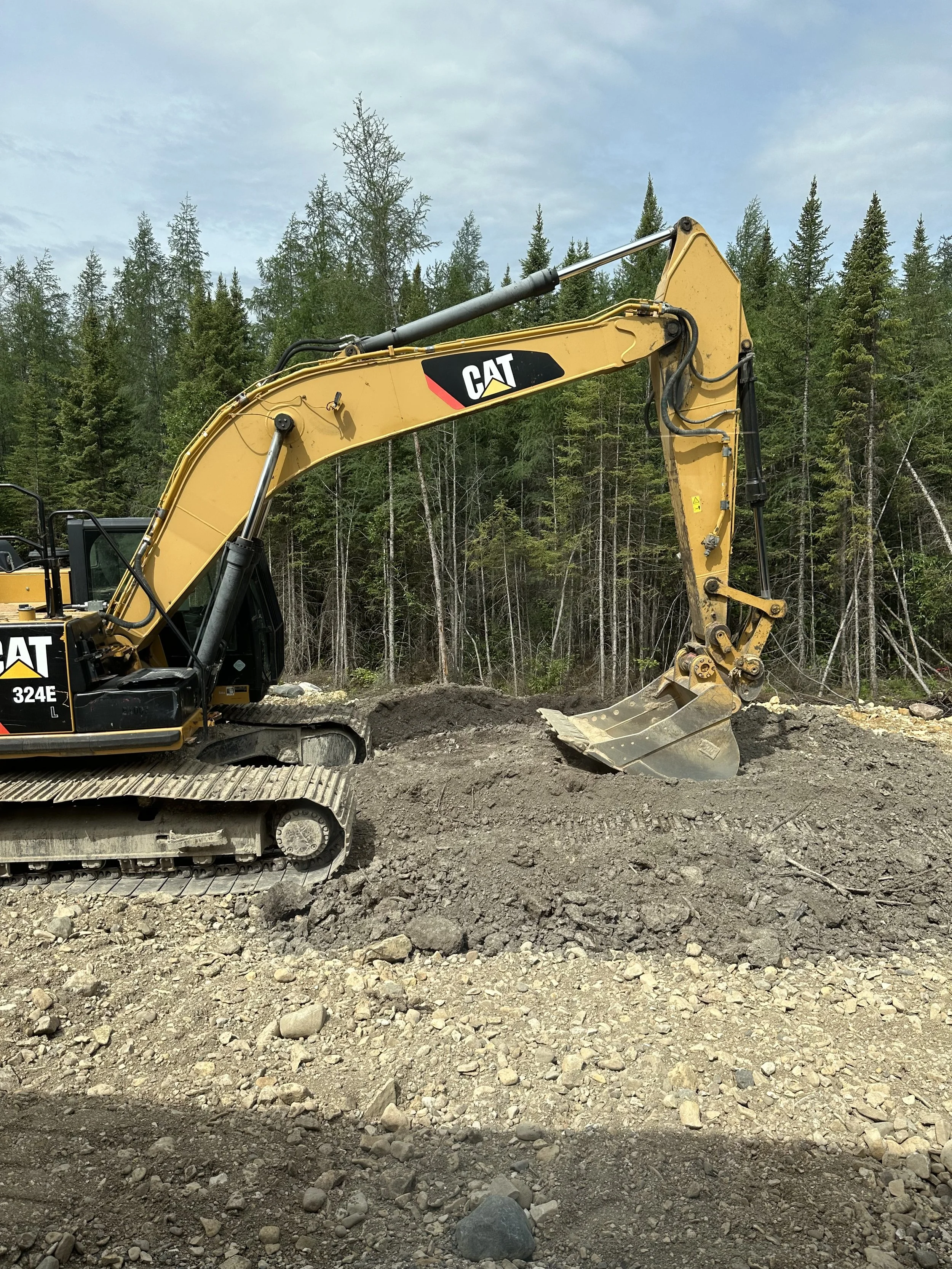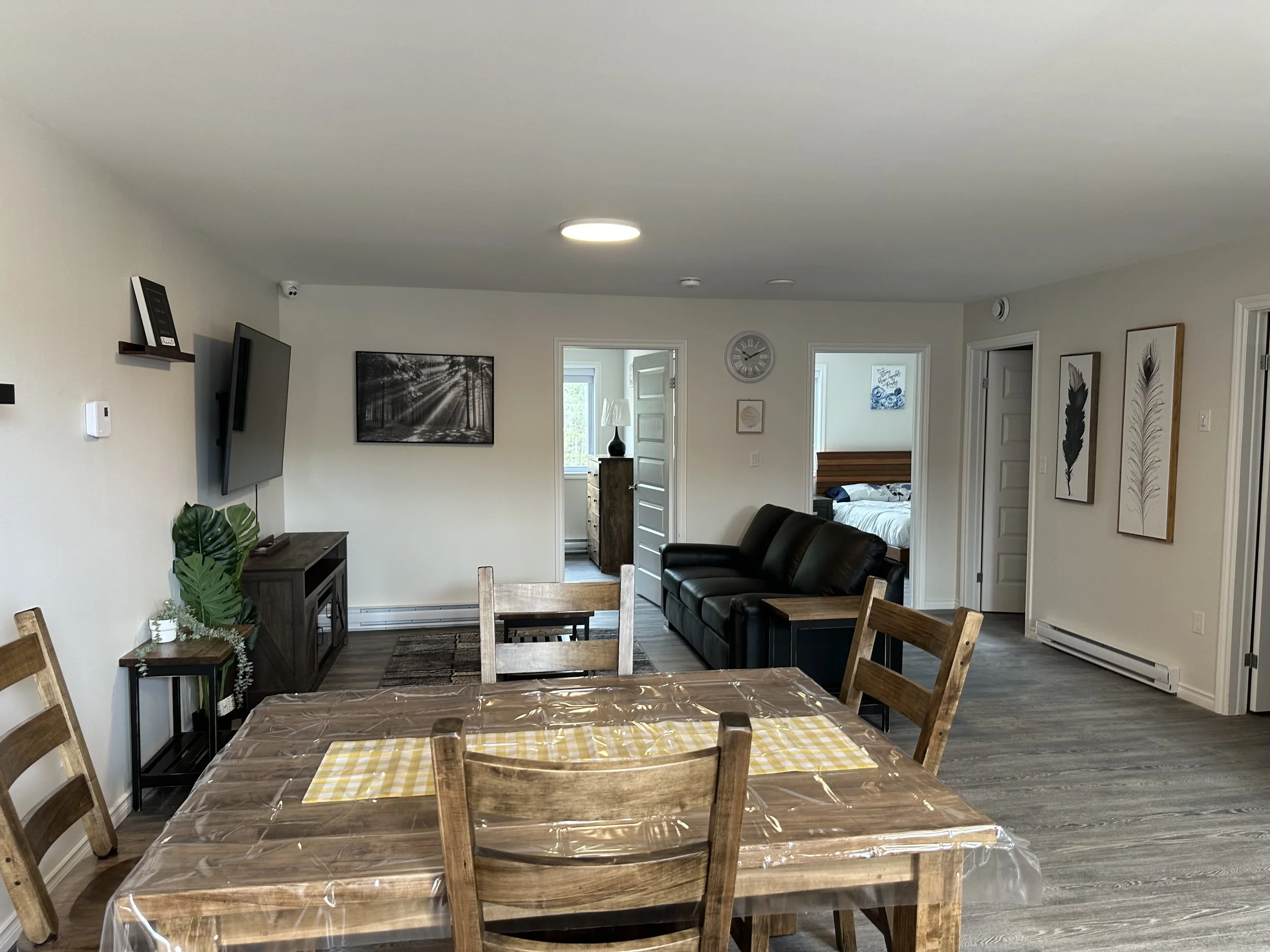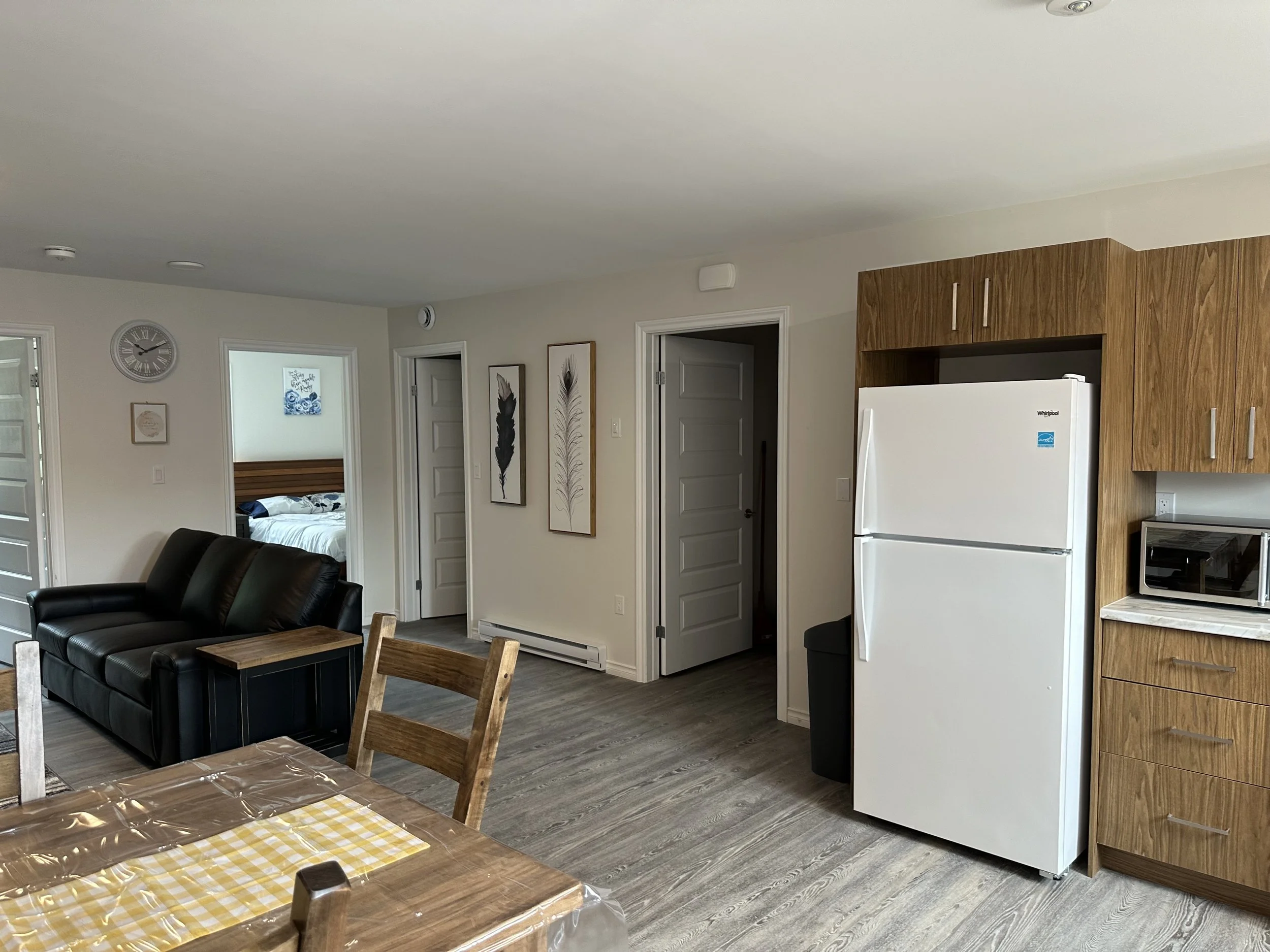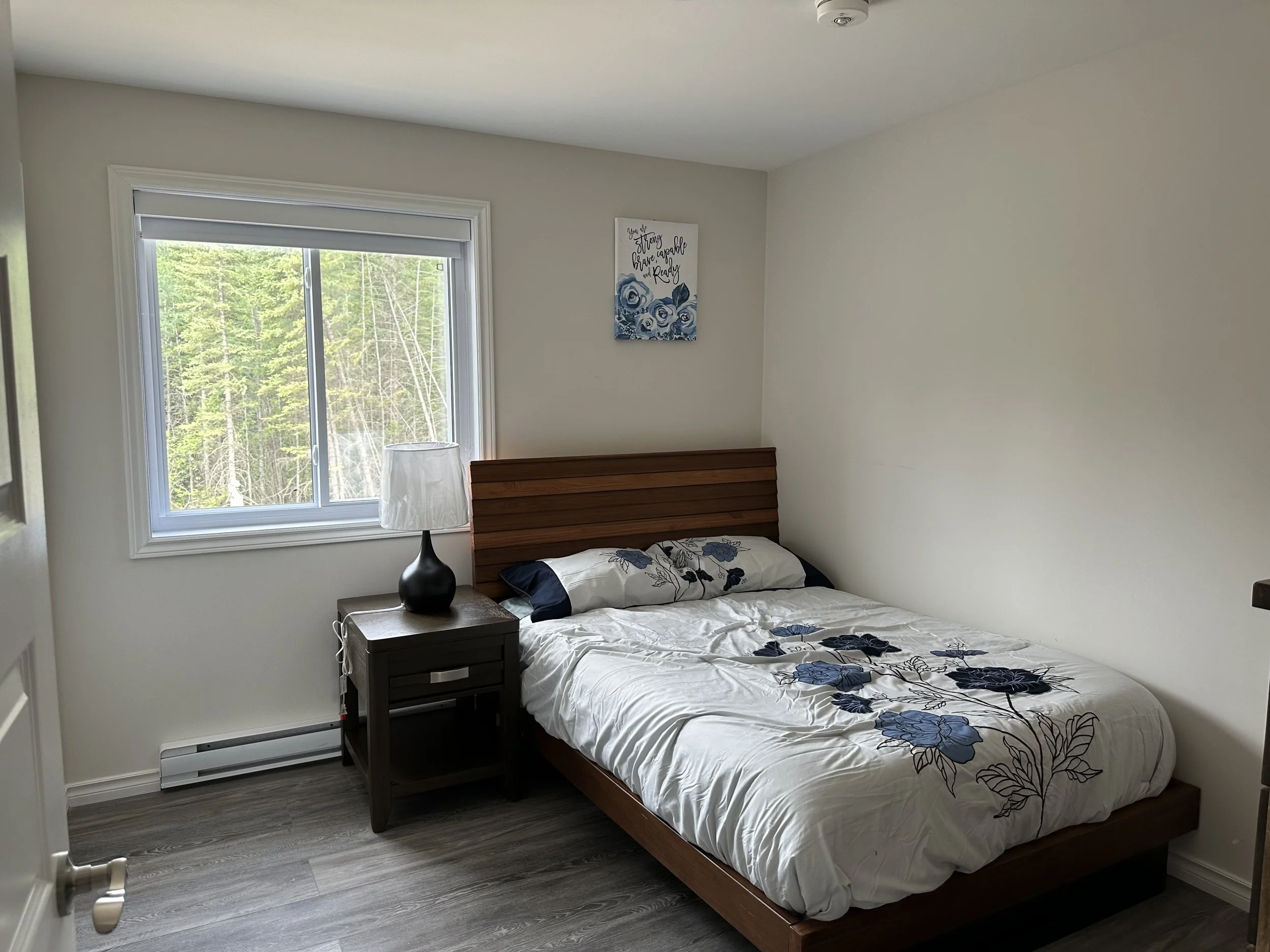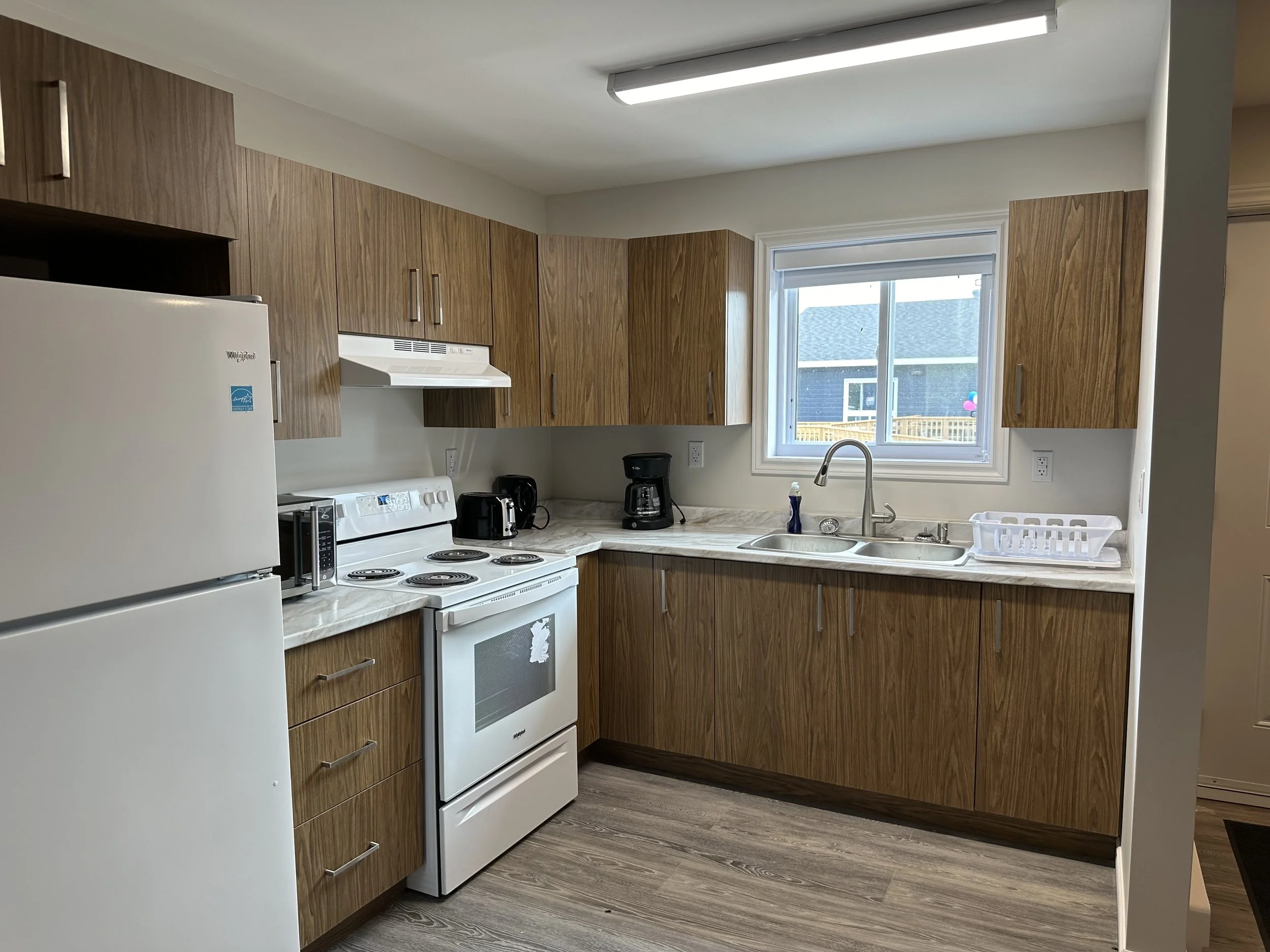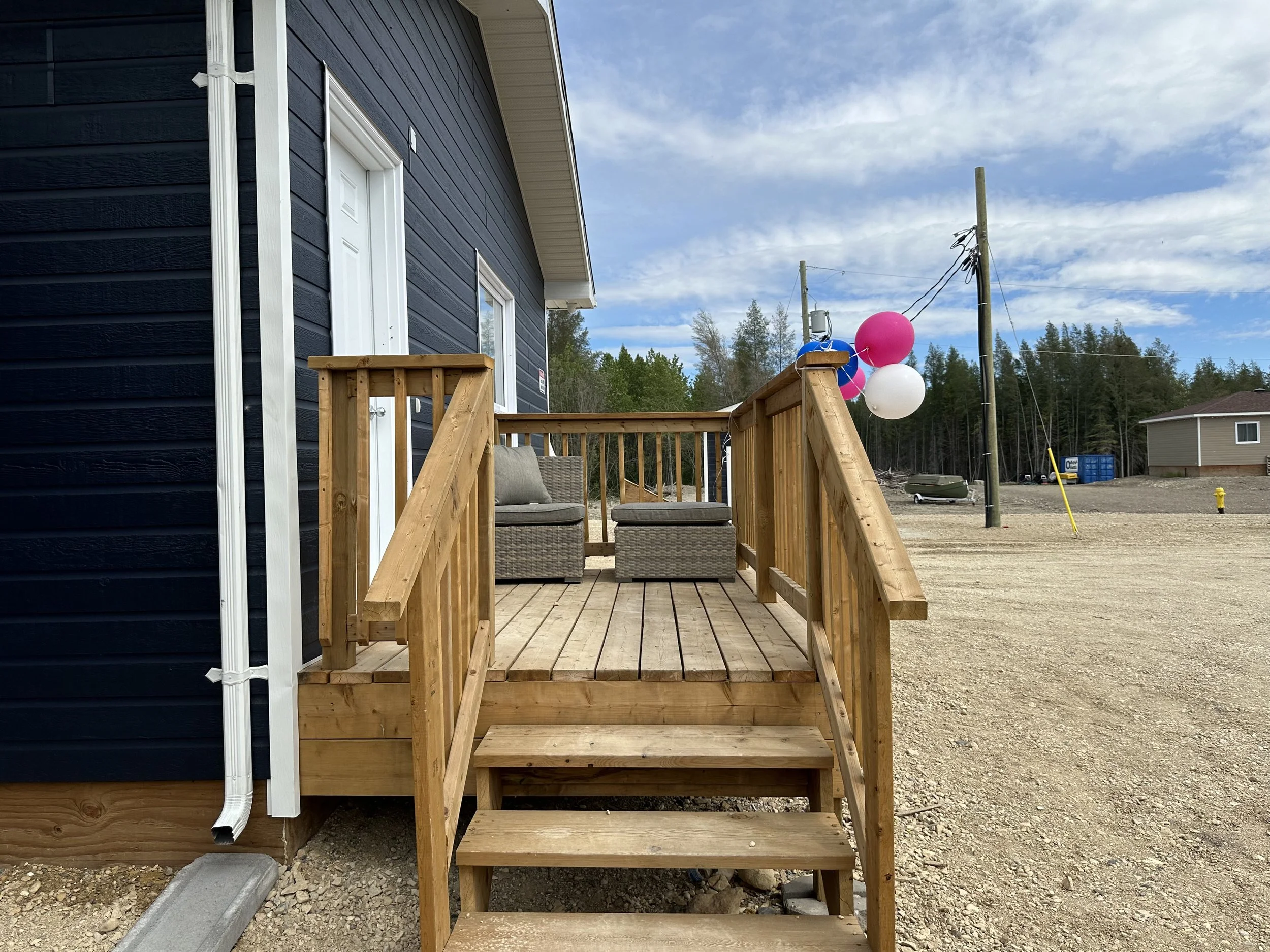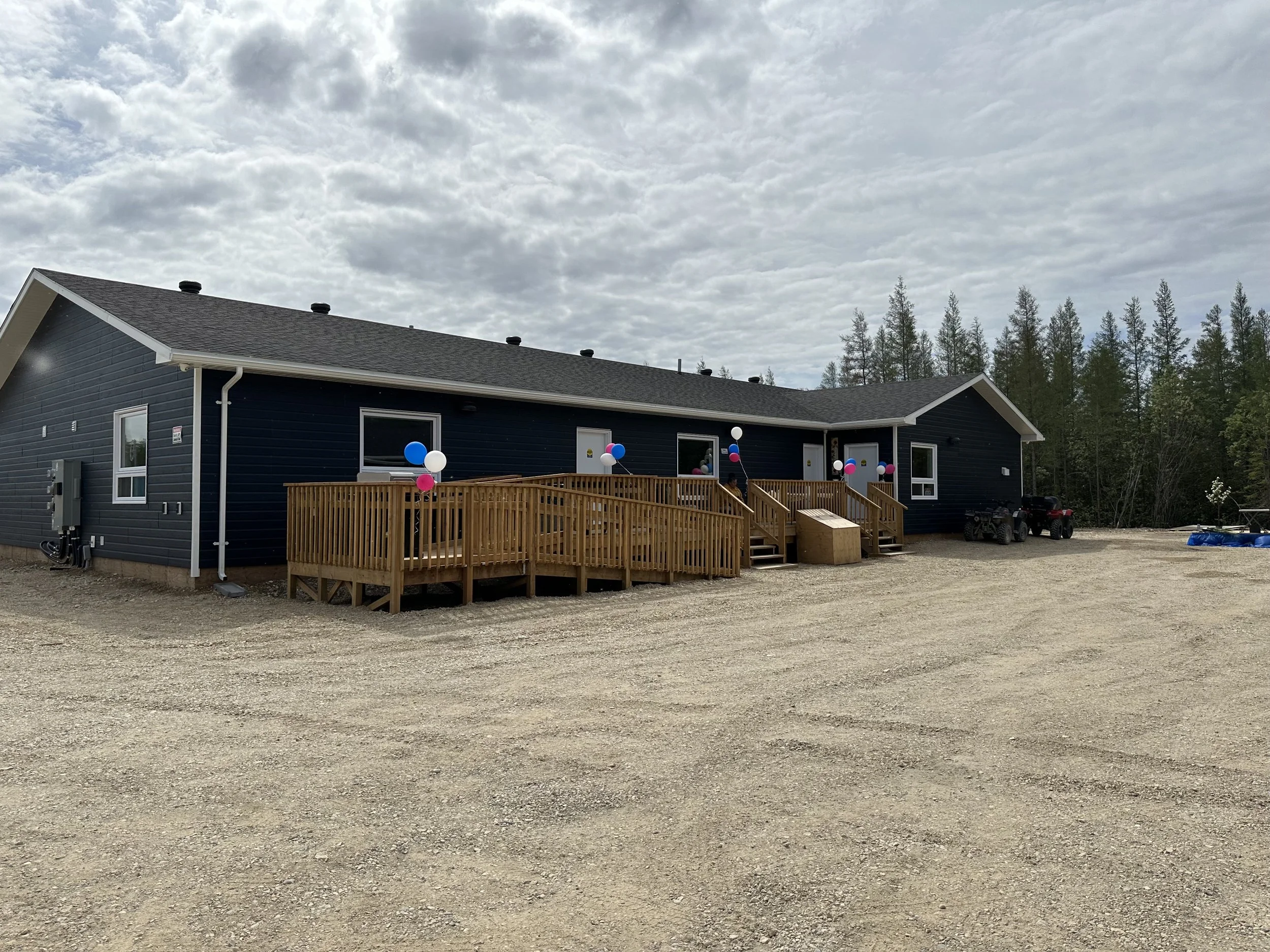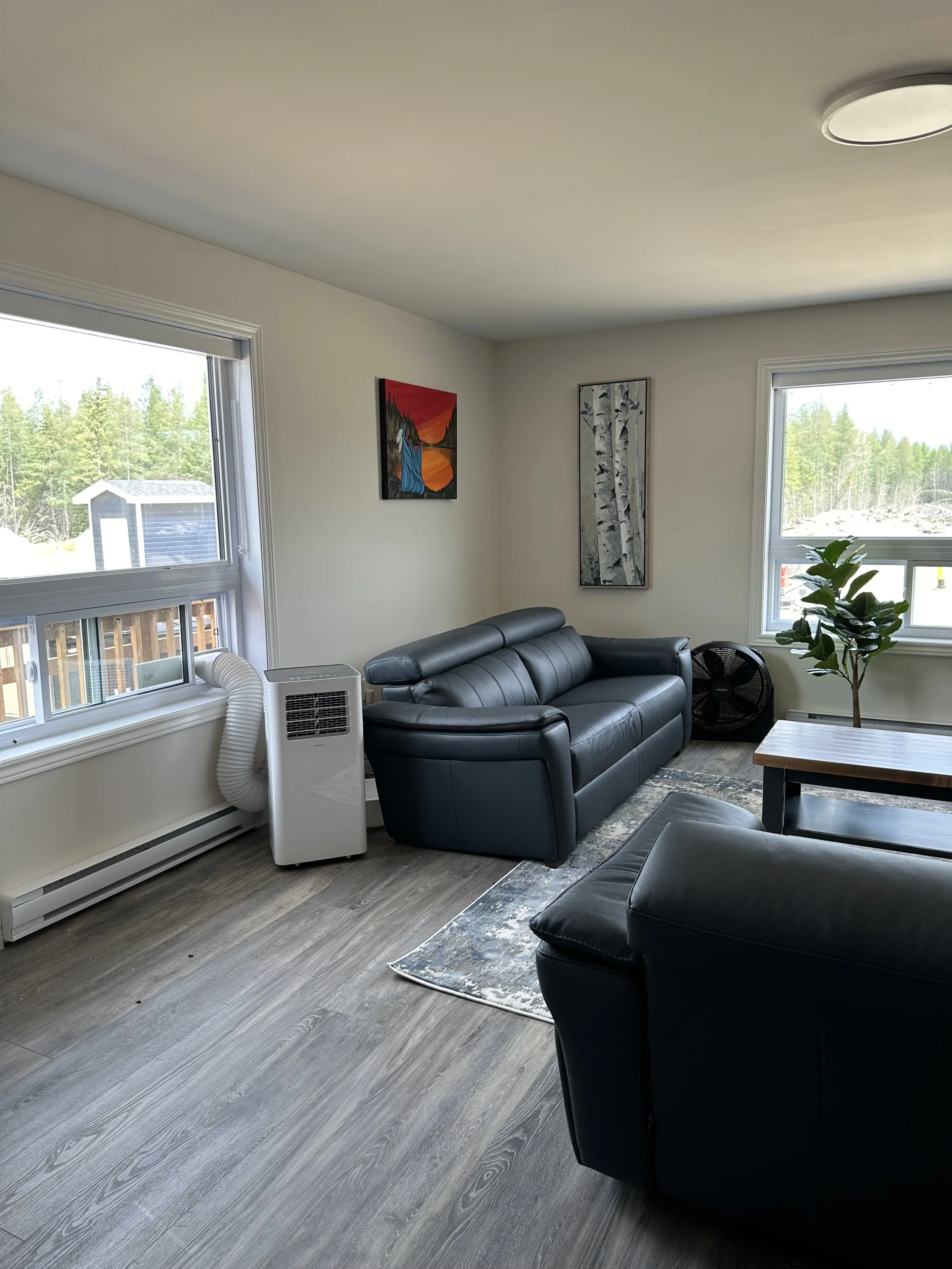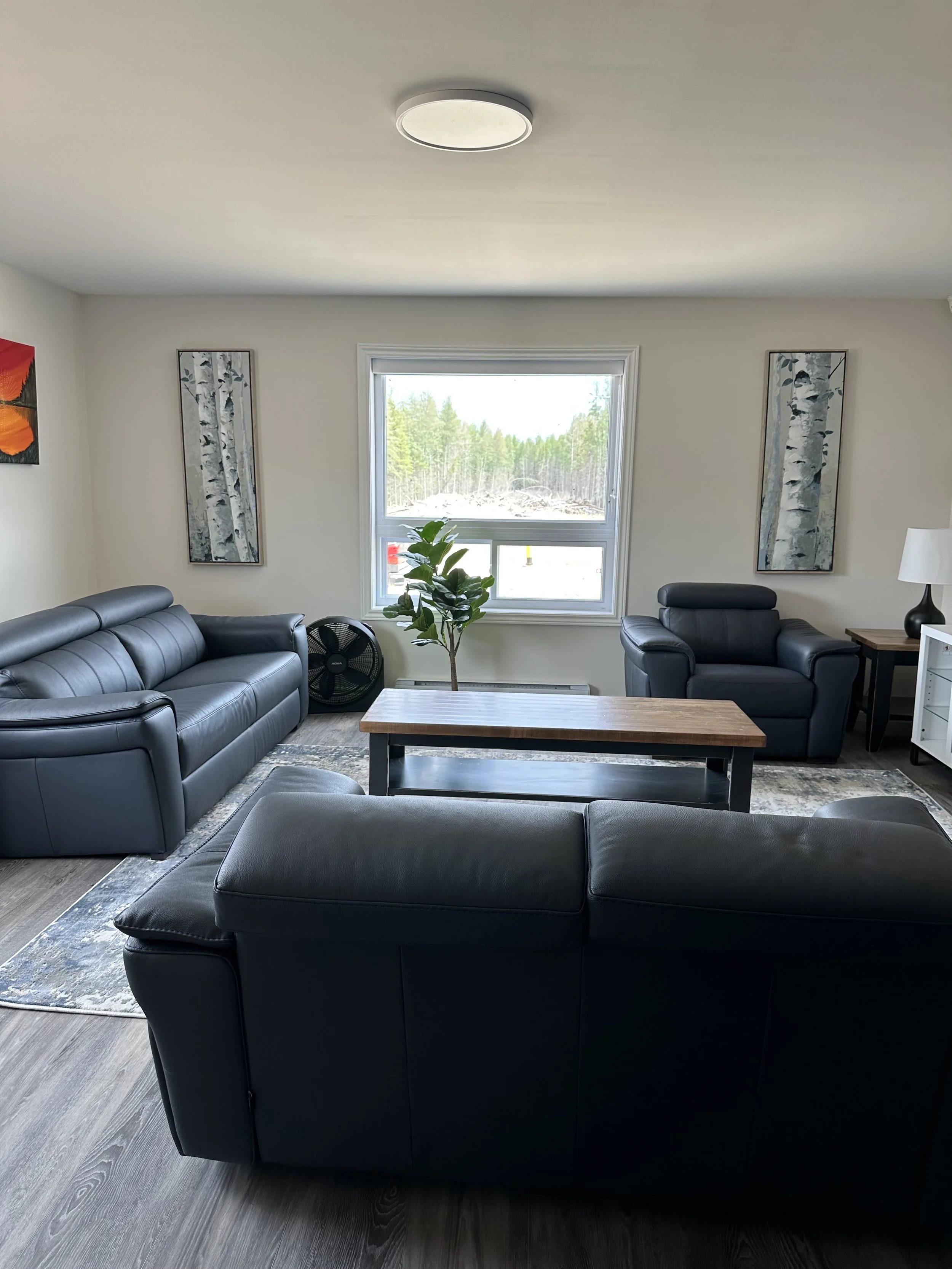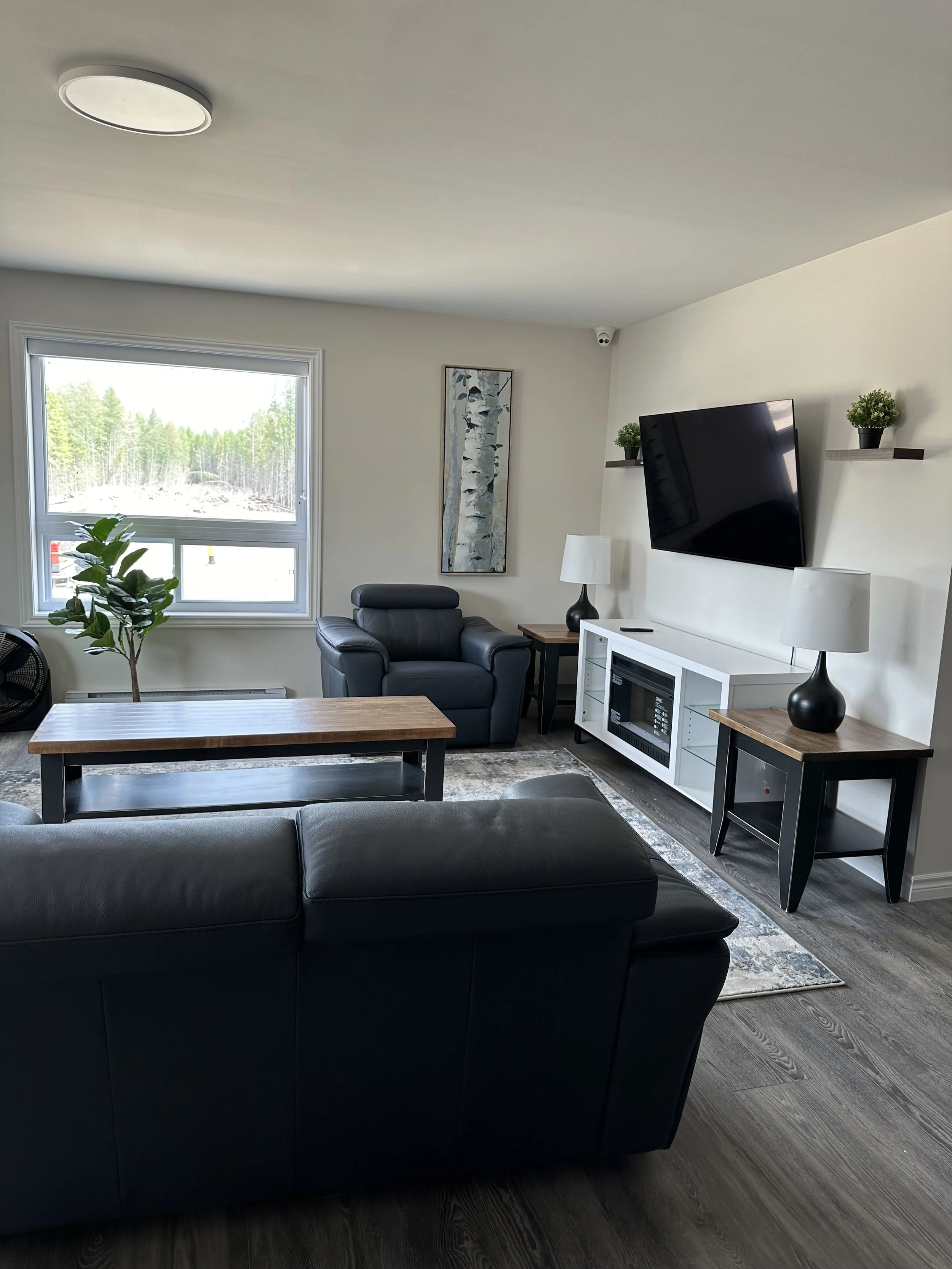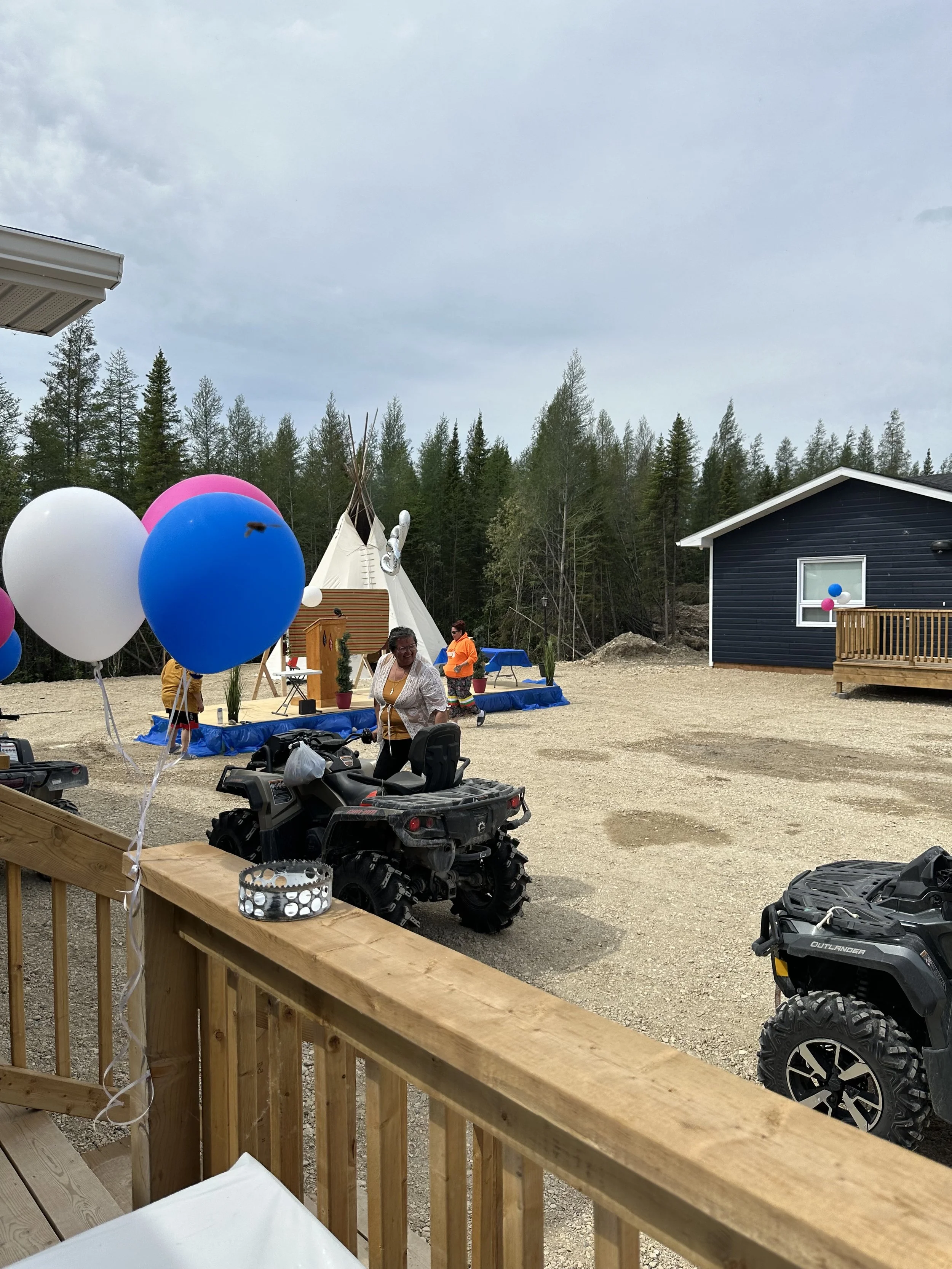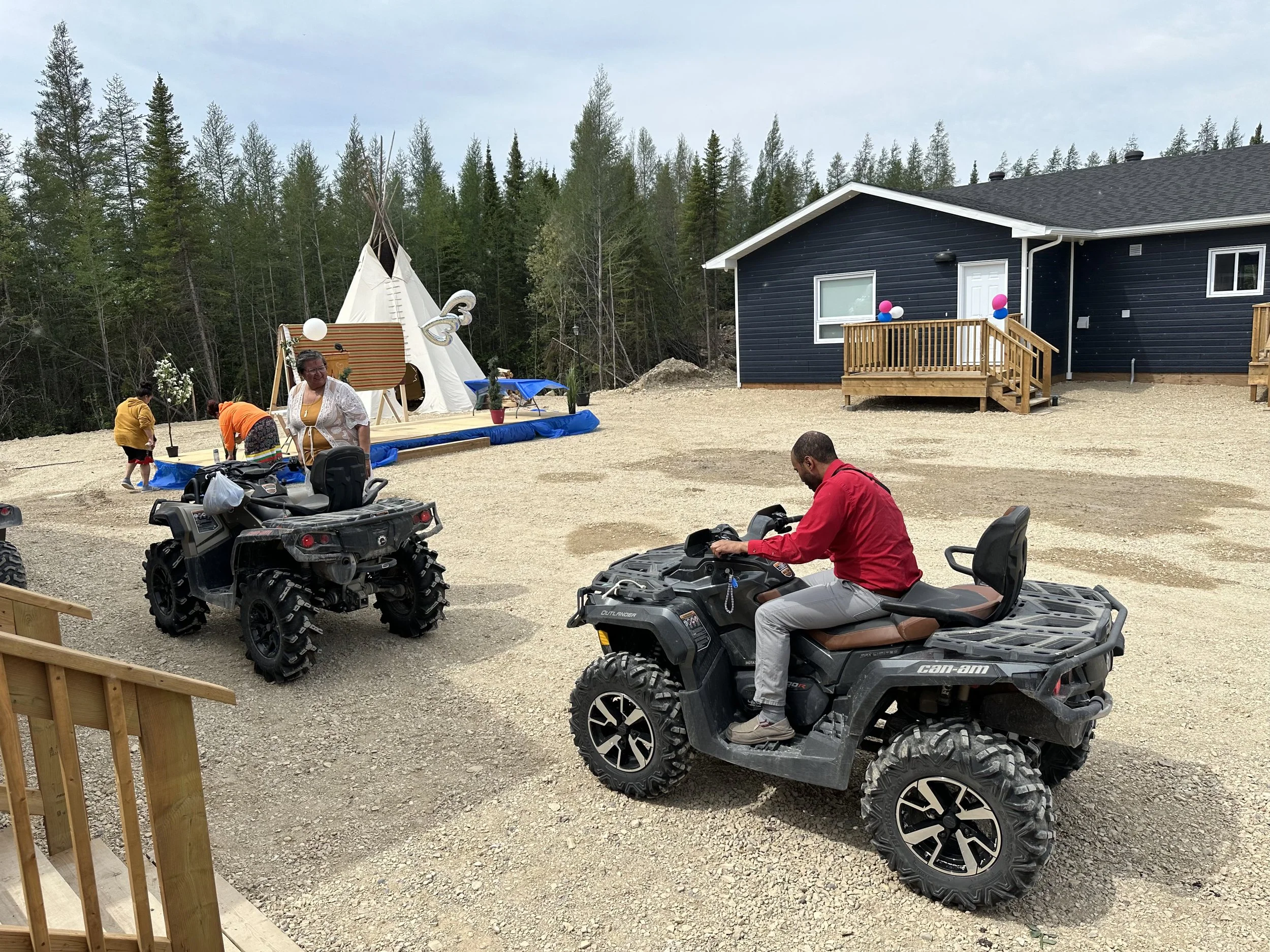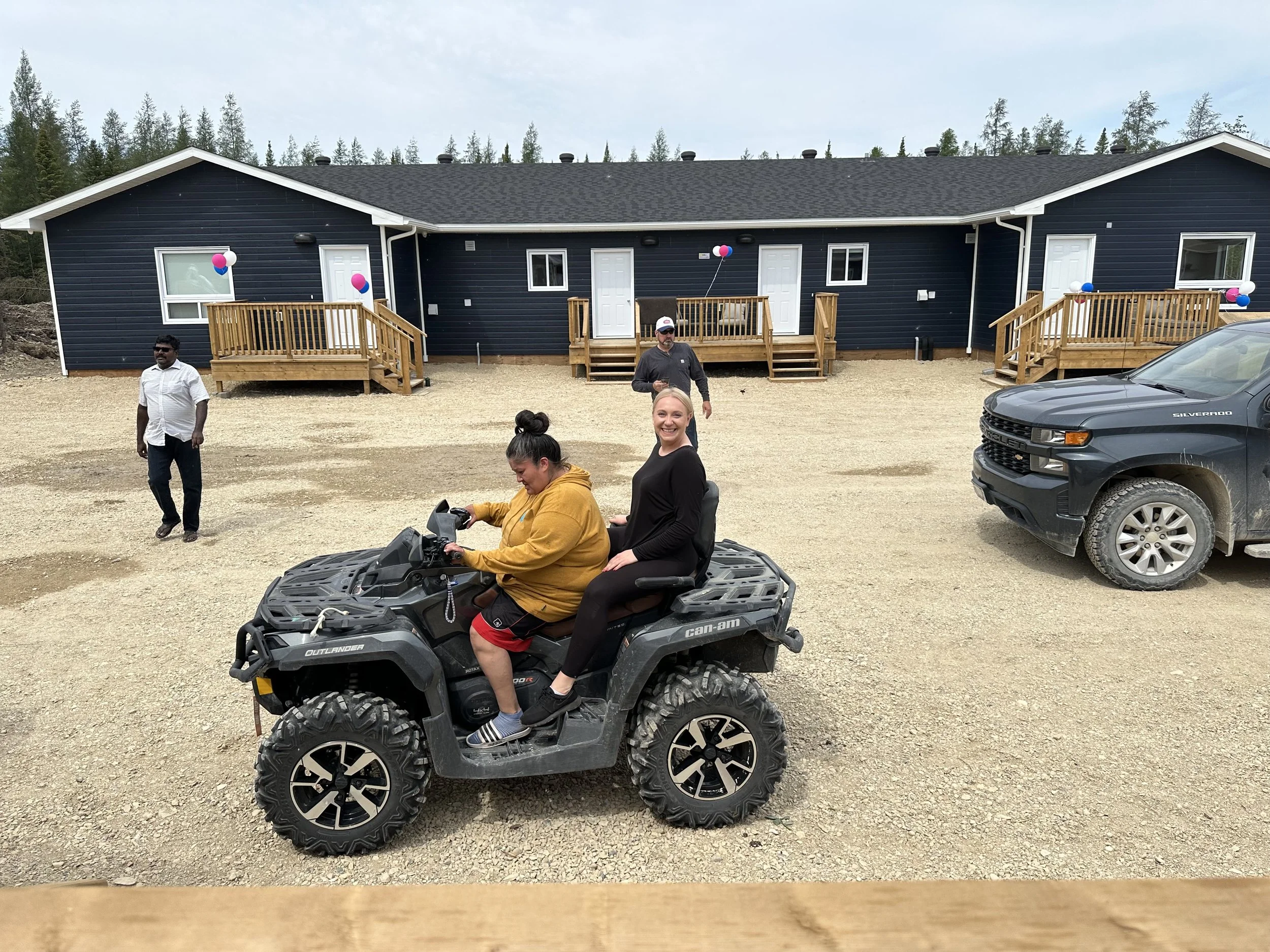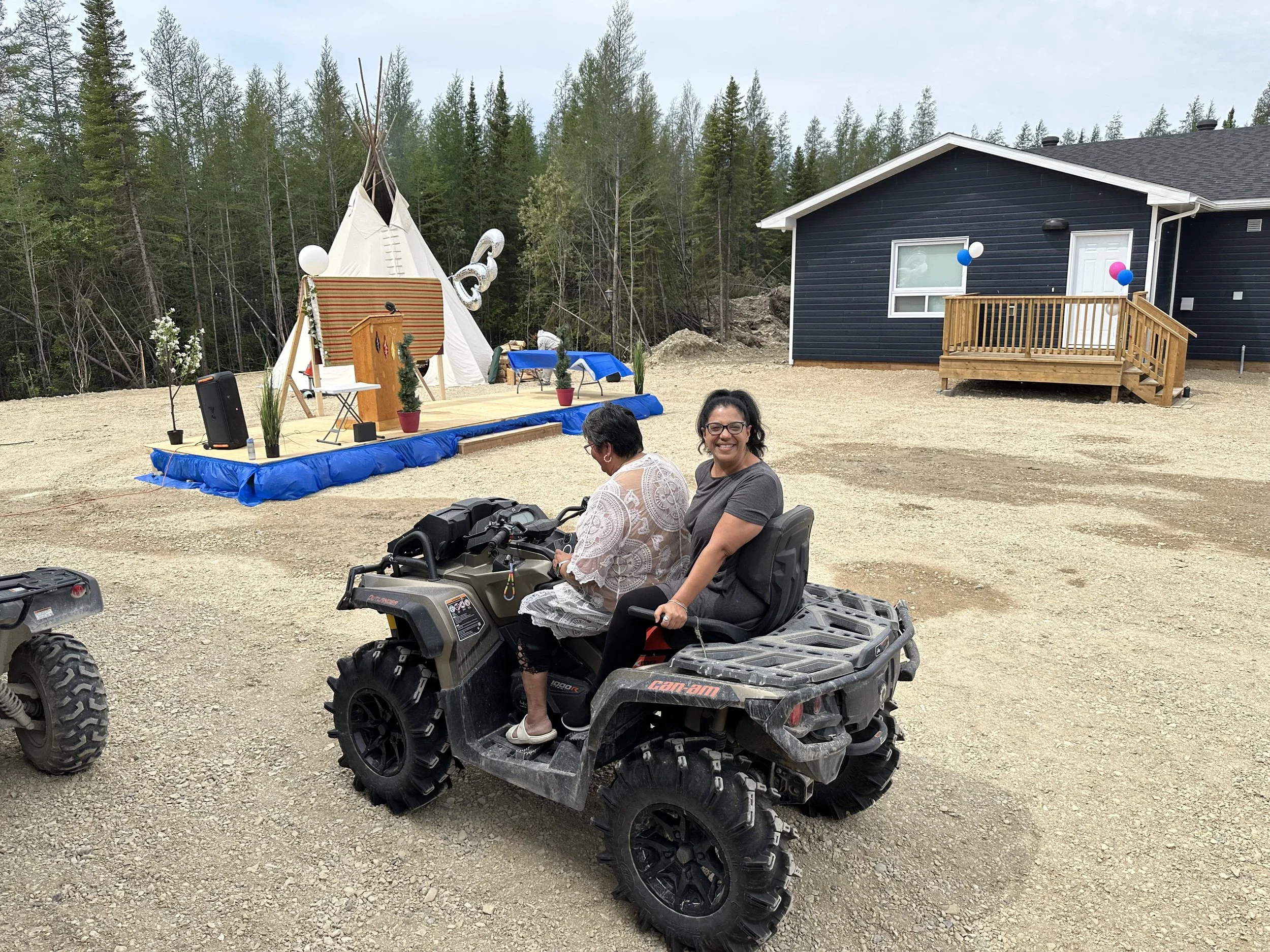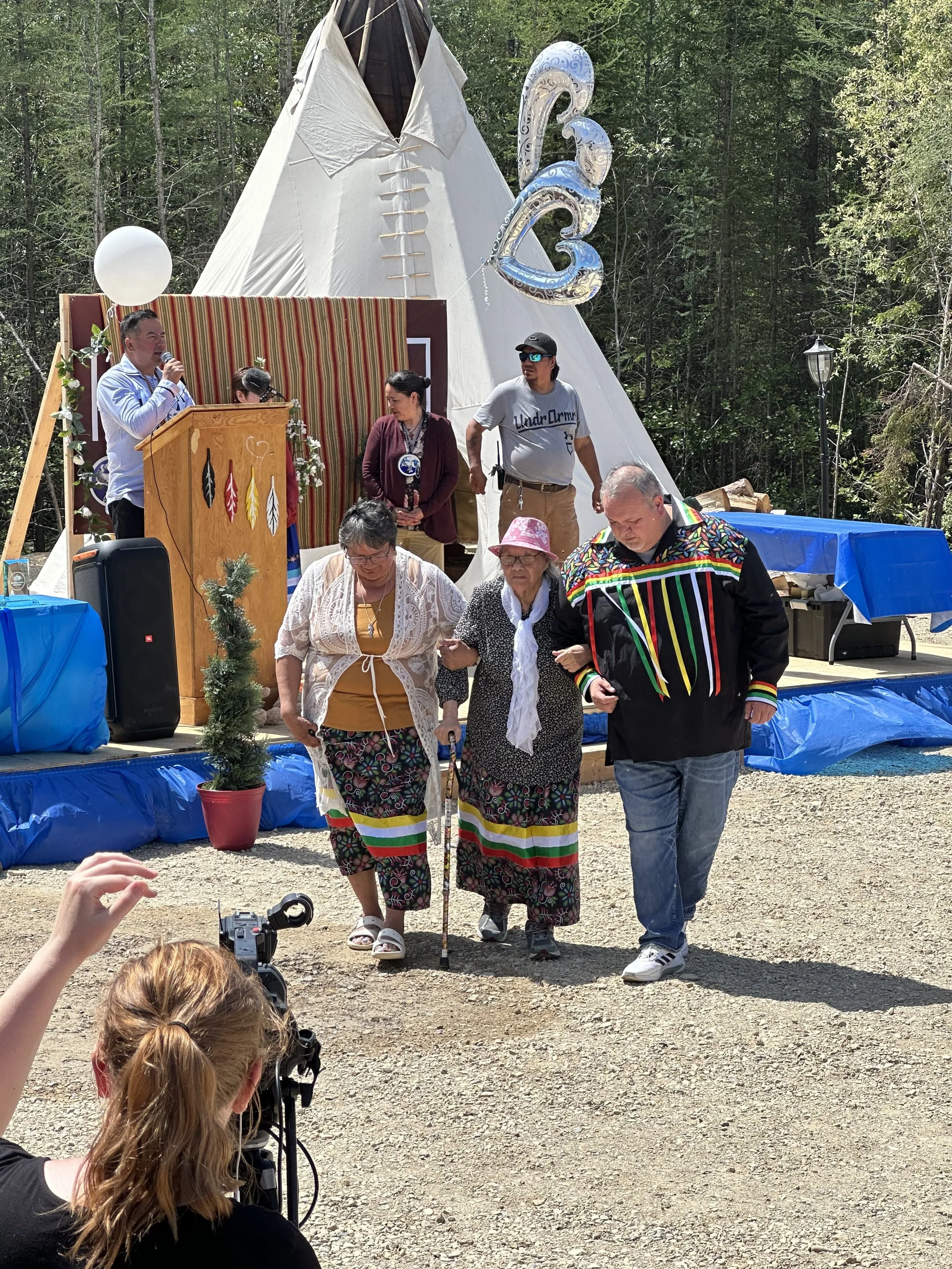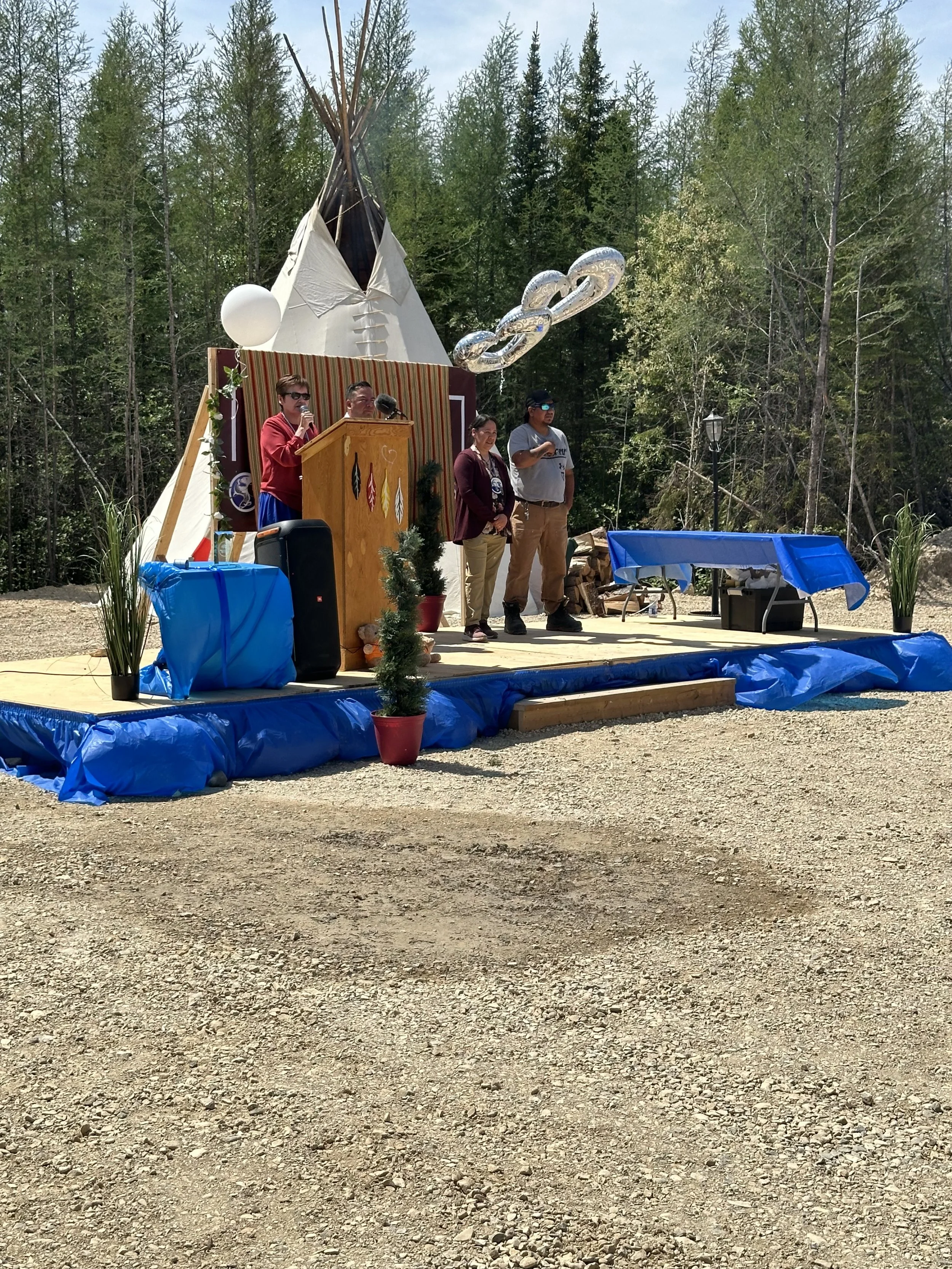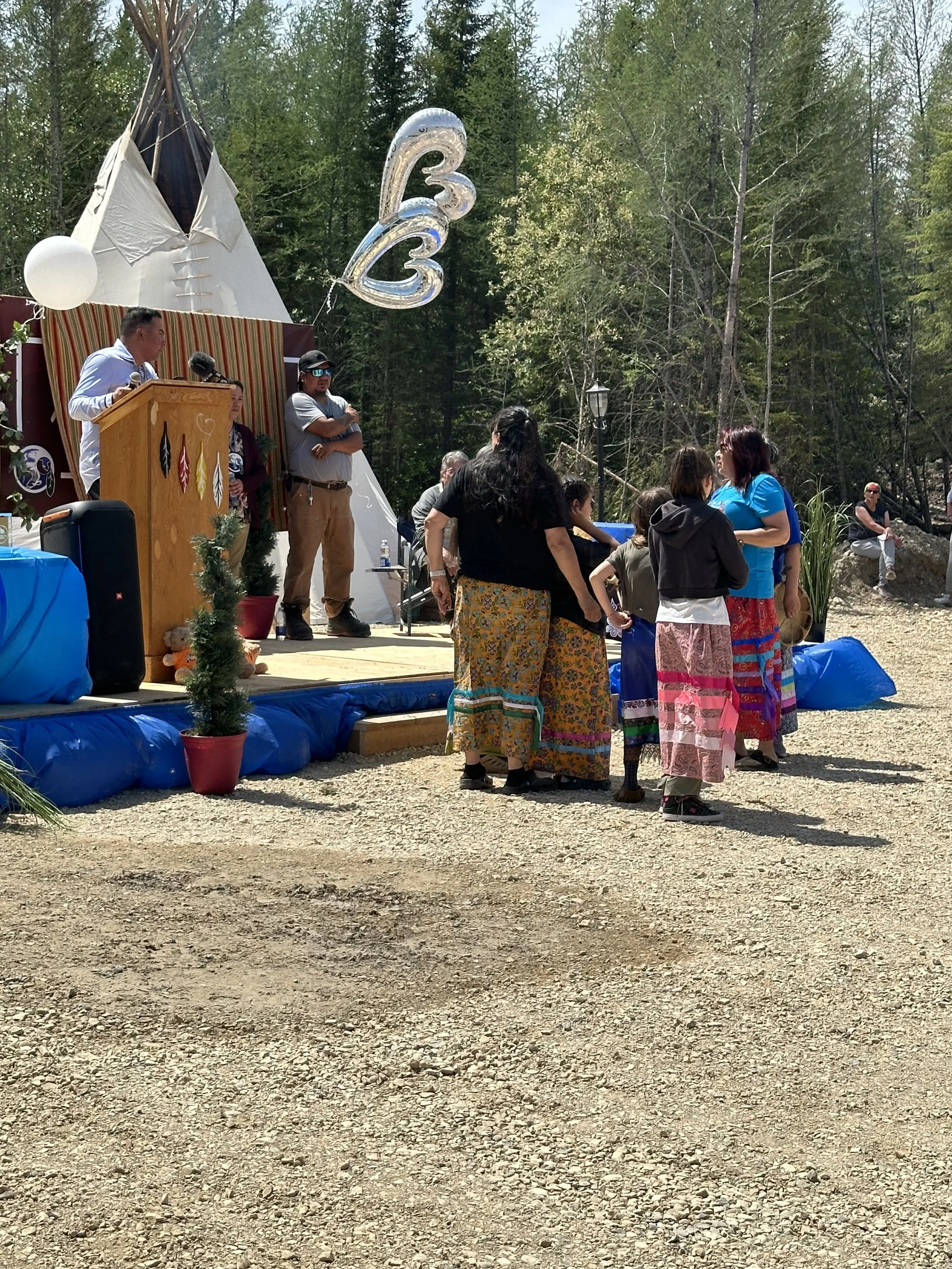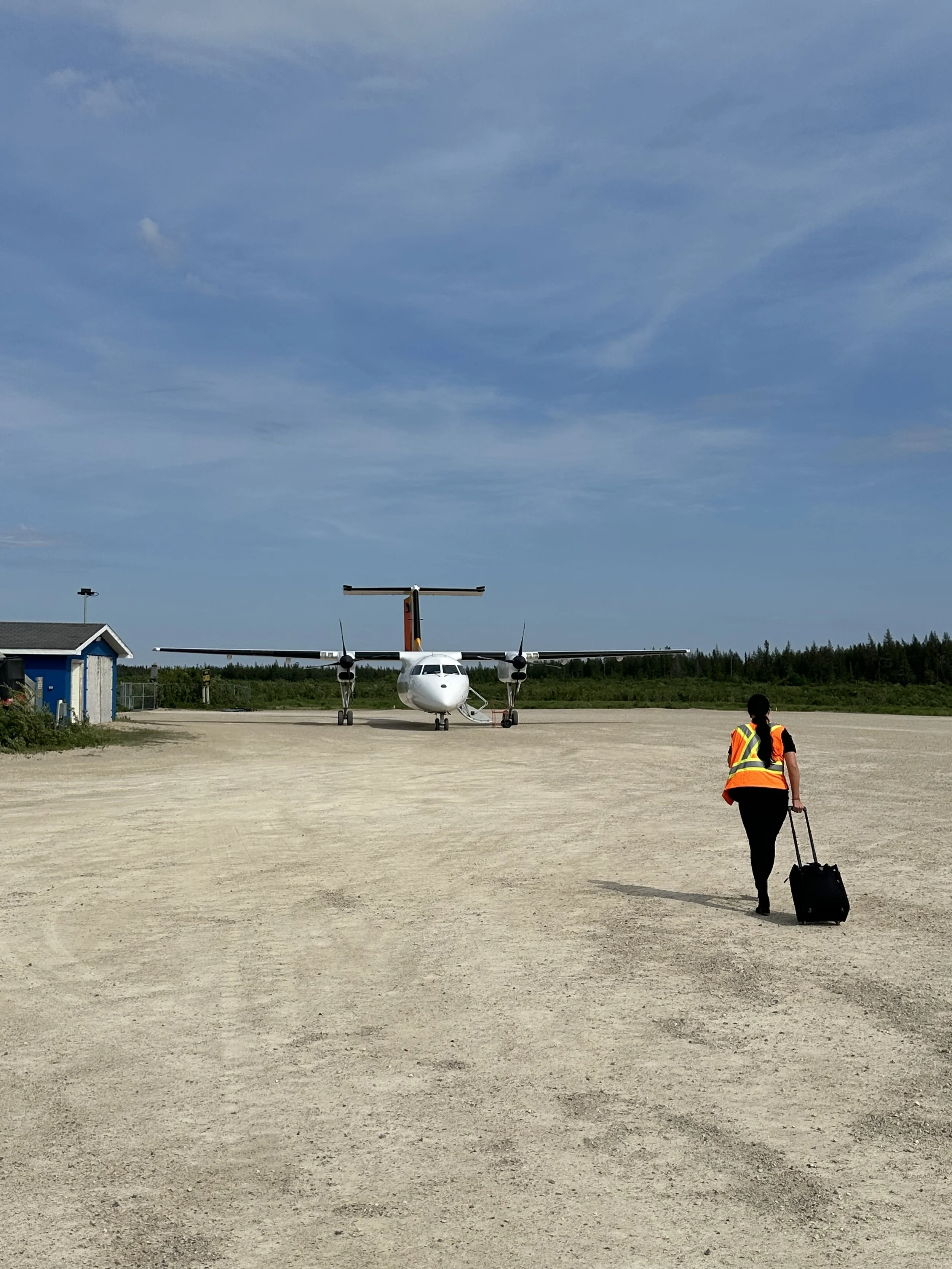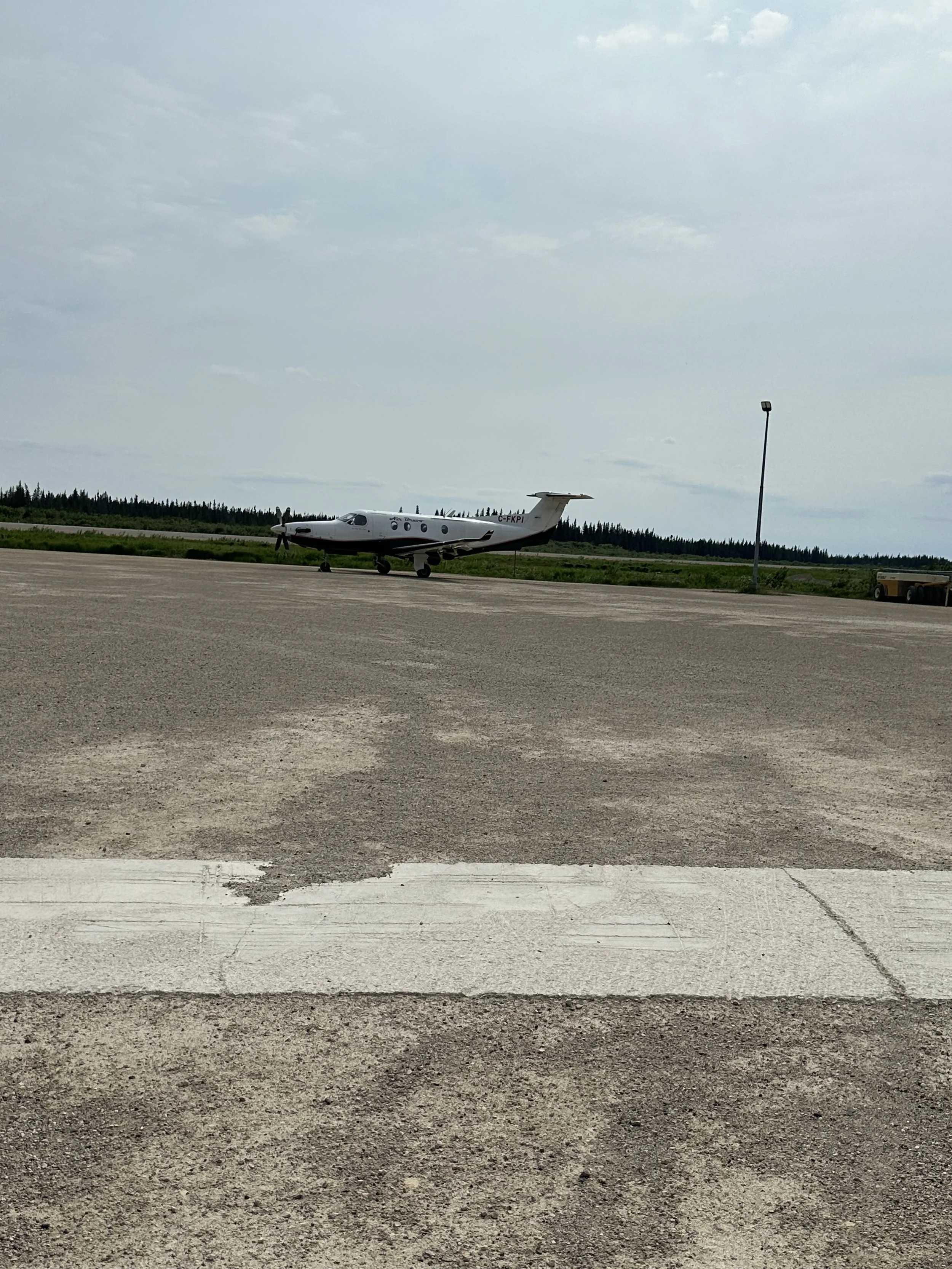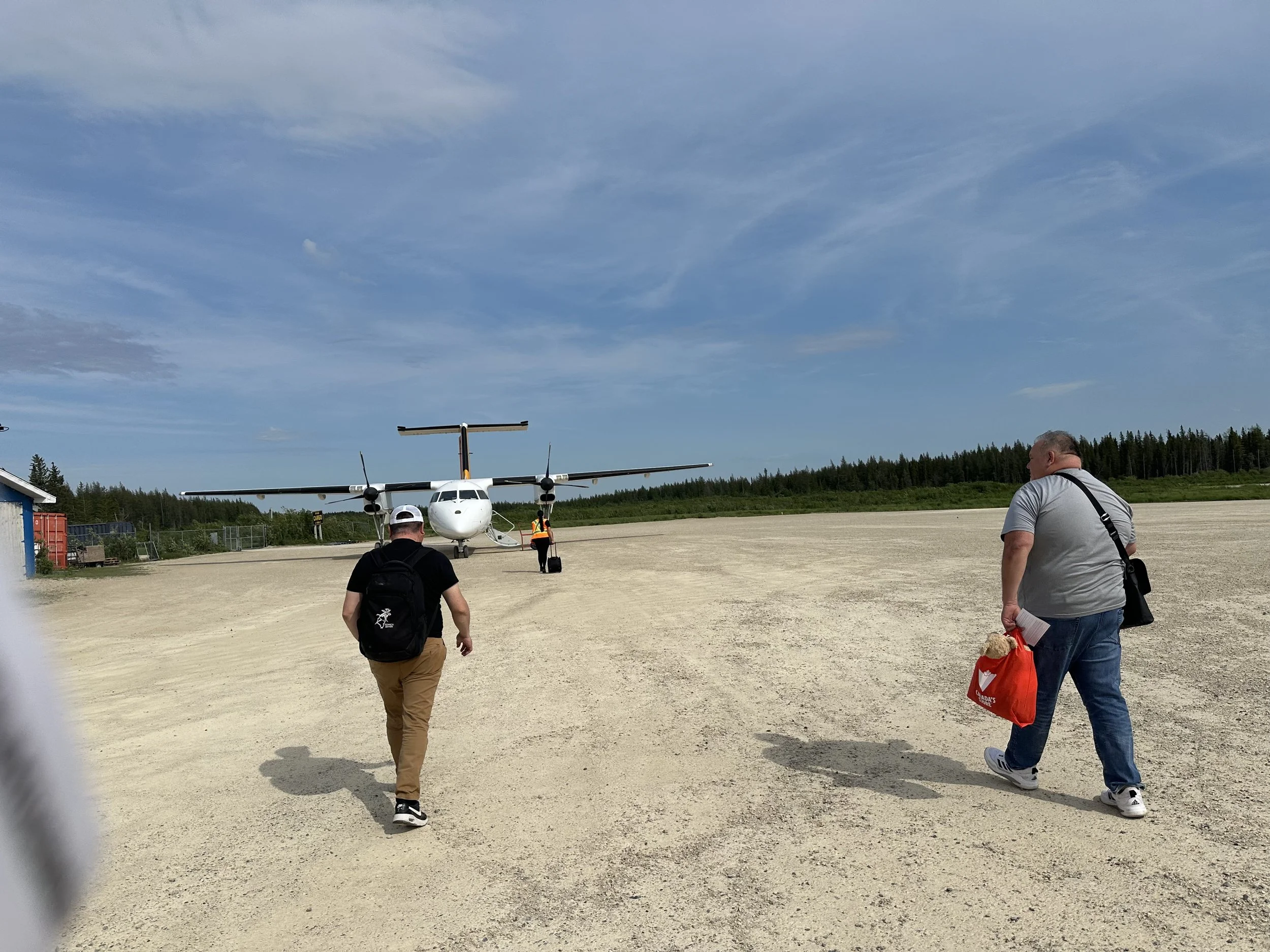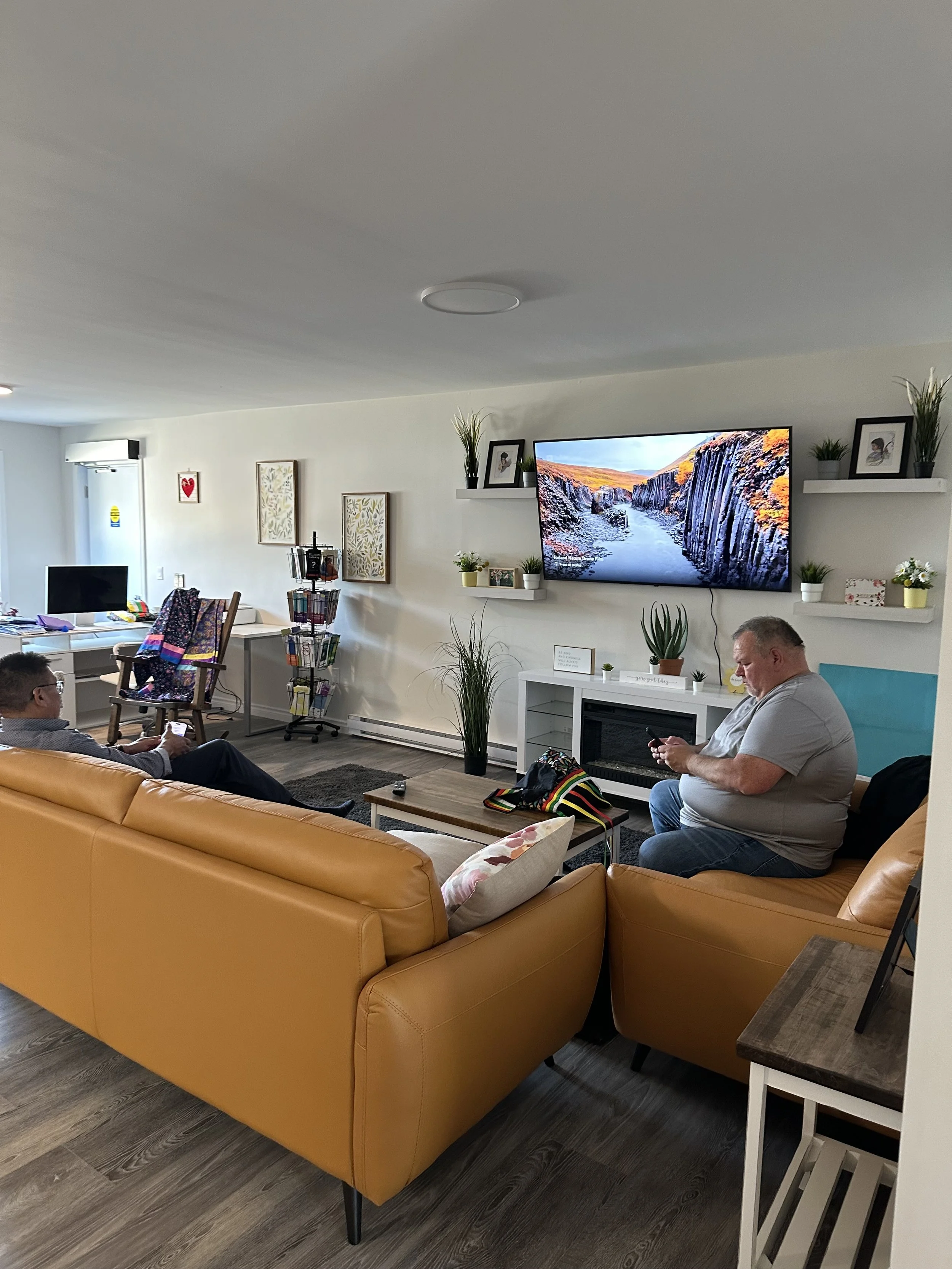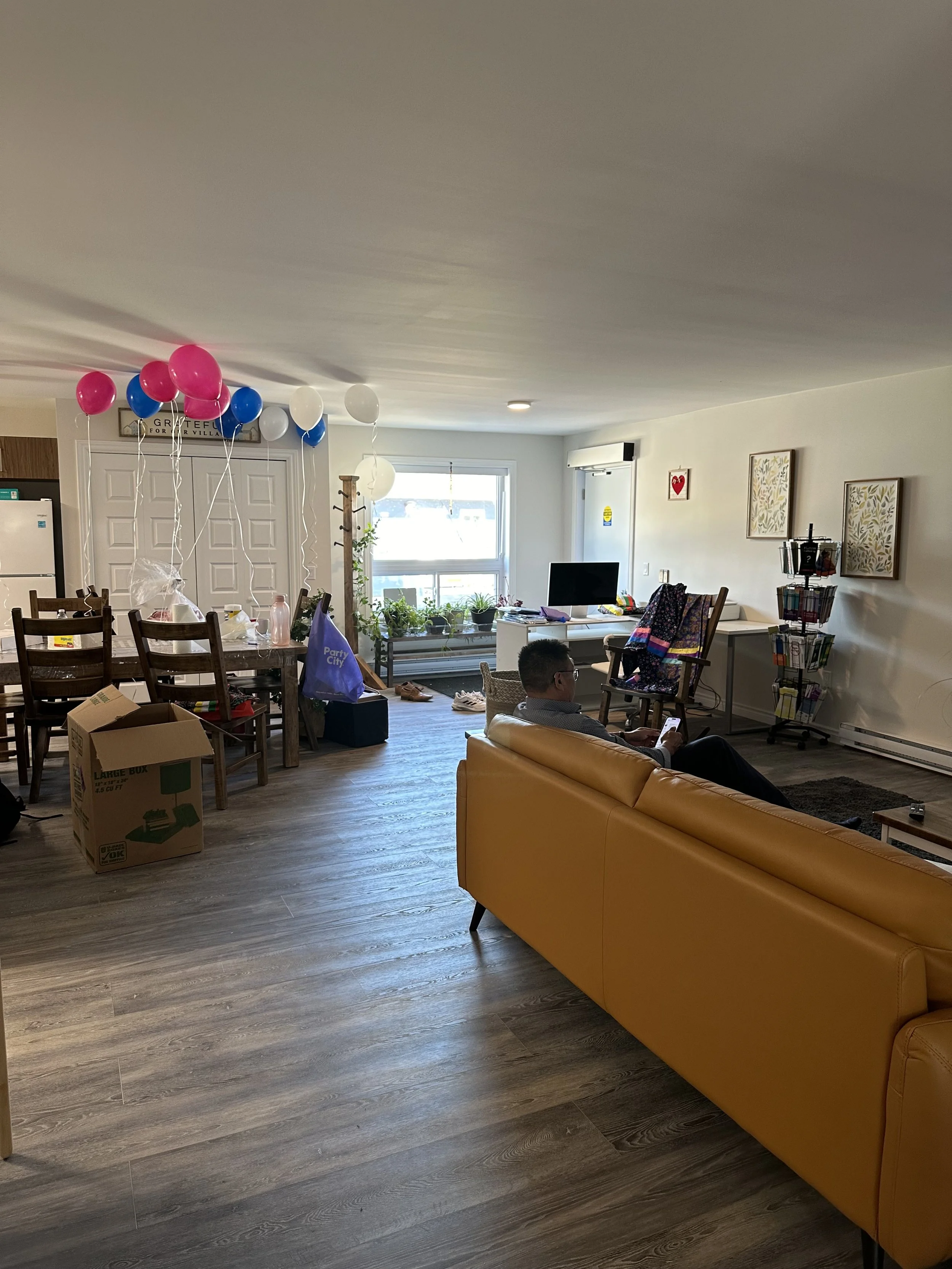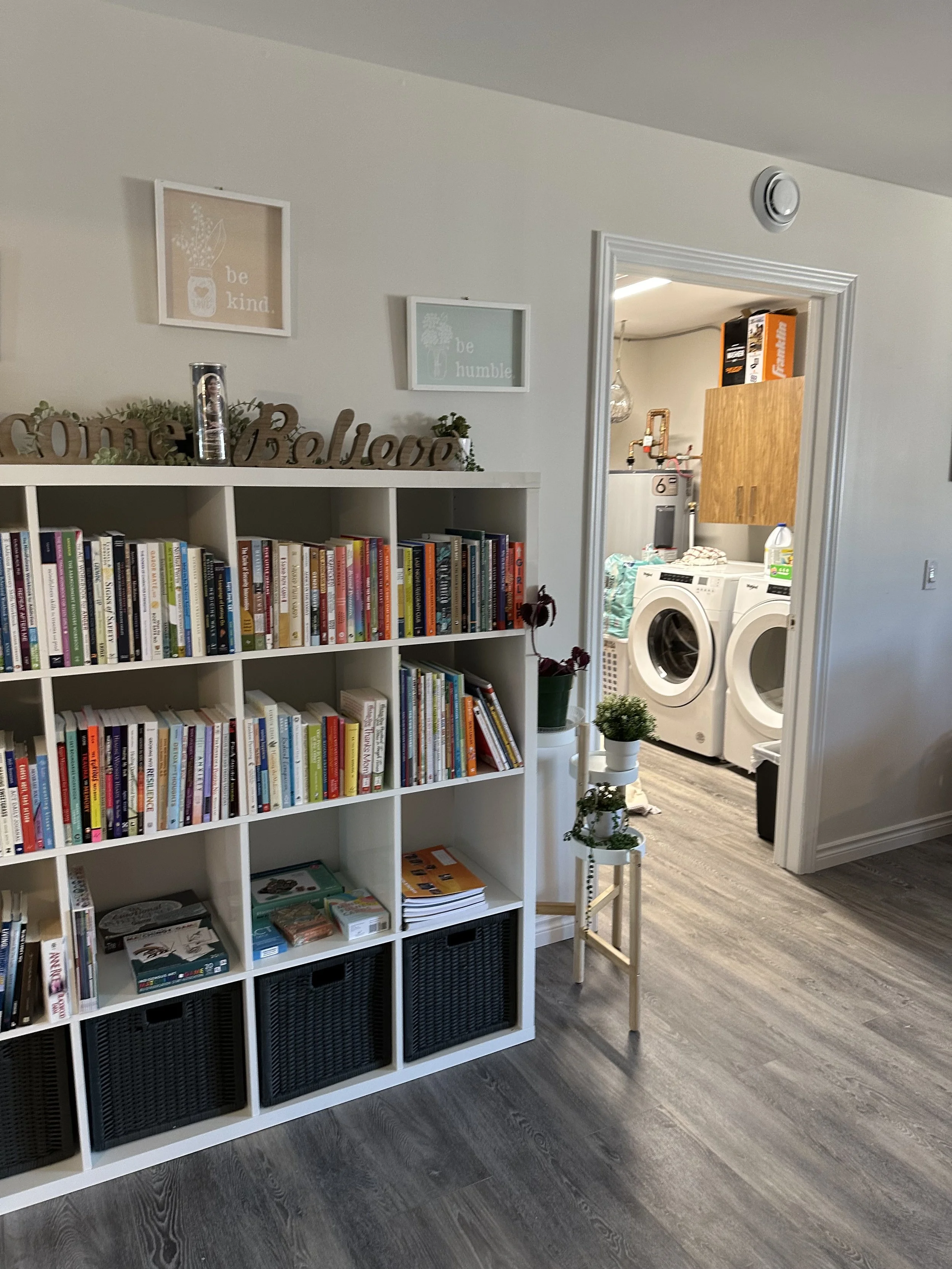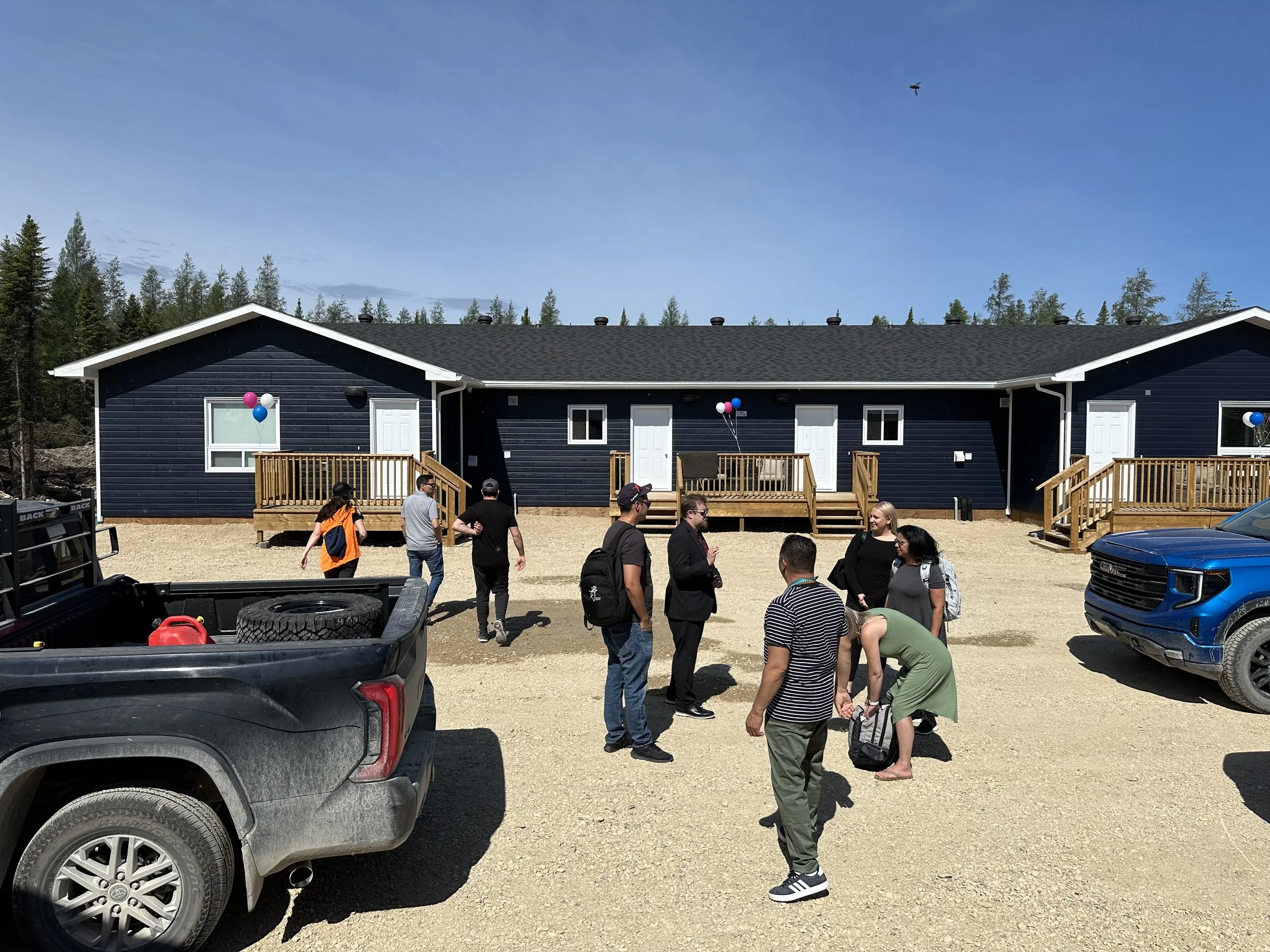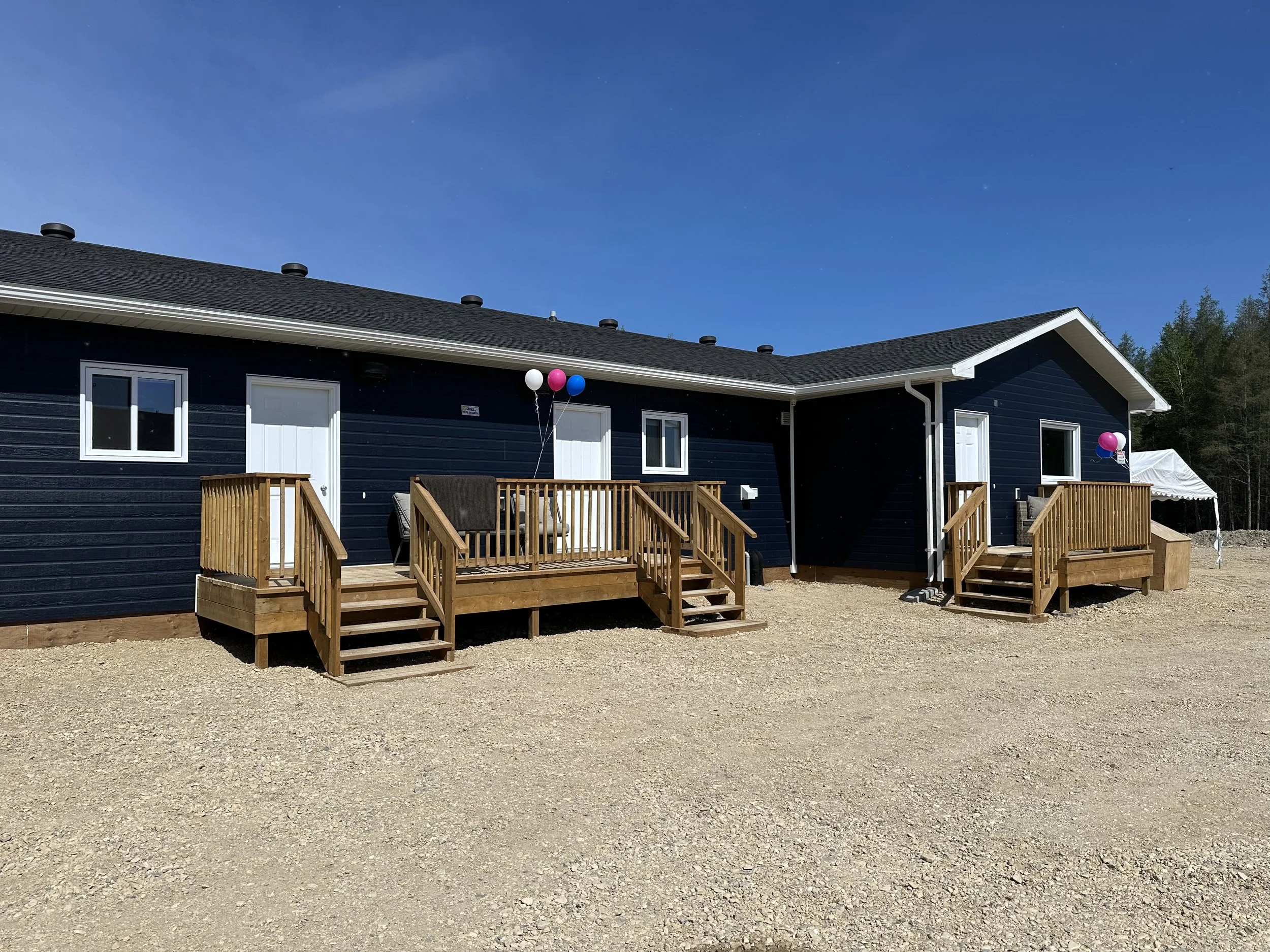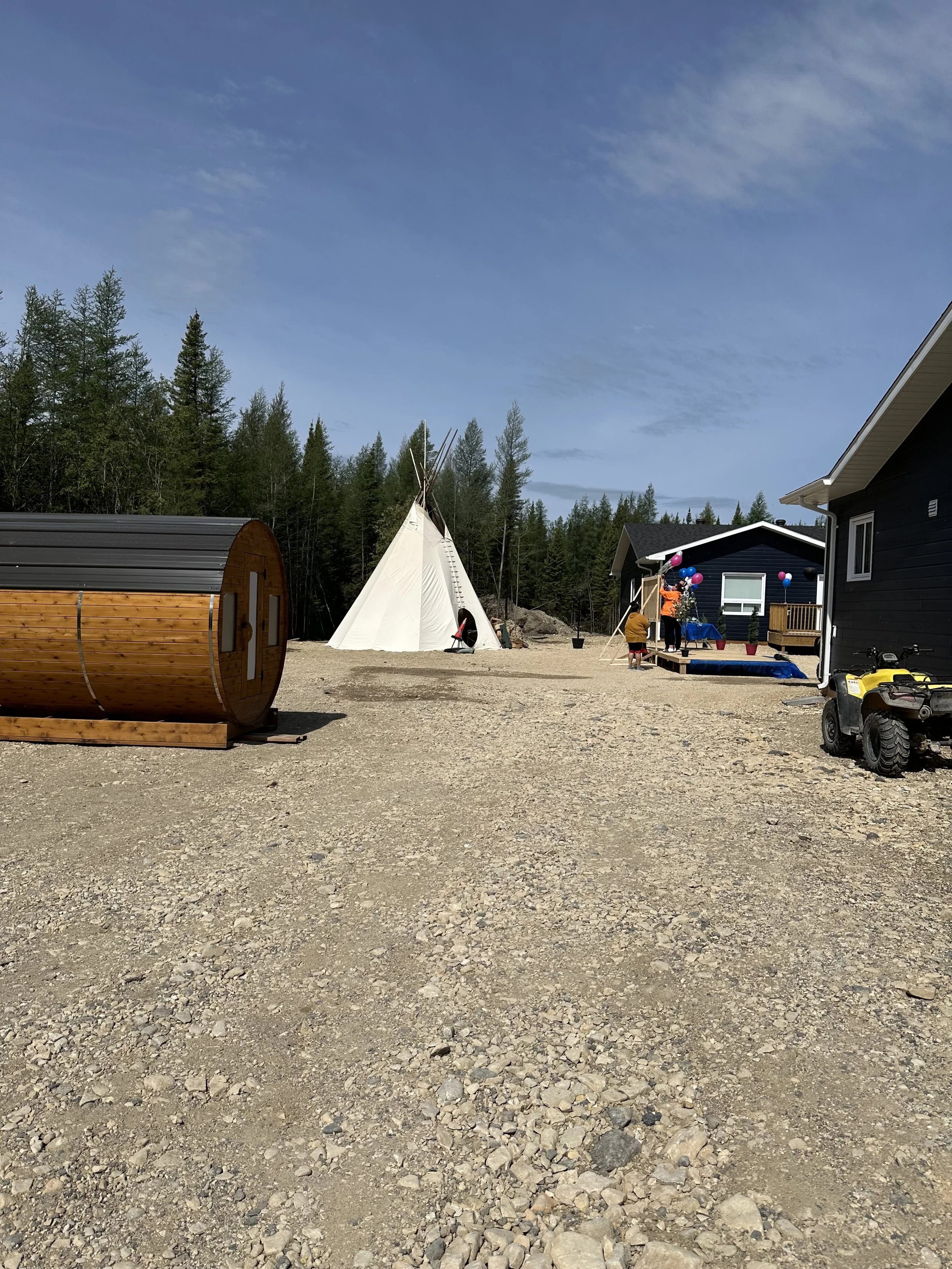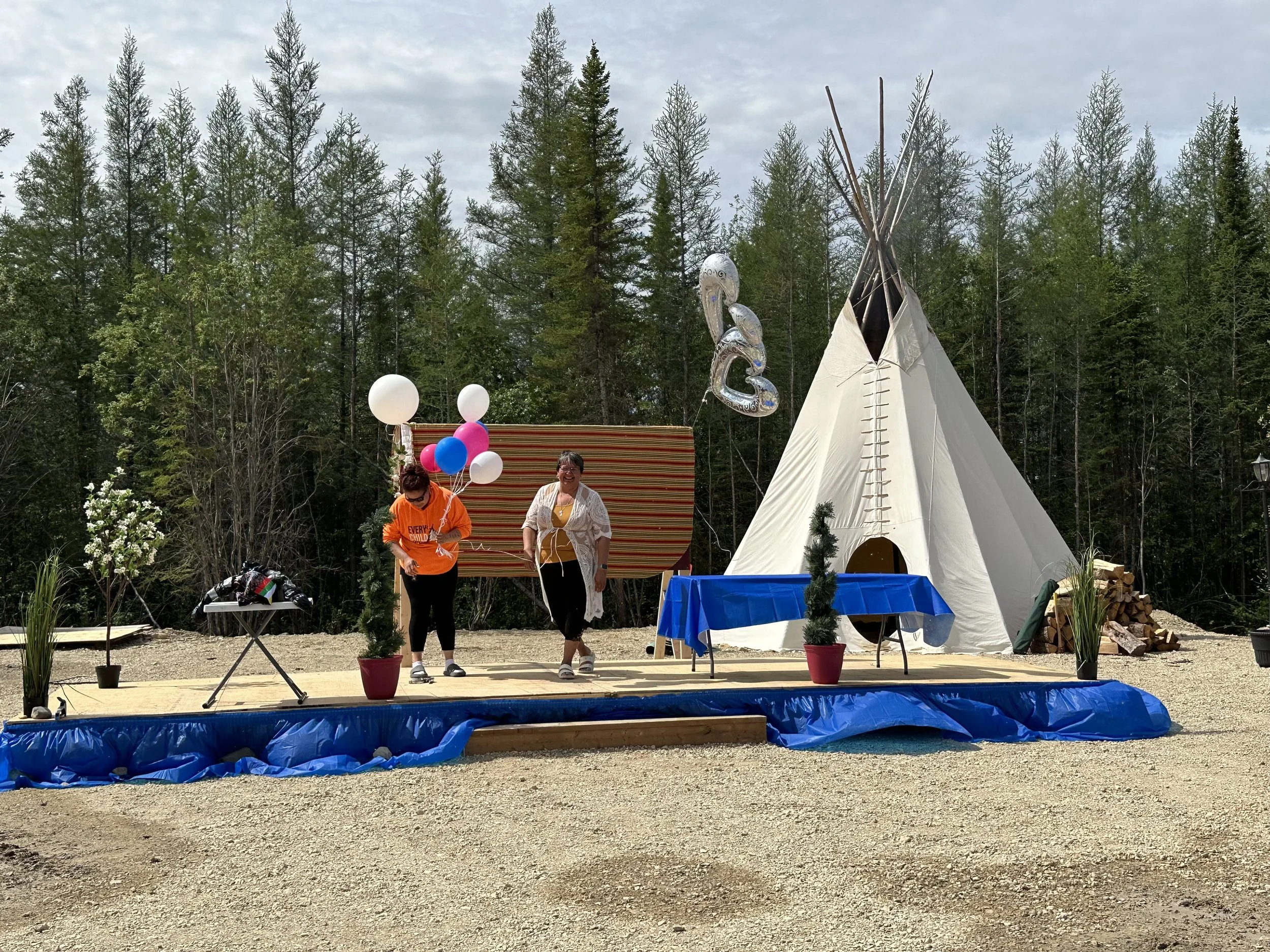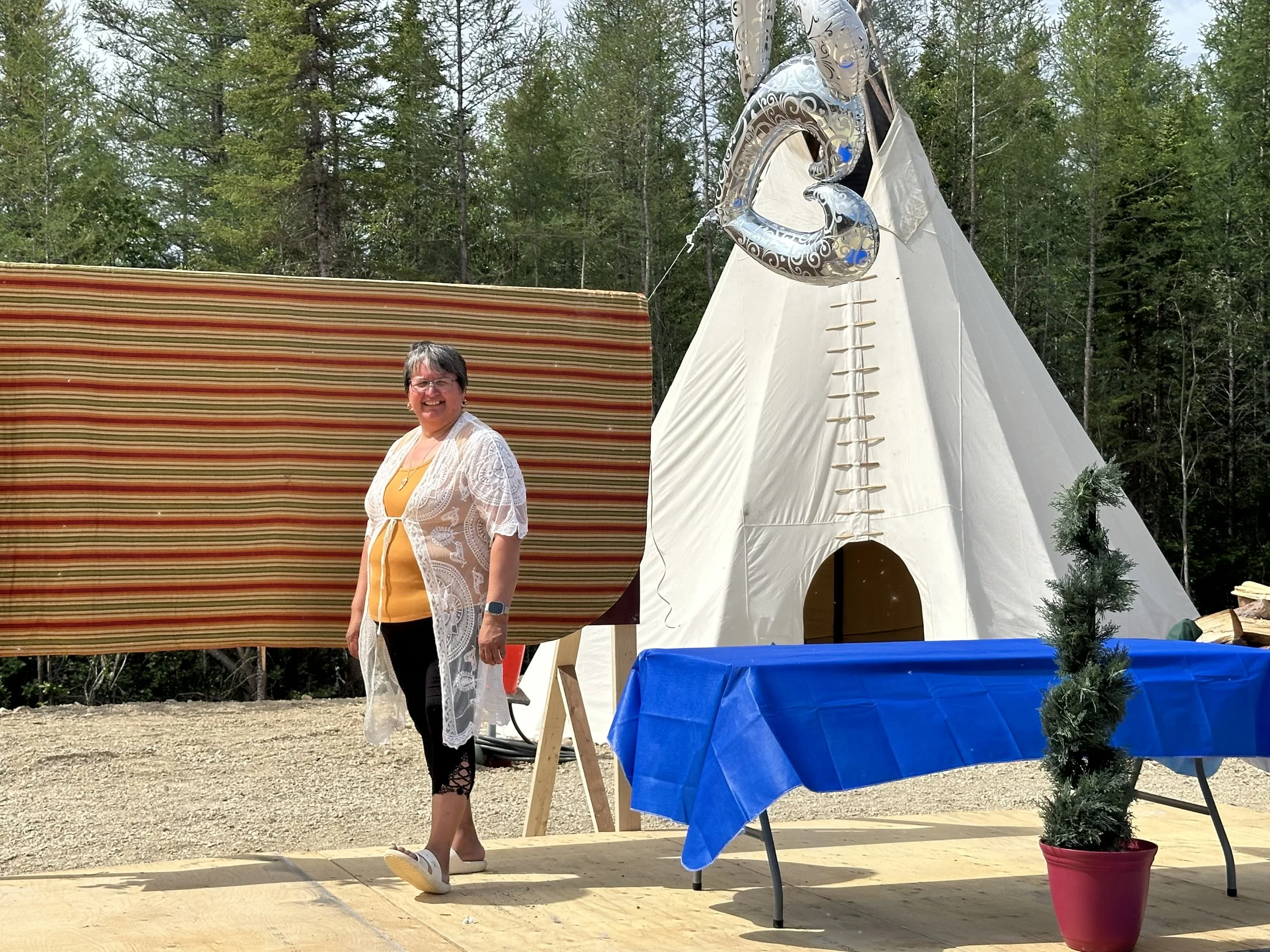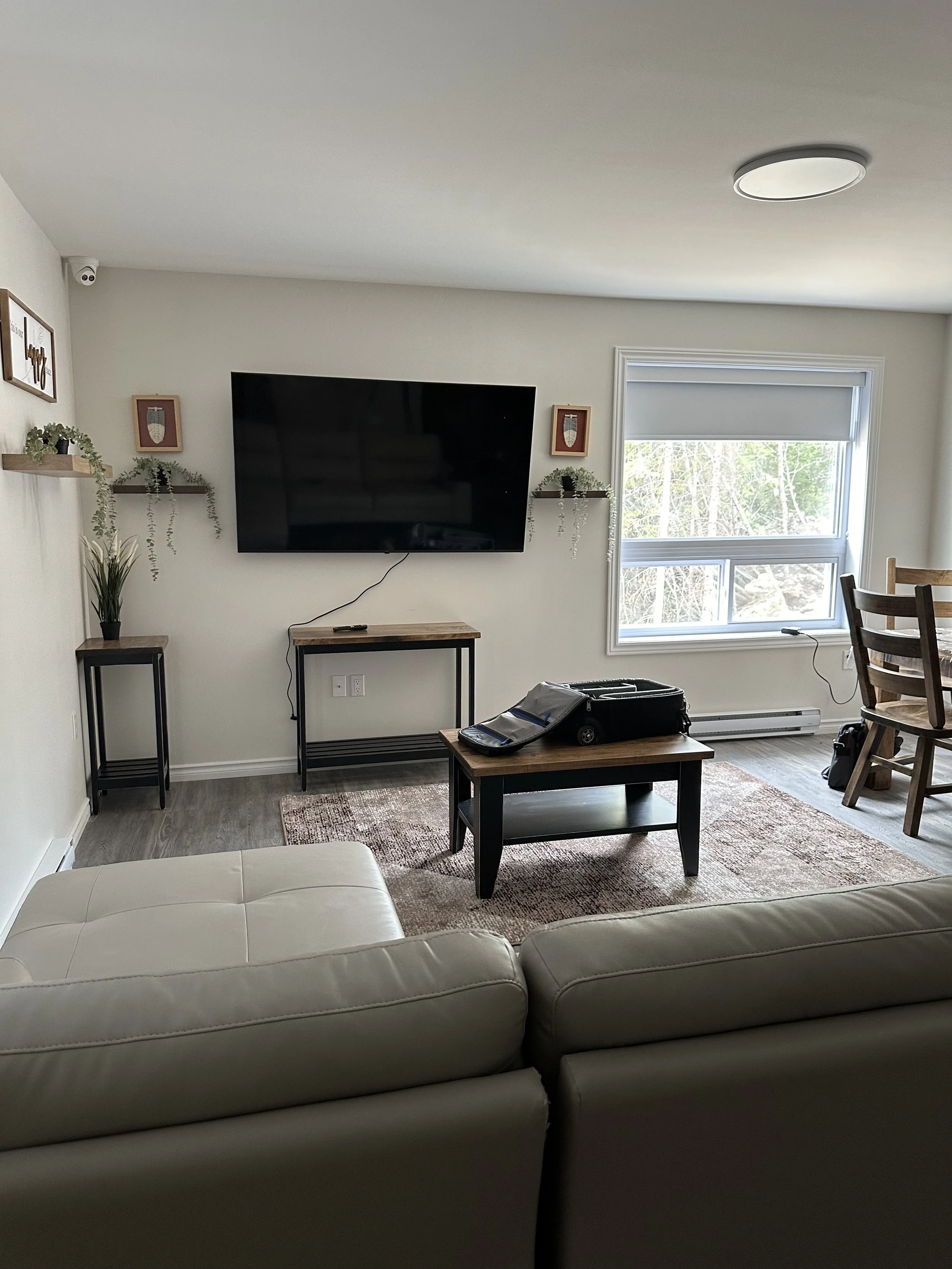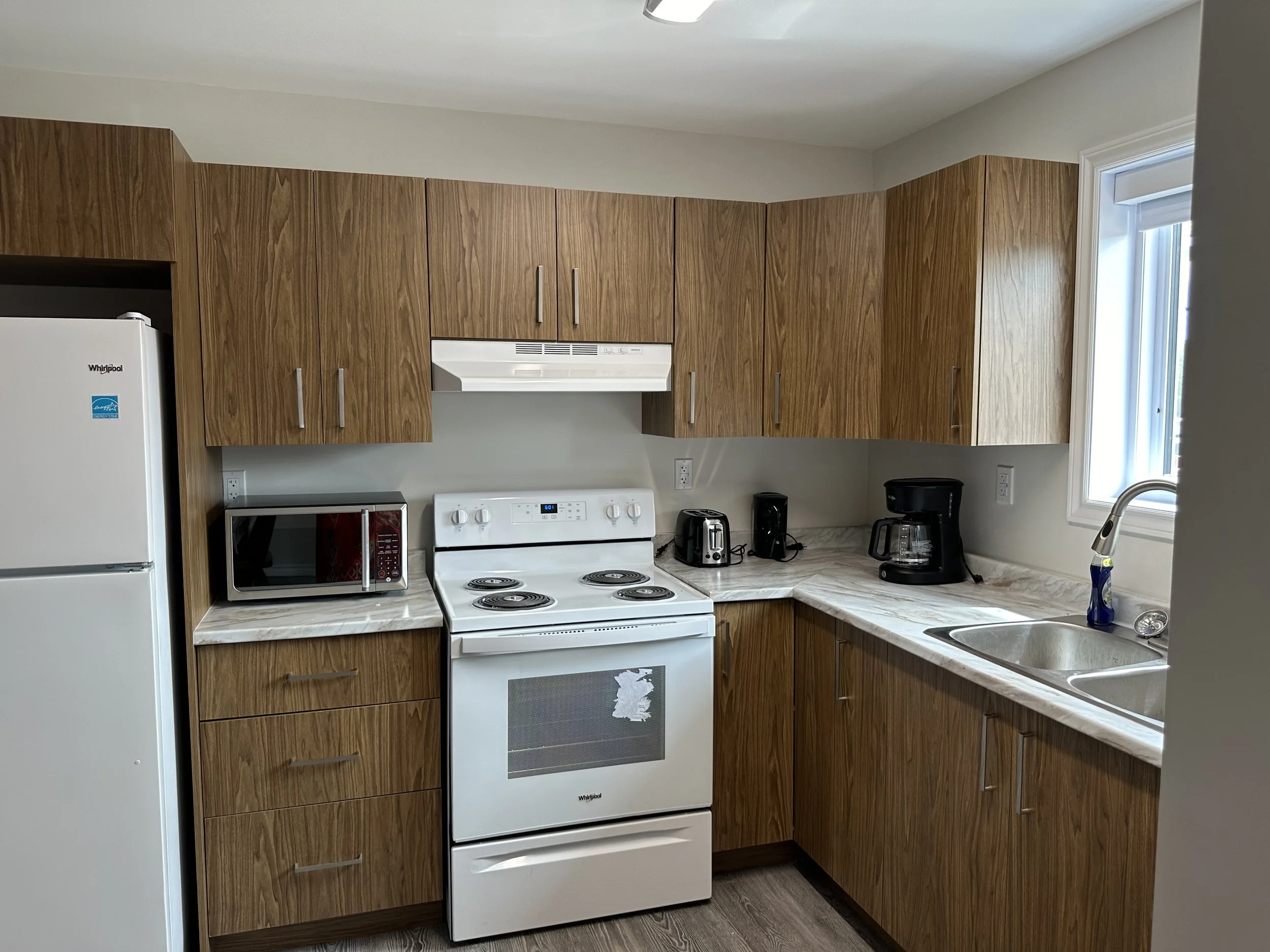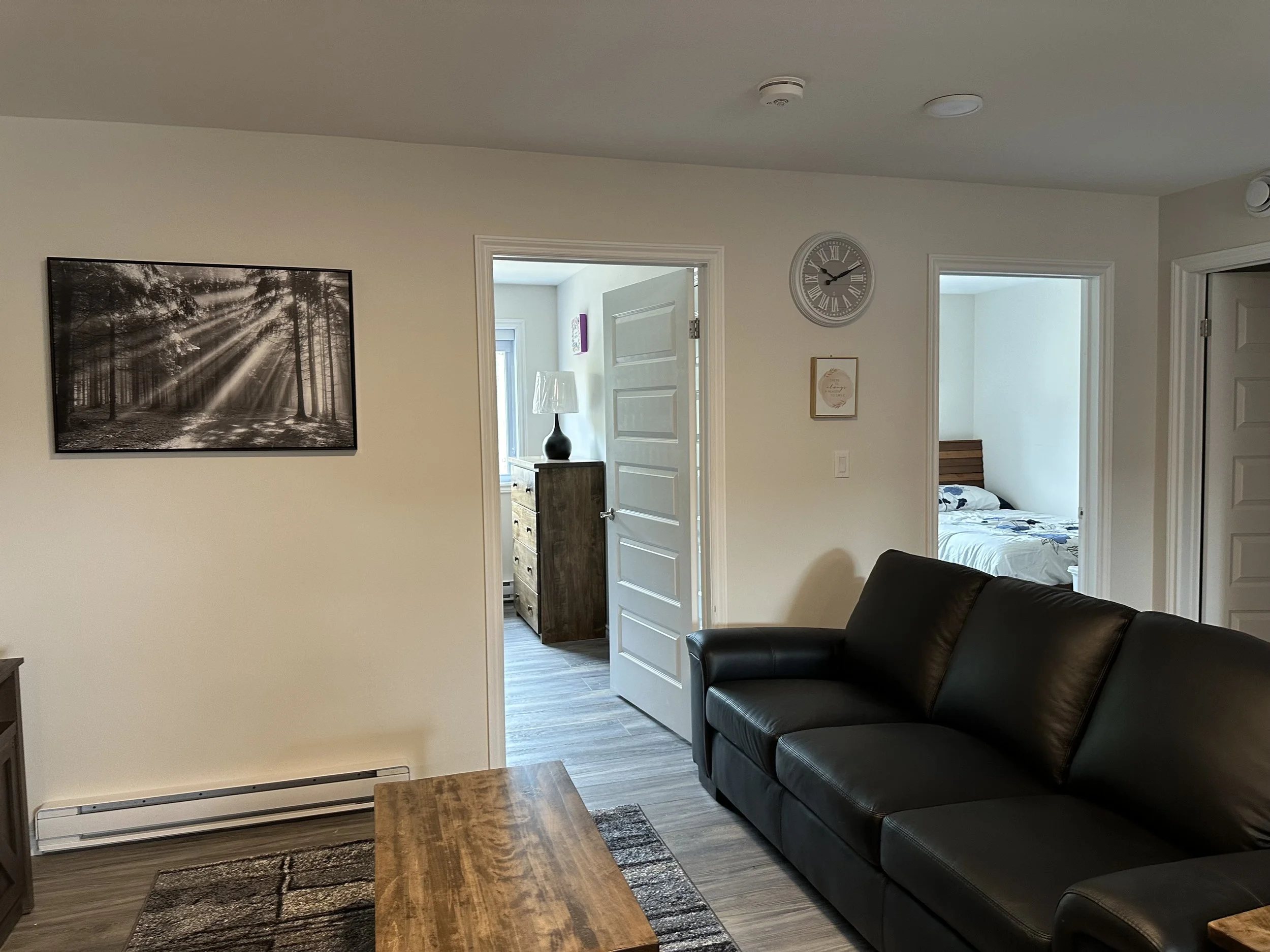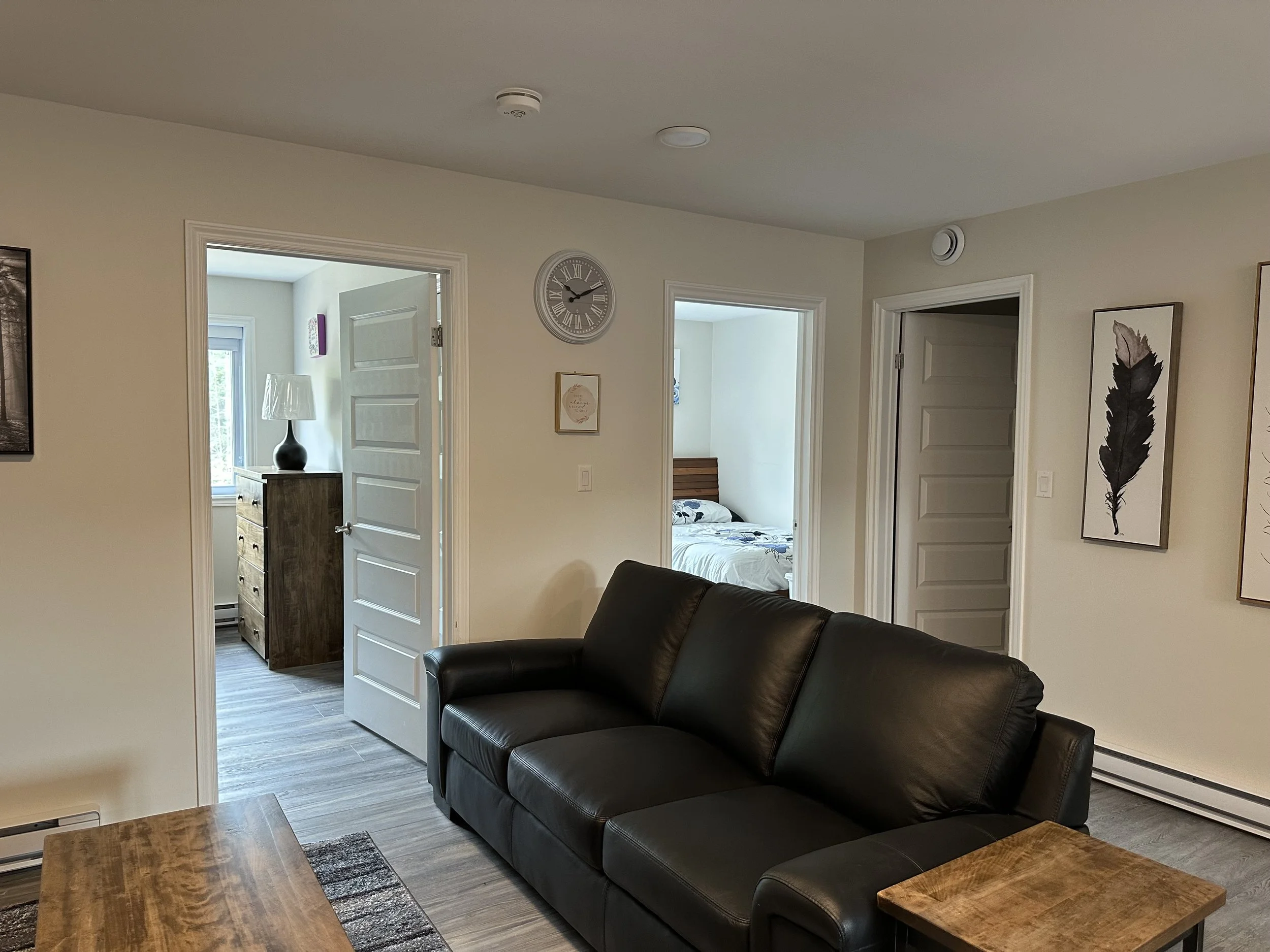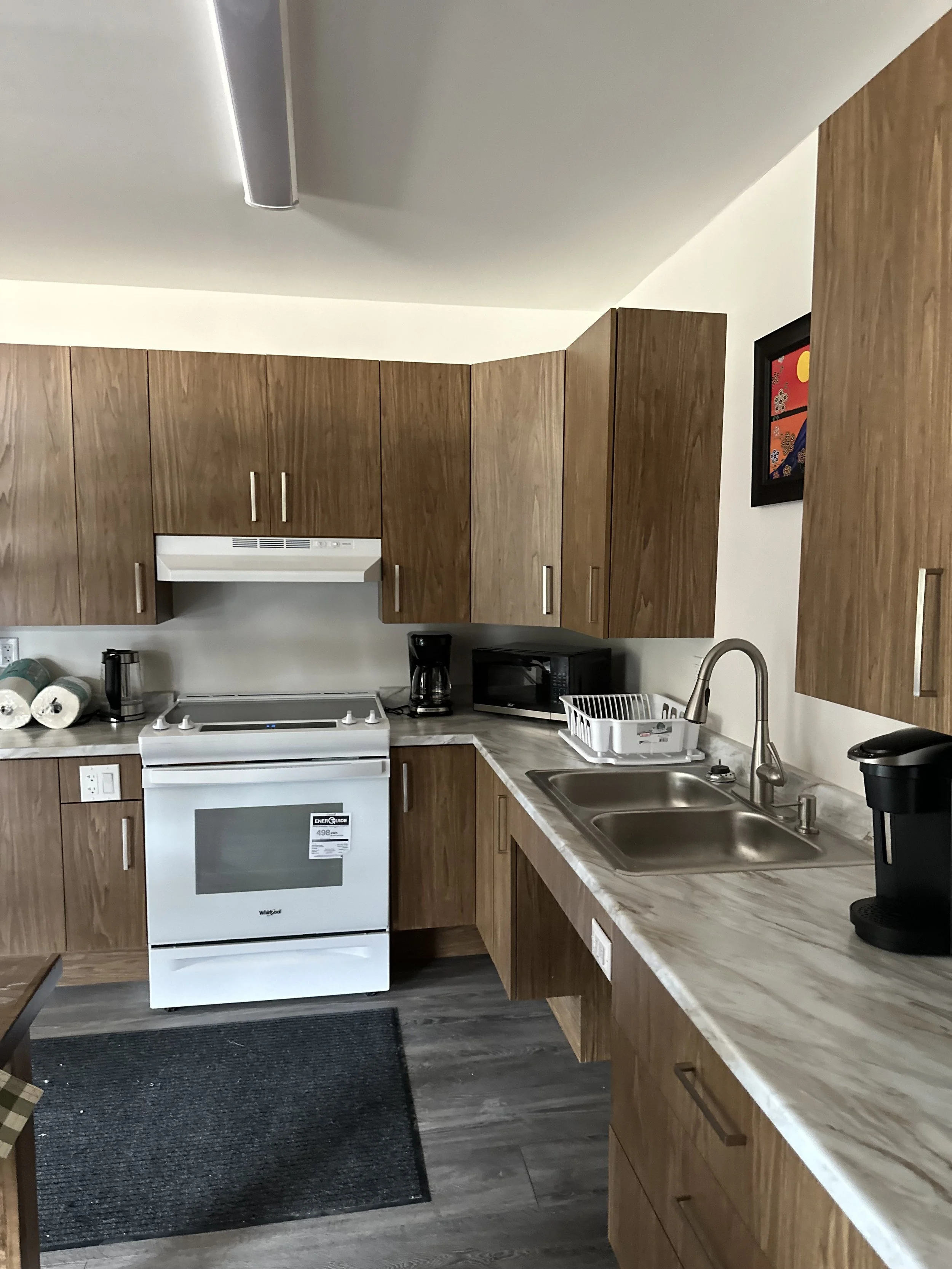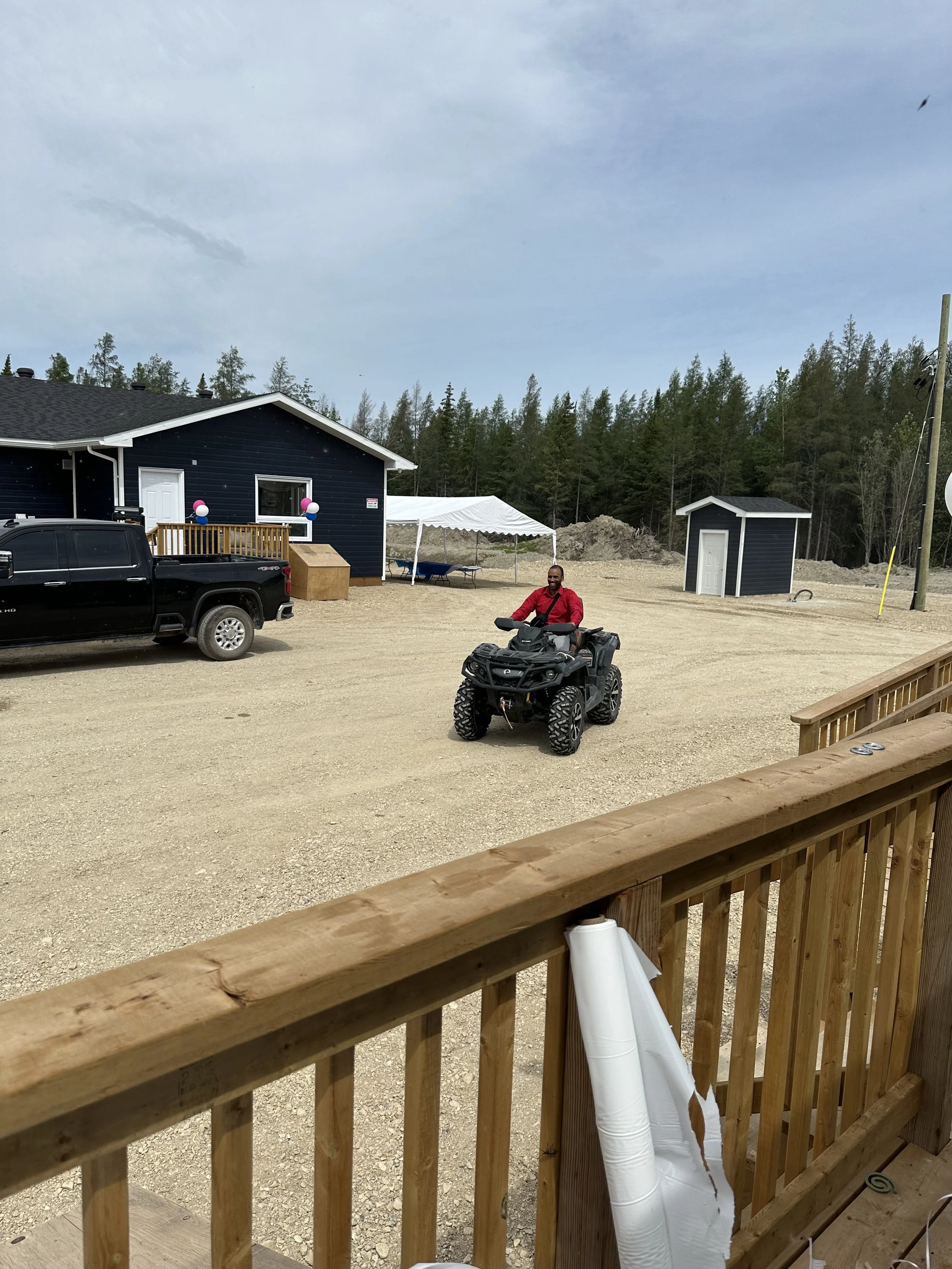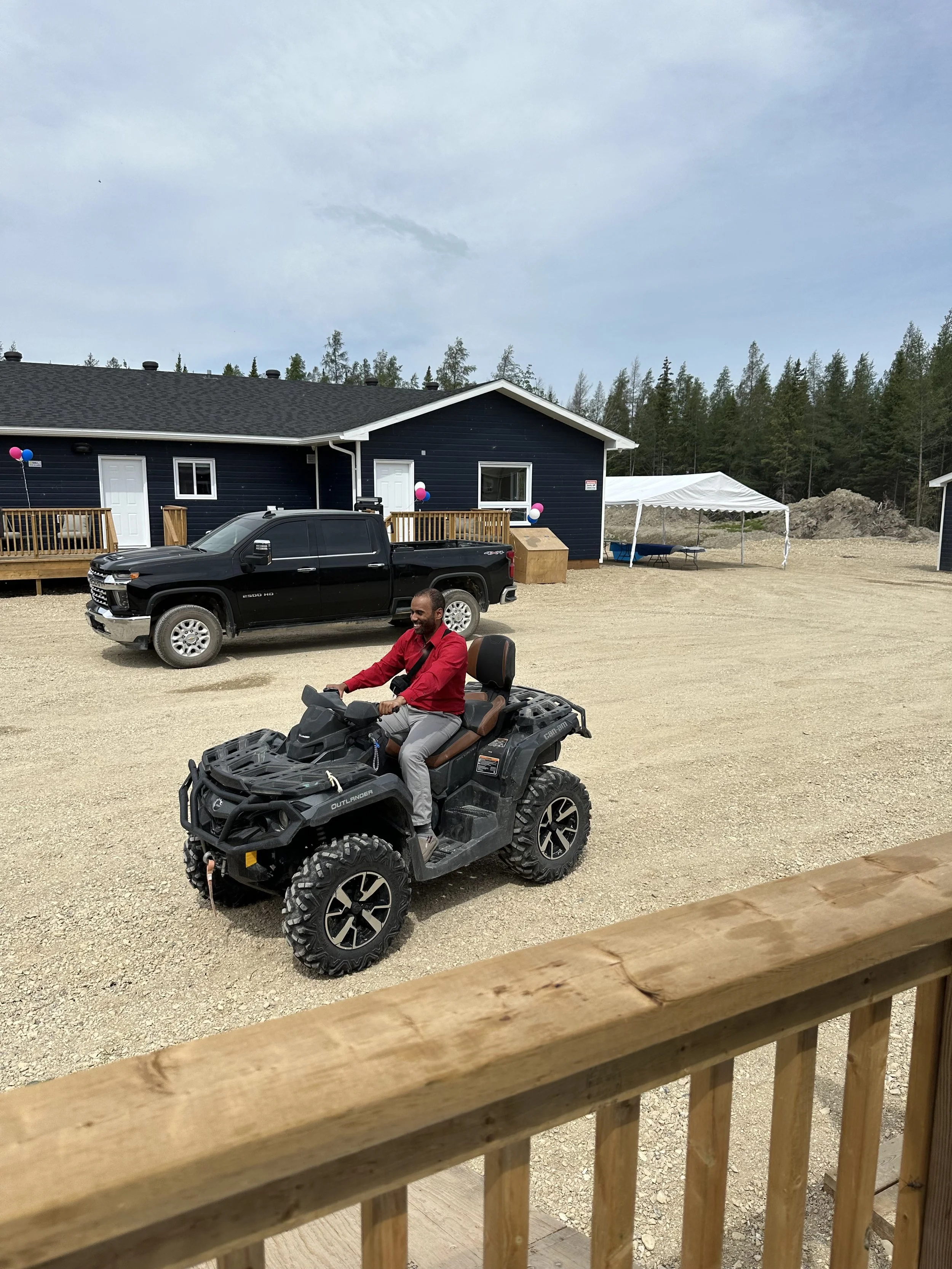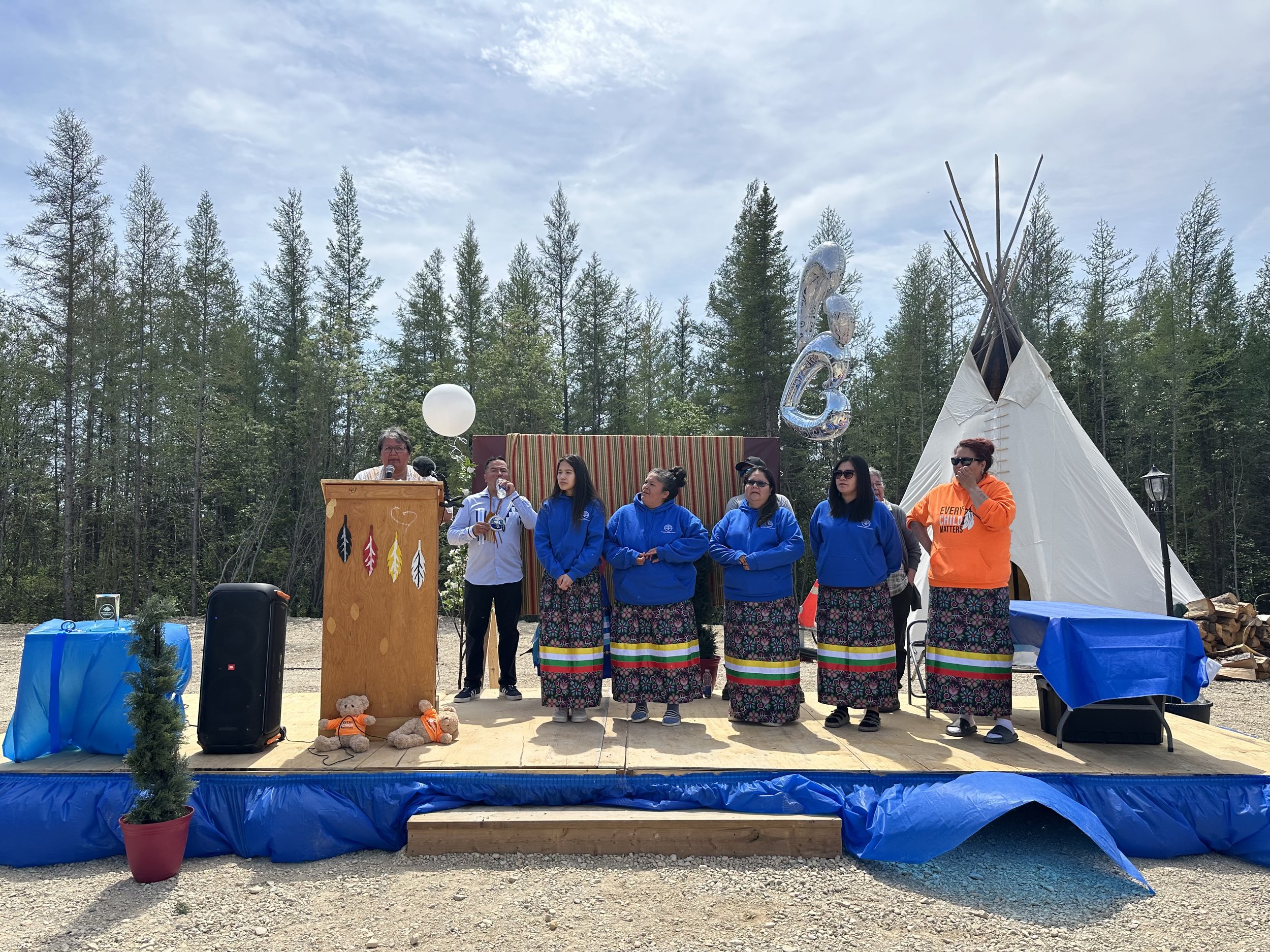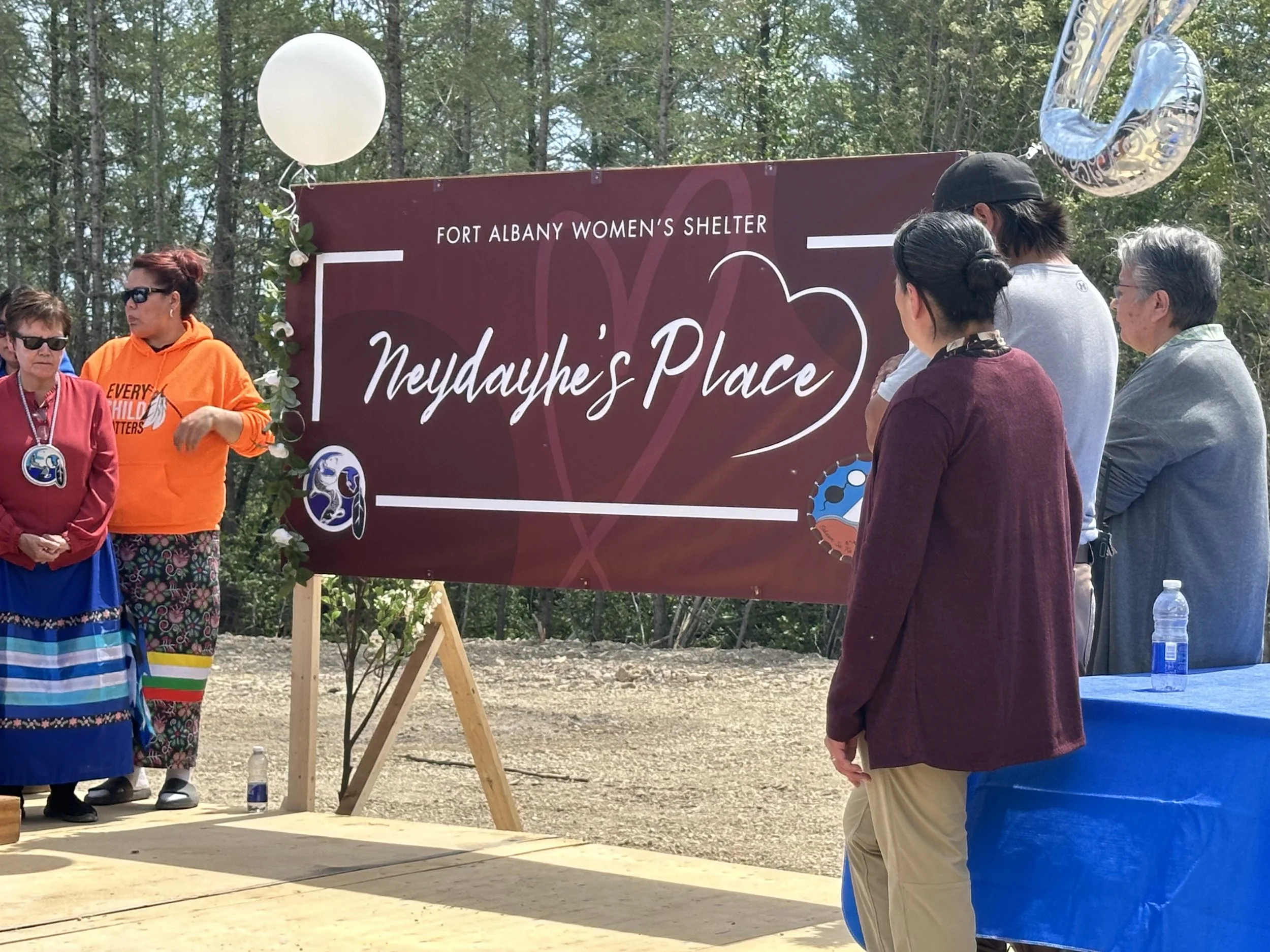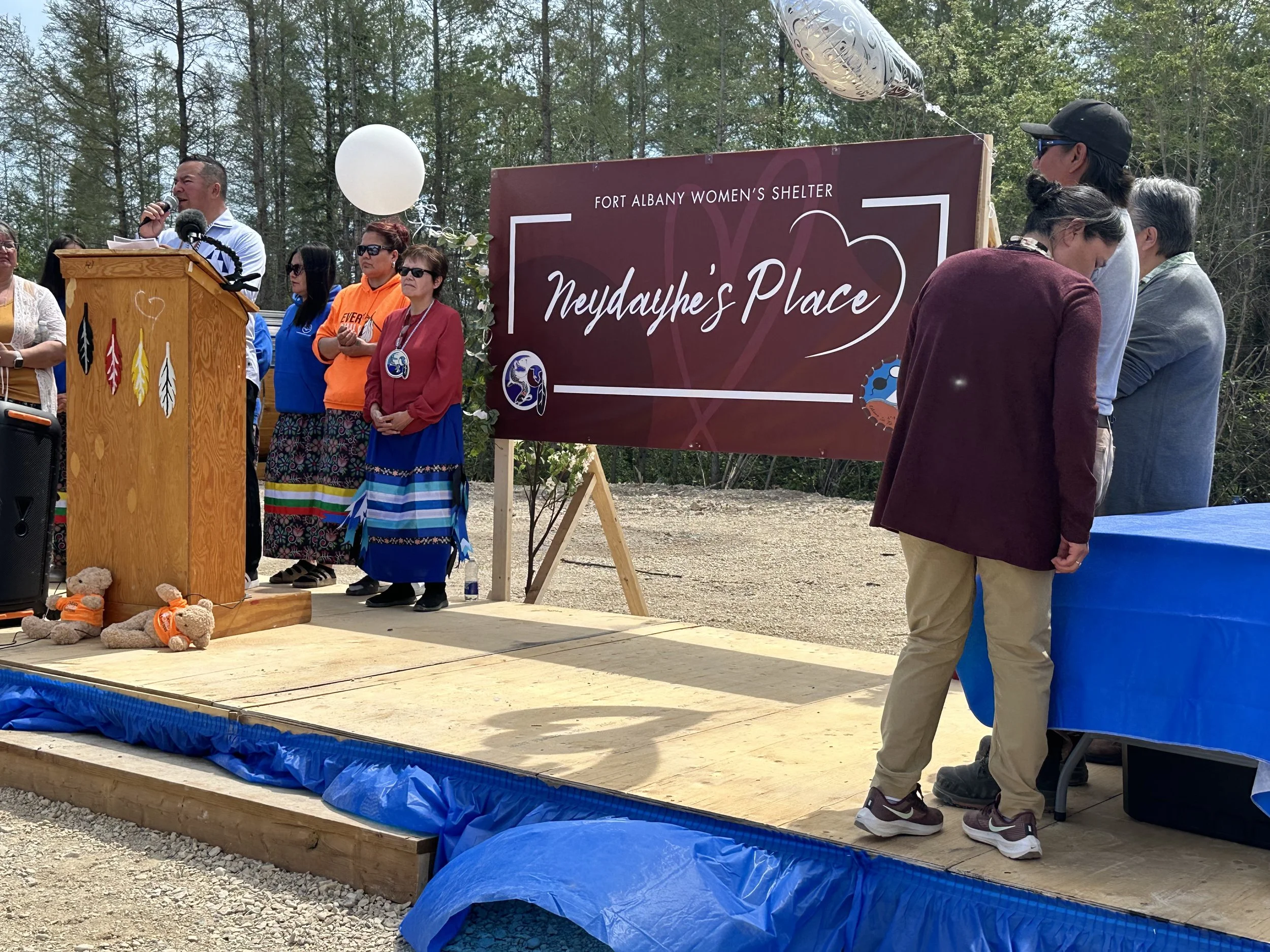Congratulations! Grand Opening Fort Albany Transitional Housing
NICAFV was invited to The Fort Albany Women’s Shelter (FAWS) on June 18, 2024, to celebrate the grand opening of 7 Transitional Housing (TH) units. On arrival, NICAFV, along with many dignitaries and supporters, was warmly welcomed and participated in the celebrations and ceremonies.
We Thank FAWS for including our organization as we support this important initiative. The event was truly memorable, and the work being done in Fort Albany is inspiring.
The 7 units plus an Outreach Building are a mix of two- and three-bedroom units, and two of the units are accessible for those with mobility issues. The project was made possible with funding from the Canada Mortgage and Housing Corporation (CMHC and with yearly operating funding from Indigenous Services Canada (ISC). The project was managed through the Mushkegowuk Council Technical Services and built by Dobson Construction Company out of Cochrane, Ontario. Fort Albany First Nation provides shelter services to the neighbouring community of Kashechewan First Nation; together, these Communities make up Albany First Nation, which has a registered population of 5,265 (January 2021). Women come to Fort Albany Women’s Shelter from other Communities along the James Bay Coast, including Fort Severn, Peawanuck, Moosonee and Attawapiskat. Fort Albany and these other Communities are fly-in, accessible only by the James Bay Winter Road, usually from January to March. Six communities are currently accessing the services of the FAWS. Fort Albany is one of the forty-nine (49) Nishnawbe Aski Nation communities across Treaty 9 and Treaty 5 areas of Northern Ontario.
Once the women and children have completed the shelter program, they would be prioritized to transition into safe, supportive transitional housing for up to a year in the new TH units. At the same time, they receive a continuum of care for healing from domestic violence and trauma of residential school systems and colonization.
The transitional housing program will provide a supportive, safe space so they do not return to a dangerous situation with their children. The transition housing program will provide support to continue healing/counselling for women and children on their journey toward family wellness. By having the transitional housing program, provides time so the women may seek appropriate accommodation when they progress through their continuum of services/care. Transitional Housing is viewed as a progressive stage towards independent living for women fleeing violence and abuse. The goal of the program is to prepare, educate, encourage, allow time for healing through trauma and support a woman’s journey to the eventual safe independent life that is free from abuse.

